|
| Statement by Minister of Foreign Affairs of the Republic of Serbia Nikola Selaković at the meeting of the UN Security Council on the report on the work of UNMIK |
|
Mr. President,
Madam Special Representative,
Ladies and gentleman,
It gives me honor to address this distinguished body once again and to discuss the latest report of the Secretary-General on the work of the UNMIK.
I would like to thank the Secretary-General and the Special Representative for submitting the report. We take note of the efforts that Ms. Ziadeh makes in performing this very responsible duty, especially bearing in mind the necessity of a comprehensive overview and the complexity of the situation on the ground.
I also take this opportunity to underline that the Republic of Serbia highly values the activities of UNMIK in Kosovo and Metohija, established under UN Security Council Resolution 1244. We advocate for its continued operation in an unchanged and undiminished scope and capacity, especially bearing in mind that the Mission has not yet achieved the main goal of its mandate - a peaceful and normal life for all citizens of our southern province.
Ladies and gentlemen,
Unfortunately, the last few months have not brought more stability in Kosovo and Metohija and the situation in the Province is not exactly as presented in the report. Unilateral moves of Pristina continue to consciously and systematically deepen ethnic differences, causing discrimination against the non-Albanian population. To our knowledge, 105 ethnically motivated attacks have been recorded since the beginning of this year. In addition, Pristina is actively working on administrative and bureaucratic obstacles, by taking measures that were not agreed upon in the dialogue as the basic mechanism for negotiations and reaching solutions between Belgrade and Pristina. Pristina’s approach is problematic in many ways. This irresponsible conduct of Pristina is consciously sabotaging the efforts not only of Belgrade, but also of the EU and other involved parties of the international community, with the clear intention of achieving two goals - the first being to avoid the implementation of assumed commitments. The second, the ultimate and far more alarming goal is the intimidation, marginalization and persecution of Serbs.
In all previous statements before this this distinguished body, Pristina focused on what happened in the past while failing to mention, which is painful to witness, how non-Albanians in Kosovo and Metohija live today. Serbs are still intimidated in different ways, forced to leave their homes, villages and cities. Those displaced are discouraged from returning to where they were born and lived their lives.
The provisional institutions work systematically to remove and erase as much as possible of the cultural and national diversity that is left. At the same time, Pristina is consciously fueling inter-ethnic tensions using all available methods.
Attending religious celebrations seems to be a crime in Kosovo and Methohija. It is the case of Nikola Nedeljković who was arrested for allegedly "inciting ethnic hatred and intolerance", but actually his imprisonment was for attending the St. Vitus Day (Vidovdan) celebration.
Nikola was sentenced to eight months in prison without any material evidence. On the other hand, let me remind you that even to this day there is not a single perpetrator held legally accountable for the more than 1,000 Serbs killed since 1999. Due to planned intimidation, almost all towns and villages in Kosovo and Metohija are ethnically cleansed. Representatives of Pristina are ignoring the suffering, insulting the open wounds of the Serbs who had to leave their ancestral homes, and I underline, there are more than 200,000 of them. Such conduct has not change for last 23 years and is in complete opposite to the democratic values and principles that the provisional institutions of self-government often promote in their statements.
Therefore, I consider it necessary to emphasize that the true political will of the involved international actors and Pristina is necessary in order to create the conditions for the beginning of the end of discrimination on a national basis and common life in the Province.
Esteemed members of the Security Council, I would like to draw your attention to the rigid, problematic and extremely irresponsible conduct of the other negotiating party within the dialogue. In achieving the above-mentioned goals, Pristina applies the so-called policy of reciprocity, a well-thought-out, malicious strategy that, unfortunately, was not constructed independently. By continuously insisting on mutual recognition as a central part of the dialogue, the so-called policy of reciprocity demonstrates the essential unwillingness of the current political leadership of Pristina to find any compromise solution. Let me remind you that the talks between Belgrade and Pristina did not start with last elections in Pristina, but have been in progress for 11 years since the technical dialogue started (8 March 2011). Therefore, we assess as inadmissible attempts to disregard the current format of the dialogue, and annul the agreements only because they are not to the liking of the current political factors. It is unacceptable that the current geopolitical circumstances are being used to simply erase what has been painstakingly worked on for years. Belgrade, I underline, was institutionally involved in the dialogue from the very beginning, while the commitment of the other side has varied and continues to vary depending on the political option that is in power.
The harsher political rhetoric and narrative of the current leadership of the provisional institutions of self-government in Pristina are accompanied by concrete destabilizing steps. In the reporting period, measures on license plates were imposed, disguised as attempts at alleged integration into society.
Let me remind you again, there was no agreement on such measures in the dialogue between Belgrade and Pristina. I believe, ladies and gentlemen, that even today we will hear from the representative of Pristina that their side has fulfilled all obligations, but the decision on re-registration of license plates shows that Pristina is not only failing to fulfill what has been agreed upon, but it nullifies the results of the dialogue, creating a new crisis all over again. The effect of such forcibly imposed measures is best illustrated by the fact that since the decision was made a single-digit number of re-registered vehicles with Serbian license plates has been recorded, of which only two are Serbs from the north of Kosovo and Metohija. This is another indicator that Pristina does not enjoy full support, but that, on the other hand, it continuously provokes the natural reaction of the Serbian population, which cannot endlessly be subject to the arbitrariness of temporary institutions.
I believe that even today we will hear already known narrative of representatives from Pristina who try to present every reaction of the Serbs in Kosovo and Metohija as an activity organized by Belgrade in alleged attempts at destabilization. Such claims are simply not true. Serbia, for its part, cannot in any way contain the revolt present among the non-Albanian population of Kosovo and Metohija. It is an undeniable fact that citizens' protests represent a voice against many years of institutional violence and the deprivation of rights of the non-Albanian population, which, in this case, is denied the right to peaceful enjoyment of private property acquired in a legal manner.
Pristina does not cease in its attempts to confiscate property, and, as is well-known, one of the targets is the Serbian Orthodox Church. By calling into question the return of property to the Dečani Monaster Pristina paradoxically does not execute the decisions of its own so-called Constitutional Court.
Ladies and gentlemen,
I thought for a long time how to best illustrate the true picture of everyday life of the non-Albanian population in Kosovo and Metohija. I will mention only some of the facts. Numerous ethnically motivated incidents, hate speech, intimidation, violations of the right to a fair trial, threats to the right to freedom of movement and religious rights, desecration of churches and graves were recorded in the last reporting period as well. The frequent attacks on the sites of the Serbian Orthodox Church are also unacceptable, and especially the humiliating attitude towards the Serbian cultural and spiritual heritage, including the 4 monuments that have been inscribed on the UNESCO World Heritage List. Numerous administrative and technical barriers are imposed on priests and monastic communities, making it difficult and even impossible for them to survive on church properties.
When it comes to civil rights, try to imagine that the basic political and civil right to vote has been taken away from you.
This is precisely what the Serbs in the Province have experienced along with frequent intimidation and violent incursions of the ROSU special forces, which are an instrument for the implementation of Pristina's goals under the pretext of allegedly fighting crime.
In December last year Bratislav Nikolić the president of municipality of Štrpce has been detained, as suspected of the organized crime and corruption - still not charged, kept in detention unit in Podujevo, only for the reason to make additional and final pressure on the Serbian community living in the enclave of Štrpce. How can this be justified as the fight against crime when special forces are used to raid village festivals, schools and kidnap drivers of ambulance transporting infusion containers and medicines? What are the motives behind and how can one rationalize these actions? Just try to imagine and put yourself in the shoes of Ms. Dragica Gašić, the only Serbian returnee in Djakovica. Imagine that you are still not allowed to buy bread because of your origin and nationality, because you live in a municipality that the local Albanians proudly consider forbidden to non-Albanians. Imagine that as many as eleven Albanian civil society organizations demand your expulsion, as well as a ban on any non-Albanian ever returning to that town. Then you will realize the level of intimidation that Serb returnees are facing. It will be clear to you why the percentage of returnees is below 2% and why it is still one of the lowest in the world. Let me pose a question - are these the characteristics of a society that presents itself to the world as a fully fledged democracy and a factor of stability in the region?
We are aware that the dialogue has a wider dimension and that it can affect the situation in the entire region.
This is reflected in every statement given by Serbian officials, including the President of the Republic of Serbia, Aleksandar Vučić. "It is better to negotiate for a hundred years than to fight for a day" are the words of our President that best describe the policy of peace, reconciliation, and regional cooperation pursued by the Serbian leadership, which is guided by the vision of building a common and prosperous future of the Balkans.
I believe that it is a duty of today's leaders to create a clear common vision for the future generations. Such a vision was shown by the leaders of Belgrade, Skoplje and Tirana by creating Open Balkan, an initiative from the region for the region, which is already producing concrete results. Serbia has on several occasions reached out to Pristina inviting it to join this initiative. We counted on an awareness of the importance of economic connectivity and progress for the benefit of the citizens of the entire Balkans. However, our invitation was not met with understating from the other side.
Ladies and gentlemen,
We categorically reject Pristina's argumentation regarding the alleged unconstitutionality of the formation of the Community of Serb Municipalities. It is clear that Pristina's attitude towards this obligation reflects its attitude towards the Serbian people in the Province. It also indicates that Pristina is against Serbian people being organized as an ethnic community and thus exercising their collective rights.
The aim of their approach, as a preferred model, is a community without Serbs, such as those in Pristina, Djakovica or Pec, or some similar localities in the Province. For our side, it is unacceptable that Pristina has refused to fulfil its obligations and discuss the formation of the Community of Serb Municipalities for as much as 3,470 days but I assure you that, regardless of this fact, Serbia will not give up on its efforts to find a compromise solution for the current situation.
I will remind you that the representatives of Pristina, although they often repeat in their statements that the case of the so-called Kosovo is a fait accompli, continue not to be recognized by the majority of UN member states for 14 years now. If the so-called Kosovo's independence is a reality, how come that we have the dialogue? And how come that Belgrade is faced with increasing pressures as regards the need for mutual recognition? What the current political leadership of Pristina refuses to accept is that Belgrade cannot be left out in the search for a final solution. The same also applies to the case of the increasingly frequent indications about Pristina's upcoming membership in international organizations. Will these moves help to create the necessary atmosphere for dialogue? Are we, in this way, rewarding Pristina's destructive behaviour and refusal of dialogue? Our view is that the attempts of the so-called Kosovo to join international organizations are an unacceptable act and Serbia will work decisively against such steps.
During the last session in April this year, we could hear the calls of some members of the UN Security Council to reduce and even terminate UNMIK, with the explanation that Pristina has its own functional institutions. However, the circumstances I have presented to you and the situation on the ground remind us again that international presence in our southern province is still necessary. In this regard, we support the efforts made by UNMIK, KFOR, EULEX and OMIK within their mandates. The Serbian and other non-Albanian population in Kosovo and Metohija has the highest confidence in the international presence and considers it a guarantor of security, which additionally confirms that international missions need to remain engaged in an undiminished scope and capacity in accordance with UN Security Council Resolution 1244.
In conclusion,
I would like to point out that lately in all international forums we keep hearing calls for respect of the principles of the UN. We support the territorial integrity of all UN member states. But, what about Serbia? I would like to ask the esteemed members of this distinguished body whether the need to implement the principles of the UN Charter applies only to some or all of its members? As a country that consistently respects international law and still suffers the consequences of it being violated, we believe that the UN Charter and international law, including the territorial integrity and sovereignty of states, should be respected by all and apply indiscriminately to all UN member states.
Ladies and gentleman,
It was this body that more than two decades ago adopted Resolution 1244, which confirmed the territorial integrity of Serbia. This fact did not prevent certain countries from recognizing the so-called “Kosovo” and thus violating the UN principles, but also the resolution that they adopted, by adjusting international law to their interests and goals. Precisely because of this, the more and more frequent mentioning of the case of "Kosovo" is an indication that the precedent made opened a Pandora's box, because the strength of each principle rests on its full and universal application and unconditional adherence.
You will notice that I posed a lot of questions in my statement and I express hope that today we will hear answers to at least some of them from you, esteemed members of the UN Security Council and representatives of Pristina, because the inhabitants of Kosovo and Metohija, of any nationality, whether they are Serbs or Albanians deserve it.
All the inhabitants of Kosovo and Metohija have every right to expect an improvement in the atmosphere and the reduction of tensions on the ethnic level, which are a prerequisite for a normal life. For such a step to be made, we need constructiveness, which is not lacking on the Serbian side, genuine support of international actors. I emphasize that Serbia has always been and remains deeply committed to finding a sustainable solution by peaceful means, for the sake of peace, stability and a common future.
Thank you.
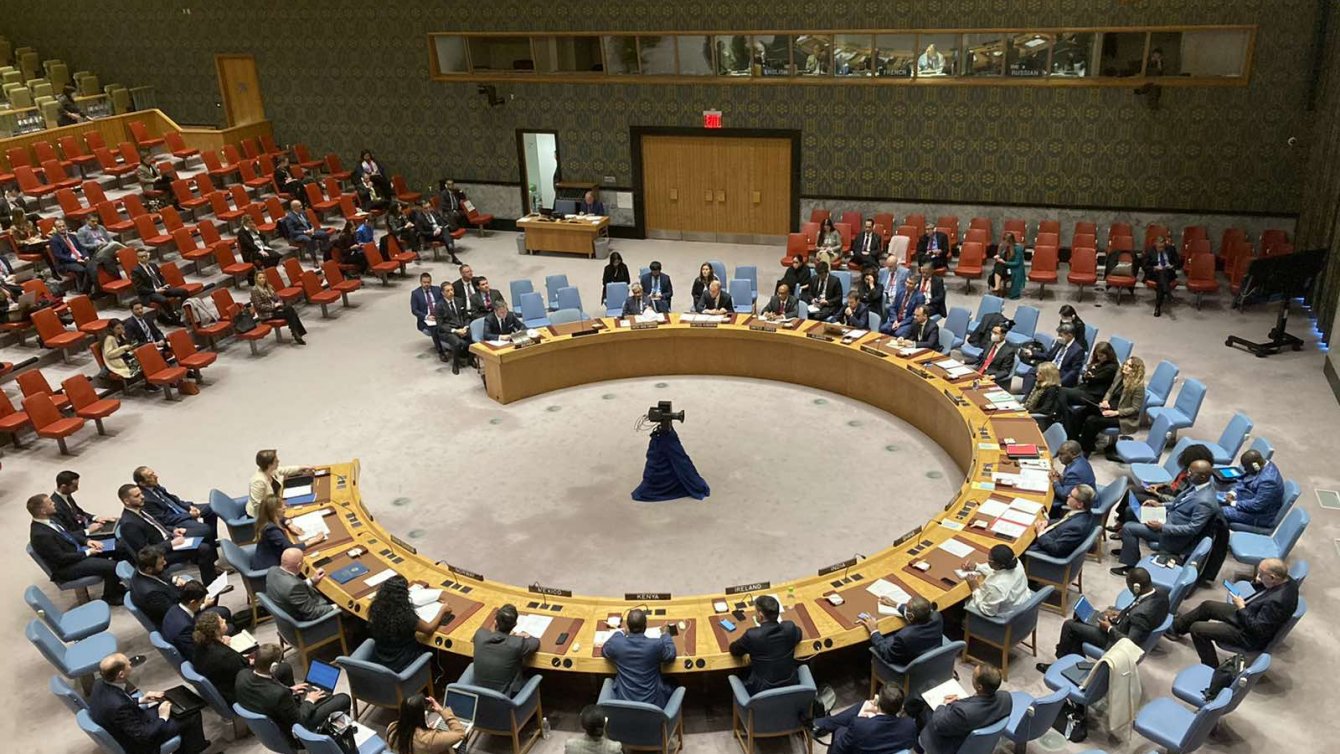
|
|
|
| July 12th 2022 Handing over the credentials of the Ambassador of the Republic of Serbia to the Republic of Poland, Nebojša Košutić, to the President of the Republic of Poland Andrzej Duda |
|
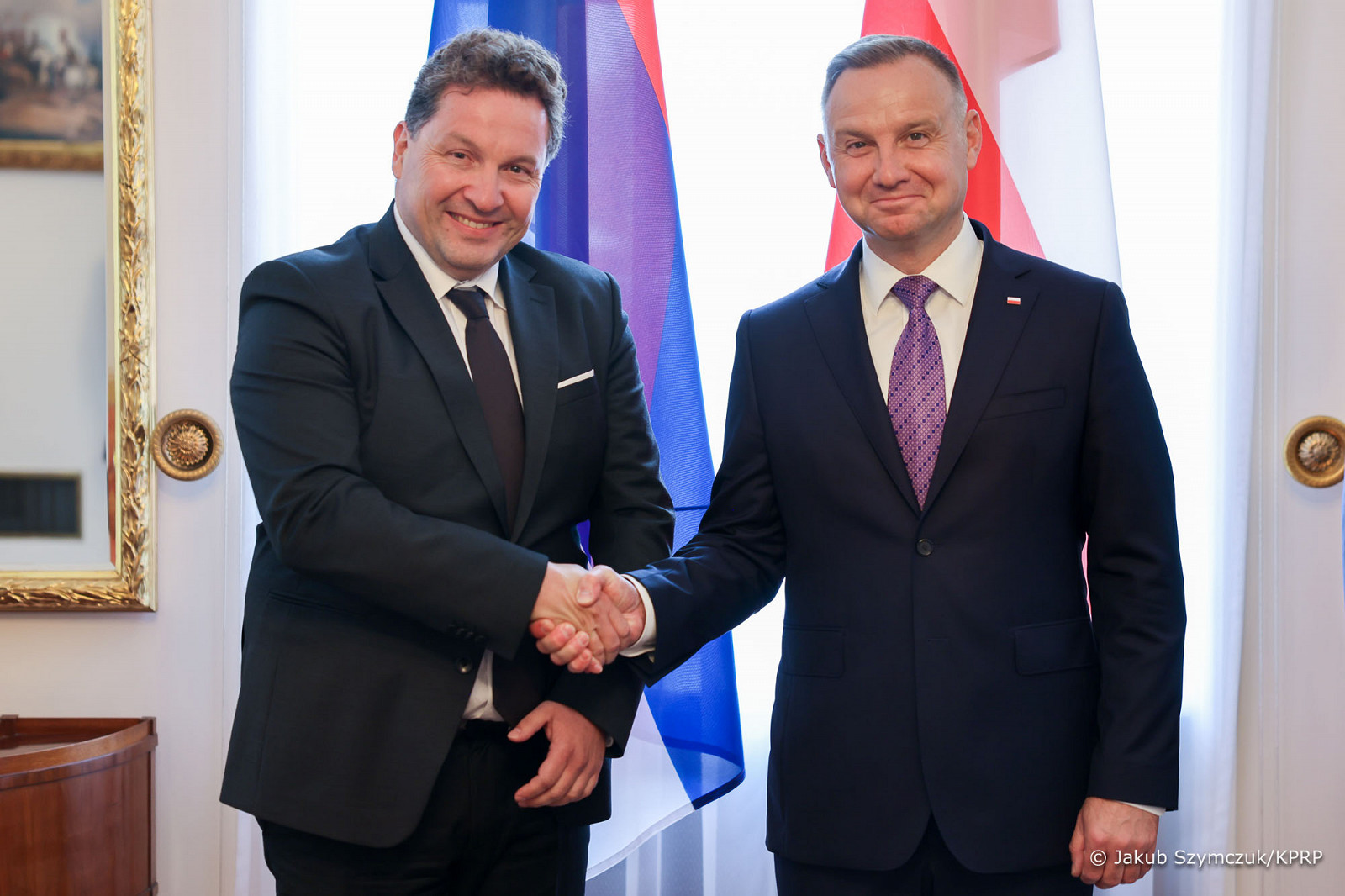
The newly appointed Ambassador of the Republic of Serbia to the Republic of Poland, Nebojša Košutić, handed over letters of credence to the President of the Republic of Poland, Andrzej Duda on July 12th 2022.
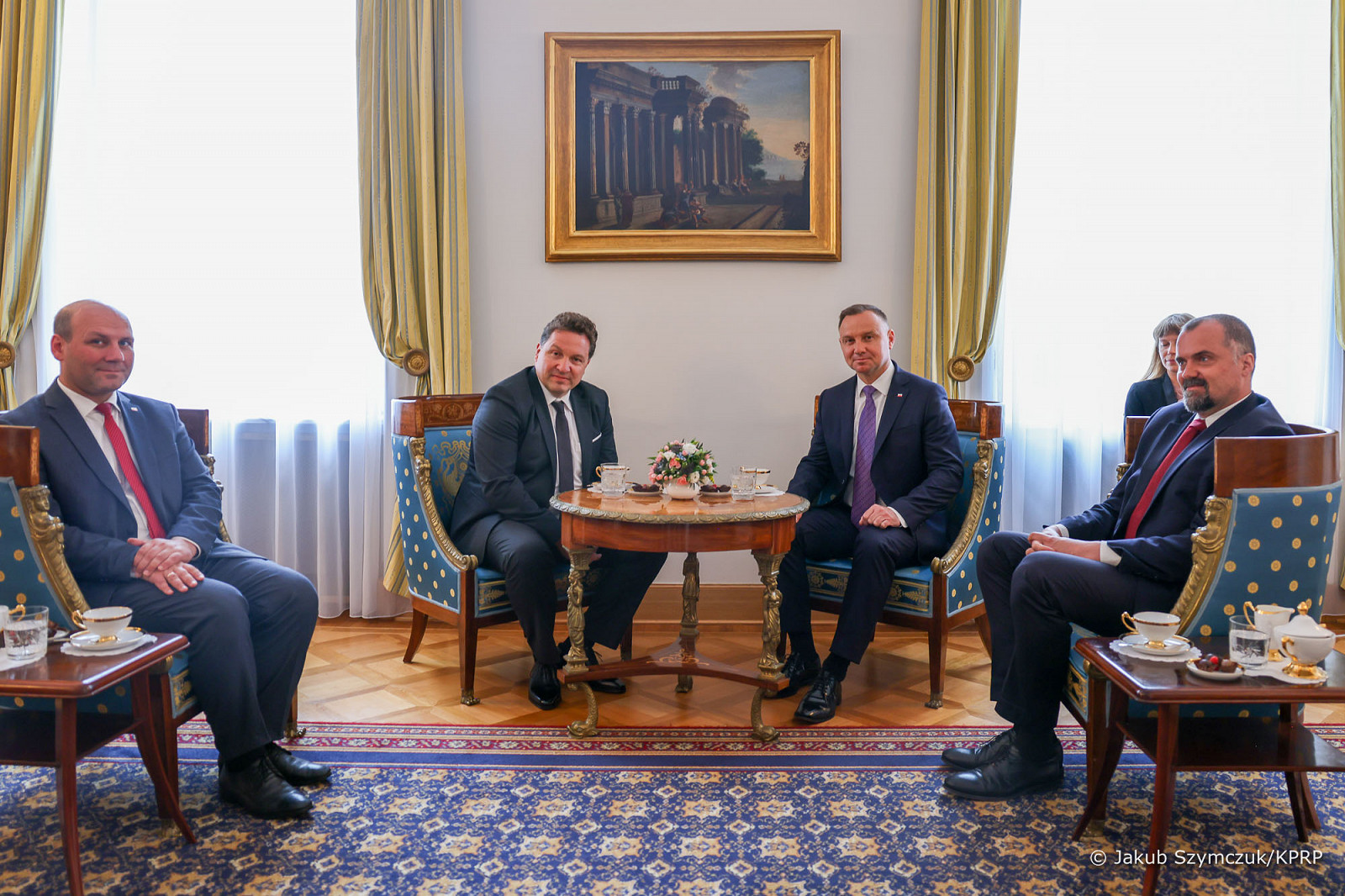
After singing the national anthems, a ceremony was held in the Belvedere Palace in Warsaw, where Ambassador Košutić presented the credentials, and then he talked with President Duda about Serbian-Polish relations and the prospects for future cooperation between the two traditionally friendly countries.
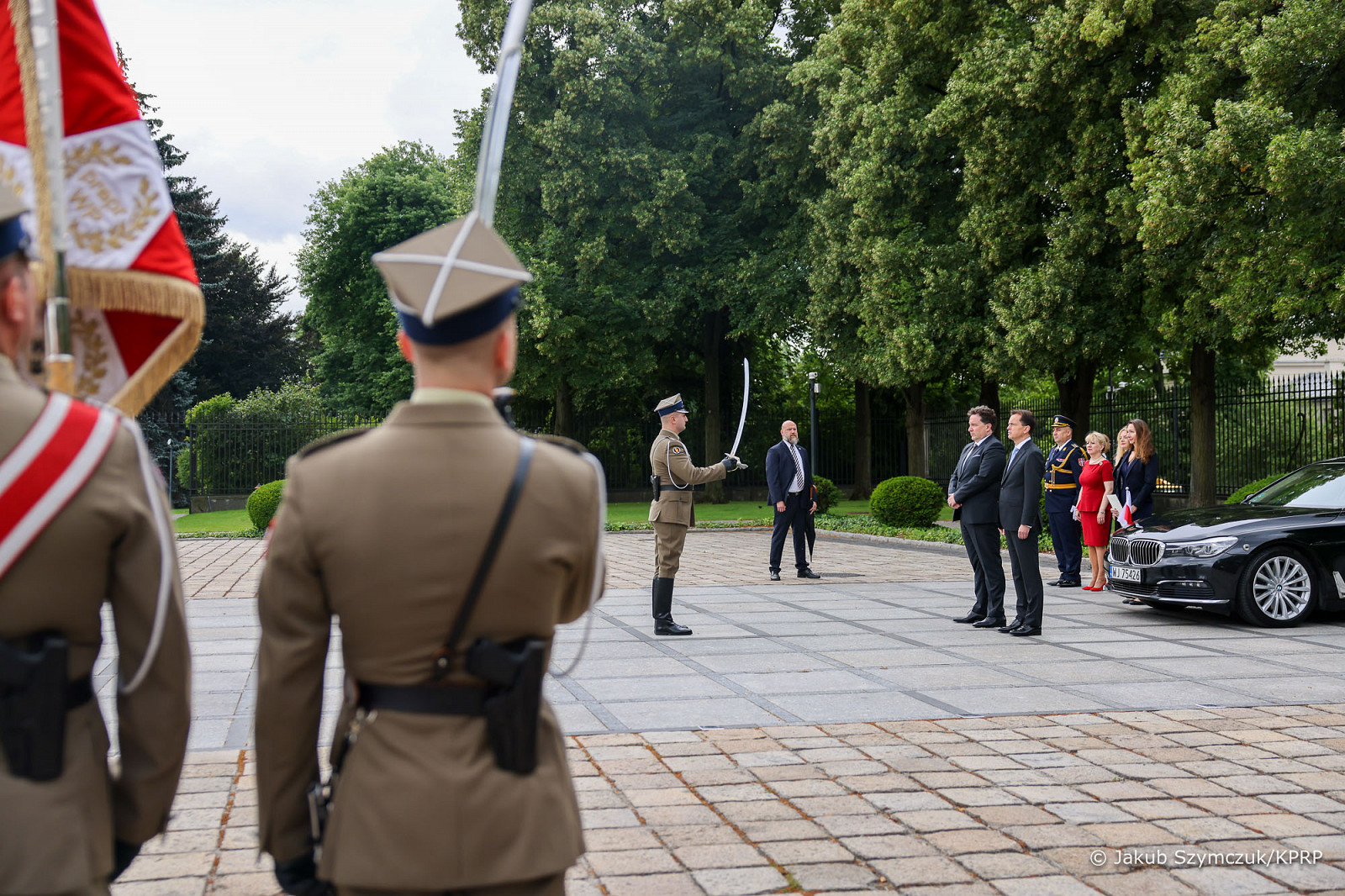 |
|
|
| Belgrade, 12 July 2022 Long-standing constructive partnership between Serbia, OSCE |
|
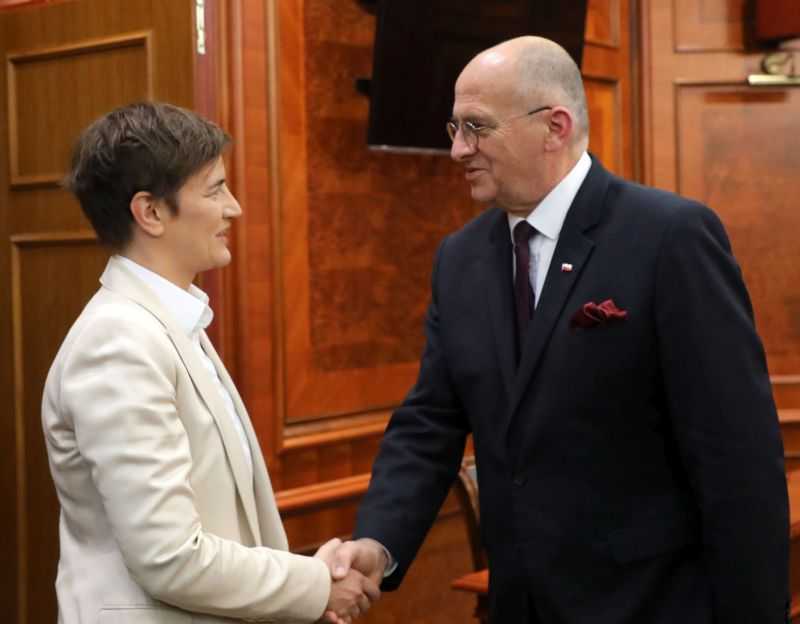
Prime Minister Ana Brnabic spoke today with Chairman of the Organidation for Security and Cooperation in Europe (OSCE) and Minister of Foreign Affairs of Poland Zbigniew Rau about cooperation with this European organisation, bilateral relations between the two countries, as well as on the European integration of Serbia.
Brnabic emphasised the importance that Serbia attaches to the OSCE and the role it plays in the field of European security, while praising the work of operations on the ground.
She especially praised the work of the OSCE Mission in Serbia, with which we have had exceptional cooperation since its establishment and which makes a significant contribution to the implementation of reform processes in our country.
When it comes to reforms in the area of the rule of law, the Prime Minister said that the government of Serbia is committed to work on improving the overall media environment and that the OSCE is an extremely important partner in this.
According to her, this organization represents a bridge of cooperation between the government, on the one hand, and the media and civil society organisations, on the other.
The Prime Minister emphasised that one of the key priorities of the future government will be activities in the area of the rule of law, and above all the reform of the judiciary and the media.
The Chairman of the OSCE particularly emphasised the quality of the legislative framework for the protection and promotion of the rights of national minorities in Serbia and expressed his readiness to continue cooperation with our country on this issue.
Speaking about the relations between the two countries, Brnabic pointed out that they are traditionally friendly, and expressed her gratitude to the head of Polish diplomacy for the support he provides to the European path of Serbia and the Western Balkans.
Also, the Prime Minister thanked the Minister of Foreign Affairs of Poland for his efforts in building good relations between the two countries and the long-standing constructive partnership of the OSCE and Serbia.
|
|
|
| 11. May 2022. Selaković: Serbia is actively involved in combating terrorism, radicalism and extremism |
|
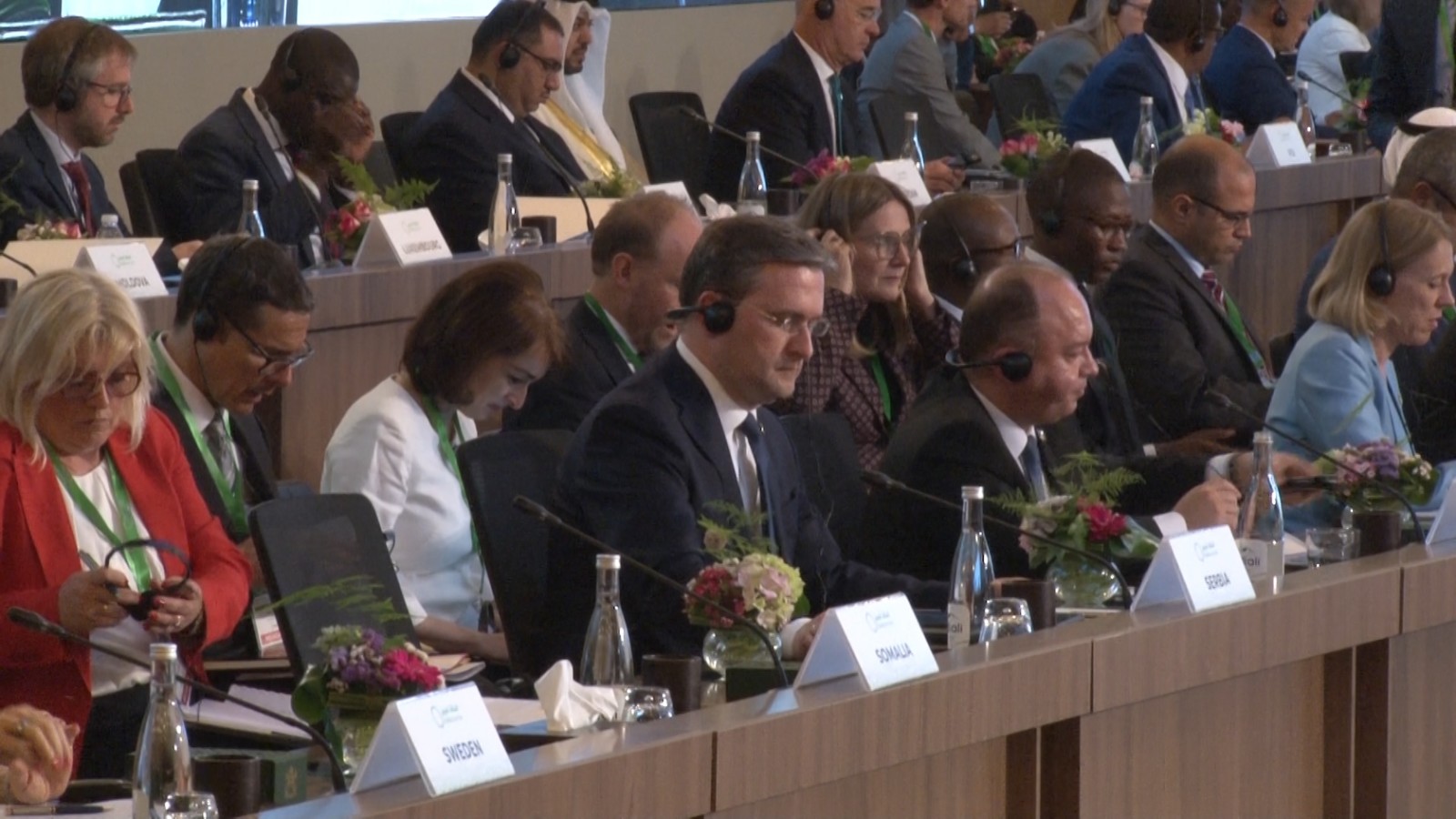
Today, in Marrakesh, Minister of Foreign Affairs of Serbia Nikola Selaković participated in the Ministerial Meeting of the Global Coalition to Defeat ISIS. Minister Selaković said that Serbia was committed to the multilateral aspect of the fight against terrorism, adding that he firmly believed the United Nations should be the key forum for international cooperation in this field.
Minister Selaković stated that Serbia was fulfilling all international obligations pertaining to the implementation of UN Security Council resolutions, especially those related to the introduction of arms embargoes, including bans aimed at non-state actors, terrorist organisations and related individuals. He emphasised that Serbia was a signatory to 15 international conventions against terrorism. “By participating in multinational UN and EU peacekeeping missions, Serbia is making a concrete contribution to preserving regional and global security,” Minister Selaković said, paying tribute to a member of the Serbian Army, Lieutenant Colonel Dejan Stanojević and his colleagues, who tragically lost their lives on March 29 in the United Nations Mission in the Democratic Republic of the Congo.
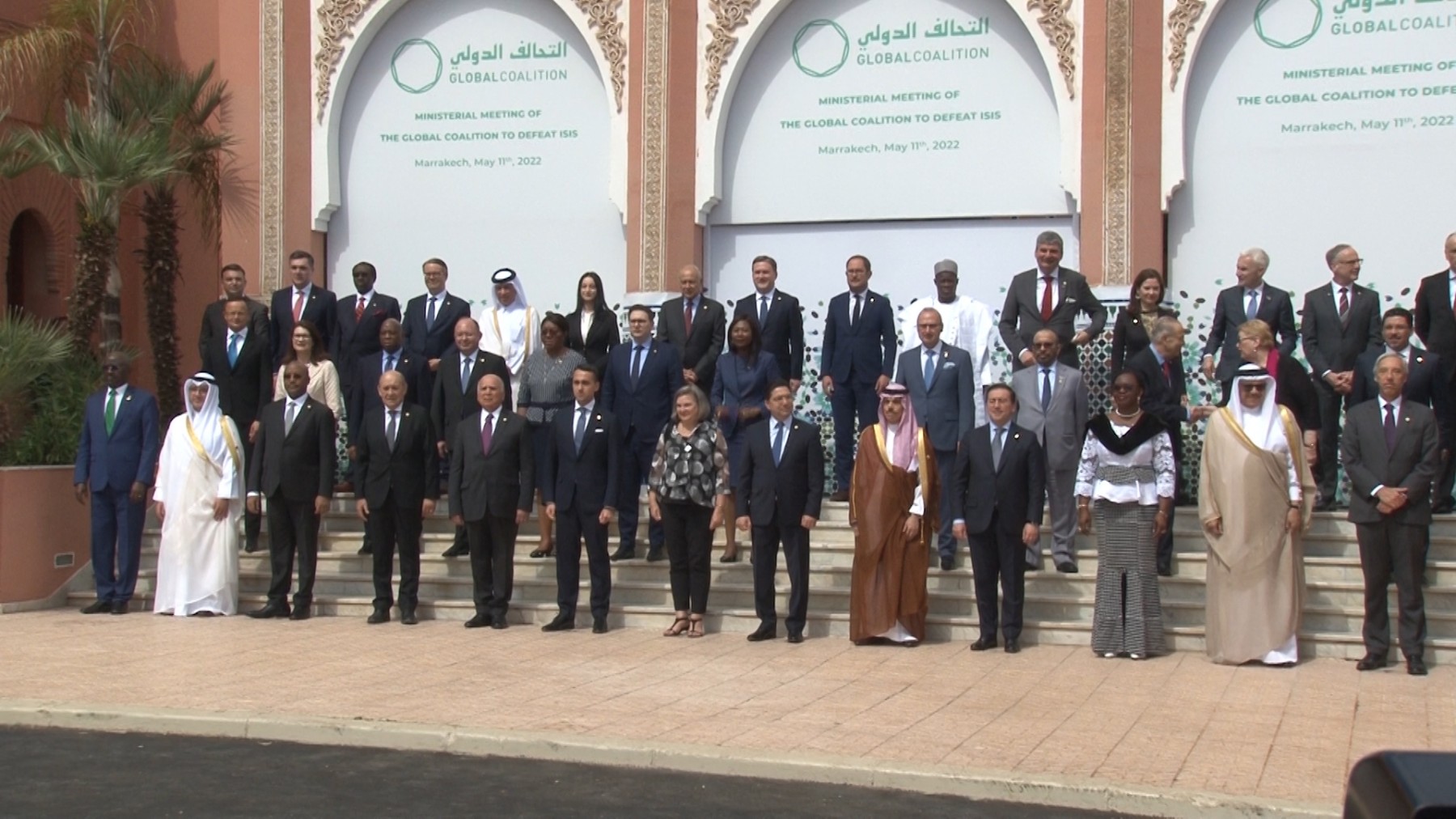
“Serbia does not diminish the importance of other international forums, which is why it joined the Global Coalition from the very beginning, and selflessly contributes to international efforts to fight ISIS, primarily through various forms of donations in military equipment, ammunition, and training in Iraqi security forces”, Minister Selaković said. He added that as a candidate country for membership in the European Union, Serbia gave its full contribution through active participation in European policies on the fight against terrorism, and had developed a strategic cooperation with EUROPOL.
Minister Selaković noted that Serbian criminal legislation provided instruments to prevent and punish the encouragement, organisation, and participation of its citizens in wars or conflicts in foreign countries. He explained that the Serbian judicial authorities had completed proceedings against 7 persons engaged in foreign battlefields, and that several investigations against persons connected with terrorist activities were underway.
Minister Selaković said that the fight against terrorism, radicalism and extremism was a priority, and that Serbia was actively involved in combating these challenges and threats at the domestic, regional, and international level.
|
|
|
| 02. March 2022. Foreign Minister Selaković meeting with the Head of the EU Delegation and the Ambassadors of the EU Member States |
|
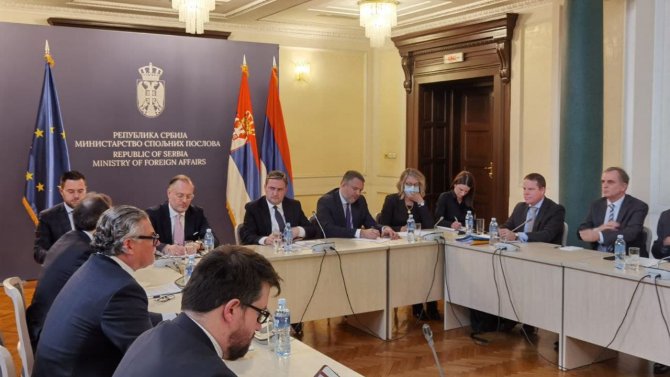
The Minister of Foreign Affairs Nikola Selaković met todaty with the Head of the EU Delegation Emanuel Giofre and the Ambassadors of the EU Member States accredited to Serbia.
Minister Selaković informed the ambassadors present about the Conclusion of the National Security Council, which was adopted by the Government of Serbia on February 27 - regarding the situation in Ukraine.
The Serbian Foreign Minister said that Serbia deems the outbreak of the crisis and conflict in Ukraine deeply regretful, emphasizing that Serbia considers it very wrong to violate the territorial integrity and sovereignty of any state, as in the case of Ukraine. In this regard, Foreign Minister Selaković reiterated that Serbia very clearly insists on the respect for the principles of international law, pointing out that this is the foundation of the Serbian foreign policy.
FM Selakovć underscored that Serbia gives fully supports the negotiations between the two sides and all credible international efforts to find a peaceful and political sollution to the crisis in Ukraine.
Mr. Selaković pointed out that Serbia will continue to consistently maintain peace and stabillity in Southeast Europe in these challenging times, emphasizing that modern challenges also show that all disagreements on our continent must be resolved by peaceful means and dialogue.
|
|
|
| 17. 2. 2022 Hading over the copies of credentials |
|
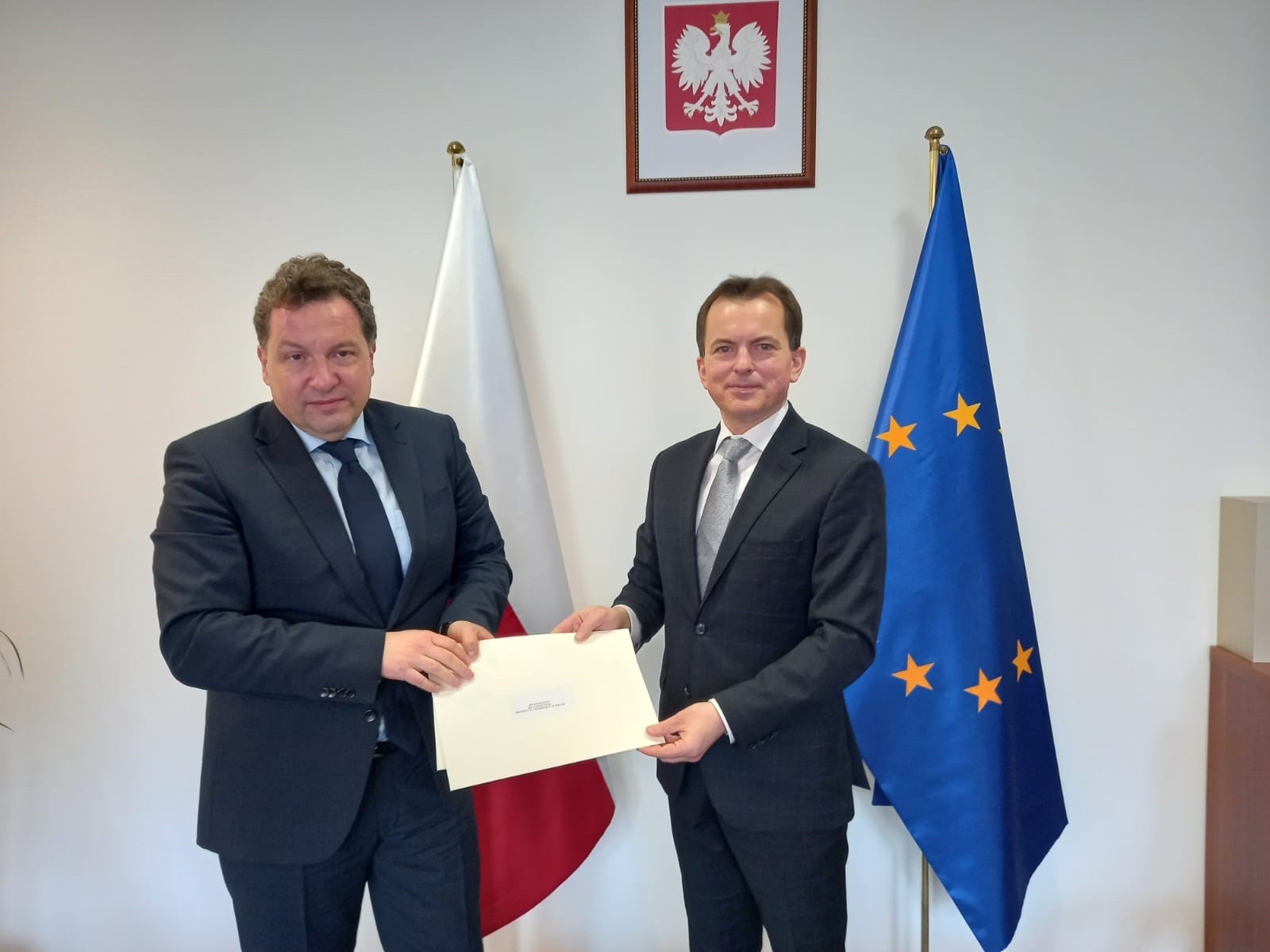
H.E. Mr. Nebojša Košutić, Ambassador of the Republic of Serbia in Warsaw, on February 17th 2022, handed over the copies of credentials to Mr. Marek Szczepanowski, the Director of the Protocol of the Ministry of Foreign Affairs of the Republc of Poland. |
|
|
| 7 February 2022 Belgrade to get Centre for Fourth Industrial Revolution |
|
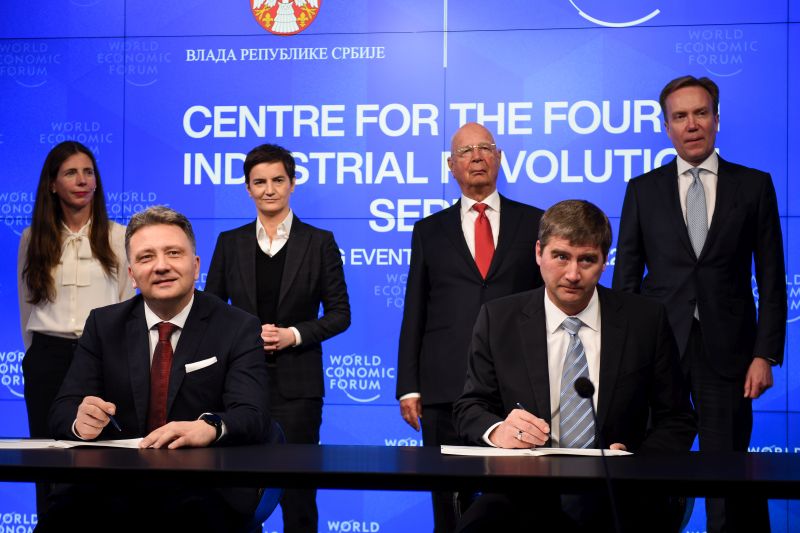
Prime Minister Ana Brnabic attended today in Geneva the signing of the Agreement on the Establishment of the World Economic Forum Centre for theFourth Industrial Revolution in Serbia, the first of its kind in the Western Balkans.
The agreement was signed at the headquarters of that forum by Director of the Office for Information Technologies and eGovernment Mihailo Jovanovic and Managing Director and Head of the Forum's Centre for the Fourth Industrial Revolution Jeremy Jurgens.
The centre in Serbia will be the 16th in the network of centres of the World Economic Forum in the world and the first in the region of the Western Balkans.
The new centre will start operating on 1 March and will function as a non-profit organisation and a platform for public-private partnership and cooperation for the Fourth Industrial Revolution, while the focus of work will be on artificial intelligence and bioengineering.
This centre will work within the Serbian government's Office for Information Technologies and eGovernment and will cooperatie with scientific institutes, state institutions and the private sector.
The signing of this document was also attended by founder and Executive Dirctor of the World Economic Forum Klaus Schwab and President of the World Economic Forum Borge Brende, with whom Brnabic had previously met.
Addressing the press, Brnabic pointed out that ths agreement is the result of many years of joint work between Serbia and the World Economic Forum.
We started talking in 2018, signed a Memorandum of Understanding, then 2020 hampered us a bit, but we continued to plan in 2021 and here we are today, she said.
According to her, the centre will be focused on the development of artificial intelligence, biomedicine and biotechnology, and on the ways in which digitalisation can raise the productivity of companies and the entire economy.
This is what further leads to higher salaries, a better standard of living, as well as to an economy that is mainly based on knowledge, creativity and innovation, Brnabic emphasised.
Today, we have received great recognition for everything that Serbia has done in the field of digitialisation, development of high technologies and paradigm shift - from an economy that was based on labour-intensive investments to digital development.
That is why this agreement shows that Serbia has been recognised as one of the leaders in the economy and IT industry in the last six years, the Prime Minister pointed out and assessed that this is the announc3ement of the beginning of an even closer cooperation between Serbia and WEF.
She added that they will have a joint meeting with the 16 WEF centres for the fourth industrial revolution in the world every month, at which they will talk about what each of them is doing, since each has a different focus.
That is how we will hear what eveyone is doing every month, learn from each other and I am sure that the centre in Belgrade will be one of the best, the Prime Minister said.
According to her, this gives us visibility, the opportunity to further establish Serbia as an investment destination, a country good for living and investing in new tecnologies and knowledge.
Jovanovic said that the ecosystem formed around the centre will use the infrastructure of the National Platform for the Development of Artificial Intelligence, the Centre for Genome Sequencing and the future bioeconomic centre - BIO4 Campus.
Izvor/Foto: Tanjug |
|
|
| Non-working days at the Embassy of the Republic of Serbia in Warszaw |
|
Due to the state holidays, The Embassy of the Republic of Serbia in Warsaw will not work on January 3rd and January 7th, 2022. Number for the emergency is + 48 22 628 5161 |
|
|
| 14 December 2021 Opening of cluster 4 important turning point for Serbia |
|
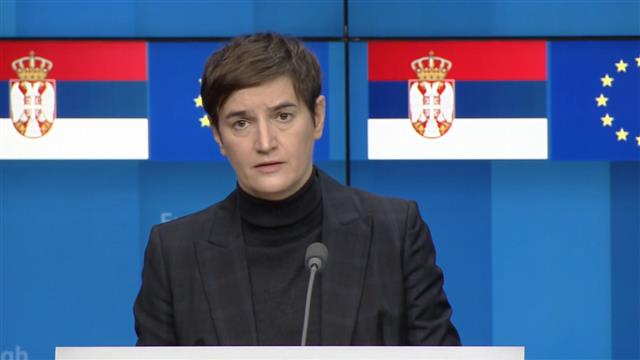
Prime Minister Ana Brnabic stated in Brussels today after the Intergovernmental conference on the accession of the Republic of Serbia to the European Union (EU) that today is a very important date and a turning point for Serbia.
Brnabic said that in line with the new methodology, Serbia hs opened cluster 4 - Green Agenda and Sustainable Connectivity, and within cluster 4, four chapters have been opened.
The Prime Minister underlined that this is a great success on which she wants to congratulate all citizens of Serbia and she thanked President of Serbia Aleksandar Vucic on the support and understanding he showed.
An important segment of the new methodology is political management of integrations. What we have done in the mandate of the new government is that we manage, together with Minister of European Integration Jadranka Joksimovic, the integration process and all reforms, first and foremost in the field of the rule of law, politically in full, and that yielded results, the Prime Minister said.
She said that the opening of the chapters is a guge motivation for further reforms in the field of the rule of law, public administration and the economy.
I would like to thank ell EU Member State, as well as the European Commission, for their support and understanding. They have shown that they are open, that they are ready to see, to listen, to reward everything we have one and therefore this is a great motivation to continue, not even in the same way we have worked so far, but to go faster and to work better, she noted.
Brnabic voiced hope taht Serbia will open cluster 3 in 2022, which is ready, and that preparations for the opening of luster 5 are on the agenda.
The Prime Minister underlined that environmental protection is gaining importance and that this topic is increasingly present and important in Serbia.
Regional stability, dialogue with Pristina and the economy also remain our priorities. I am satisfied, and we talked about that today, about economic results Serbia is echieving. I expect our growth this year to be 7.5 percent, the Prime Ministesr pointed out.
She said that the degree of harmoisation of Serbia with the foreign and security policy of the EU currently stands at 65.5 percent.
Brnabic also thanked SLovenia for the successful EU presidency, she thanked EU Member States on their support, as well as the European Commission, European Commissioner for Neighbourhood and Enlargement Oliver Varhelyi and Eurpean Commission President Ursula von der Leyen.
Source: www.srbija.gov.rs
Photo: Tanjug |
|
|
| 18. Nov 2021. Selaković spoke with Giaufret and EU ambassadors |
|
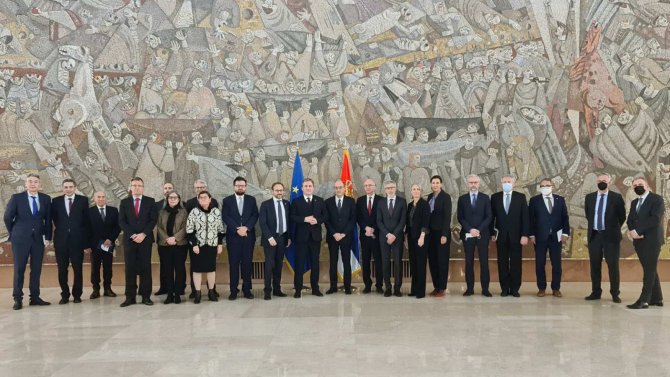
The Minister of Foreign Affairs of Serbia, Nikola Selaković, met with the Head of the Delegation of the European Union, Emanuele Giaufret, and the ambassadors of the EU member states accredited in our country.
Selaković emphasized that EU membership is an absolute priority of our foreign policy and strategic commitment, conveying that we are fully committed to the reform process and the improvement of all segments of our society.
He assessed that the dynamics of accession negotiations should b in line with our reform efforts, but that it is encouraging that this year's European Commission report on Serbia's progress has a more positive tone than the previous one, and that, inthat sense, we expect that an Intergovernmental Conference will be held by the end of the Slovenian presidency of the EU Council, at which two clusters will be opened.
The Minister said that Serbia maintains an intensive dialogue with EU officials and added that we look very positively at the decision of the Foreign Affairs Concil to consider a way to include partners from the Western Balkans in the discussion on foreign and security policy.
The head of Serbian diplomacy emphasized that the EU is Serbia's most important foreign trade partner, informing his interlocutors that the trade exchange between Serbia and the EU has incrfeased by 52% in the last seven years, and the eyport of Serbian products to the EU increased by 64% which is a joint result, as he assessed.
Selaković said that Serbia is fully committed to preserving peace and stability in the region through cooperation and open dialogue, emphasizing the ''Open Balkans'' initiative as a way to connect the region economically.
When it comes to the process of normalization of relations between Belgrade and Pristina, Minister Selaković said that our side is fully committed to dialogue, and that we have fulfilled our obligations, but that Pristina persistently avoids fulfilling its own, citing as an example that for eight and a half years notihing has been done regarding the estabilishment of the Association of Serbian municipalities. In addition, accordint to him, Pristina's unilateral moves on the ground, four in the last two months, further endanger peace and stability.
The Minister informed the heads of missions about the fight against the pandemic in Serbia, expressing readiness for further cooperation with partners from Europe and the world in the joint fight against the corona virus.
Ambassador Giaufret thanked the Minister of Foreign Affairs Selaković for tghe reception of the ambassador of the European Union in the Palace of Serbia. Ambassador Giaufret welcomed the current level of cooperation between the EU and Serbia in the field of common security and defense policy, as well as the important contribution of Serbia to EU missions and operations.
''We really hope taht we will be able to further develop the harmonization of Serbia's foreign policy with the European Union'', the ambassador said.
The EU Foreign Affairs Council had a strategic conversation on the Western Balkans on Monday, and a political dialogue on foreign and security policy was held in Belgrade two days ago, a couple of weeks after the publication of the Annual Report, Ambassador Giaufret pointed out.
''In the Foreign Affairs Council, there is broad support for the EU's strong engagement in the region and further joining the region in our foreign policy efforts. We had a good excahange of views on that today, and we will work on further integration of Serbia and the region at all levels'', the ambassador concluded. |
|
|
| Great space for the development of political and economic relations between Serbia and Lithuania |
|
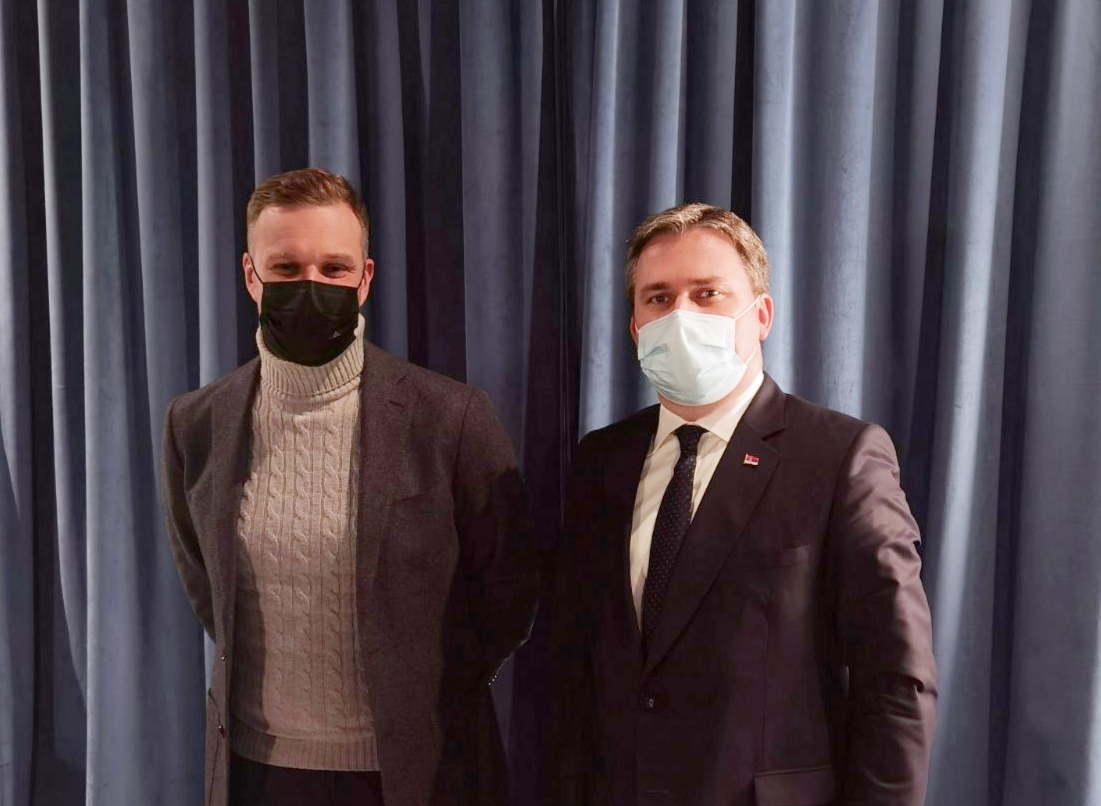
The Minister of Foreign Affairs of Serbia, Nikola Selakovic, met tonight in Brussels with the Minister of Foreign Affairs of Lithuania, Gabrielius Landsbergis.
Minister Selakovic expressed Serbia's interest in intensifying the political dialogue and more frequent exchange of visits at tghe high and highest level.
According to Selakovic, the two countries have a great untapped potential for the improvement of mutually beneficial economic relations.
Minister Selakovic informed his interlocutor about the economic results of Serbia in the past few years, emphasizing that thanks to feforms and fiscal consolidation, as well as timely and well-designed measures during the coronavirus pandemci, the Serbian economy is amogn the fastest growing in Europe todayh, and we are convincingly in the region when it comes to the amount of attractd foreign direct investments.
Selakovic pointed out that full membership in the EU remains Serbia's foreign lolicy priority, and expressed expectation that Lithuania will be among the member states that objectively evaluate Serbia's progress and support the EU enlargement process.
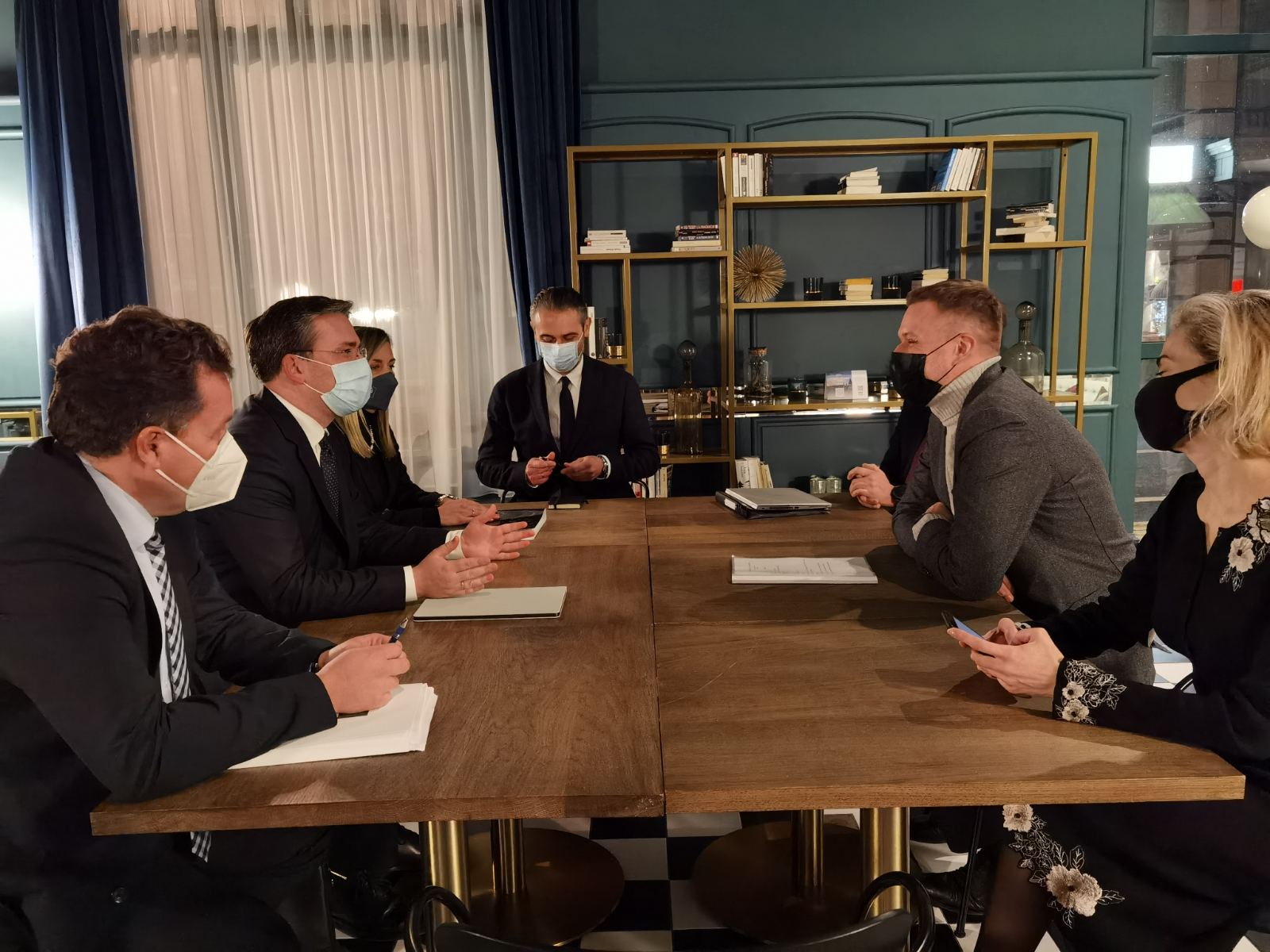
He added that Serbia remains a leliable guarantor of stability and economic development of the region, and that exactly this was the motive for launchingthe ''Open Balkans'' initiative, by which Belgrade, in the most open and sincere way, ixpresses readiness for cooperation with the environment and encourages economic processes in the entire Southeast Europe.
Minister Selakovic informed his Lithuanian colleague about the situation i Kosovo and Metohija, with an emphasis on Pristina's latest attempts to destabilize the situation on the ground through unilateral acts against the Serbian people in the province.
As he pointed out, Belgrade consistently holds the position that solutions to the problems in Kosovo and Metohija can be found only by compromises in the dialogue with Pristina, which, as he stated, doest not show readiness for peaceful resolution of disagreements and implementation of agreements reached so far in the framework of the Brussels dialogue. |
|
|
| 12 November 2021 Serbia expects support for opening clusters by end year |
|
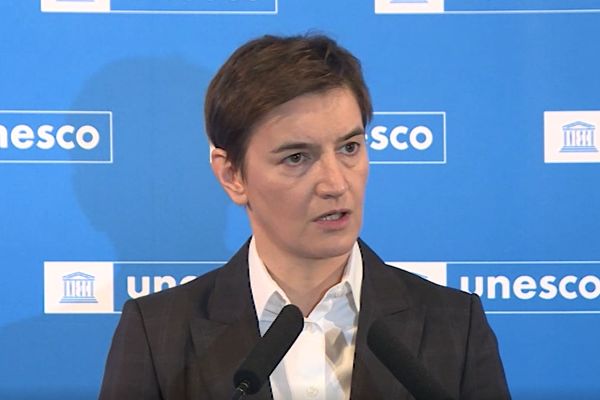
Prime Minister Ana Brnabic stated today in Paris that she expects positive news and support from France for opening one or two clusters at the intergovernmental conference to be held in December.
At the press conference, Brnabic stated that she talked with French President Emanuel Macron about the situation in Serbia, primarly in the context of European integration, i.e., whether we can count on the country's support for opening a cluster at the December intergovernmental conference.
We have two clusters ready for opening, so I expect positive news and support from France for oneor both clusters, but certainlyu significant support, the Prime Minister said.
She pointed otu that Macron told her to convey greetings to the President of the Rrepublic, Aleksandar Vucic, and the whole of Serbia, as well as that he remembers his visit to Belgrade with great joy.
Today, I had good talks with the President of Cyprus, but also with the President of Slovenia, with whom I also talked about European integration, i.e., the country's support, which is clear and unambiguous for opening a cluster and further progress of Serbia towards full EU membership, regional relations and regional cooperation, said Brnabic.
She stated that she also talked with EU High Representative Josep Borrell in Paris.
There were interesting and good talks, it seems to me that we have done good things for our country and I expect it to continue today, the Prime Minister concluded.
Source/Photo: www.srbija.gov.rs |
|
|
| 12 November 2021 UNESCO's role extremly important for preservation of Serbian heritage in Kosovo and Metohija |
|
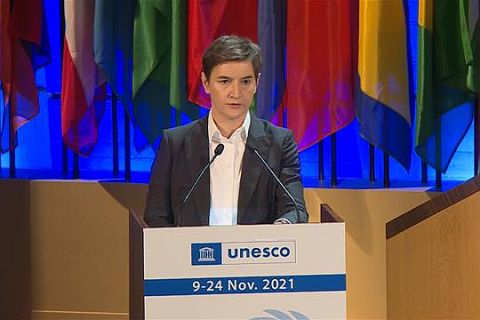
Prime Minister Ana Brnabic stated today that severe examples of endangering the Serbian cultural, historical and spiritual heritage in Kosovo and Metohija are proof of the important role of UNESCO in protecting and preserving heritage.
At the 41st session of the General Conference of UNESCO in Paris, Brnabic emphasized that four jewels of the Serbian medieval cultural heritage in Kosovo - Visoki Decani, Pec Patriarchate, Gracanica and Bogorodica Ljeviska, have been preserved thanks to the fact that they are inscribed on the endangered world heritage list. Hundreds of other sites and monuments are endangered.
The Serbian heritage in Kosovo and Metohija is of immeasurable imp;ortance, not only for the national identity of Serbia, but also as a part of the esteemed European and world heritage, she underlined.
Source/Phosto: www.srbija.gov.rs |
|
|
| 2nd November 2021 Address of the President of the Republic of Serbia at the United Nations climate change conference COP26 held in Glasgow |
|
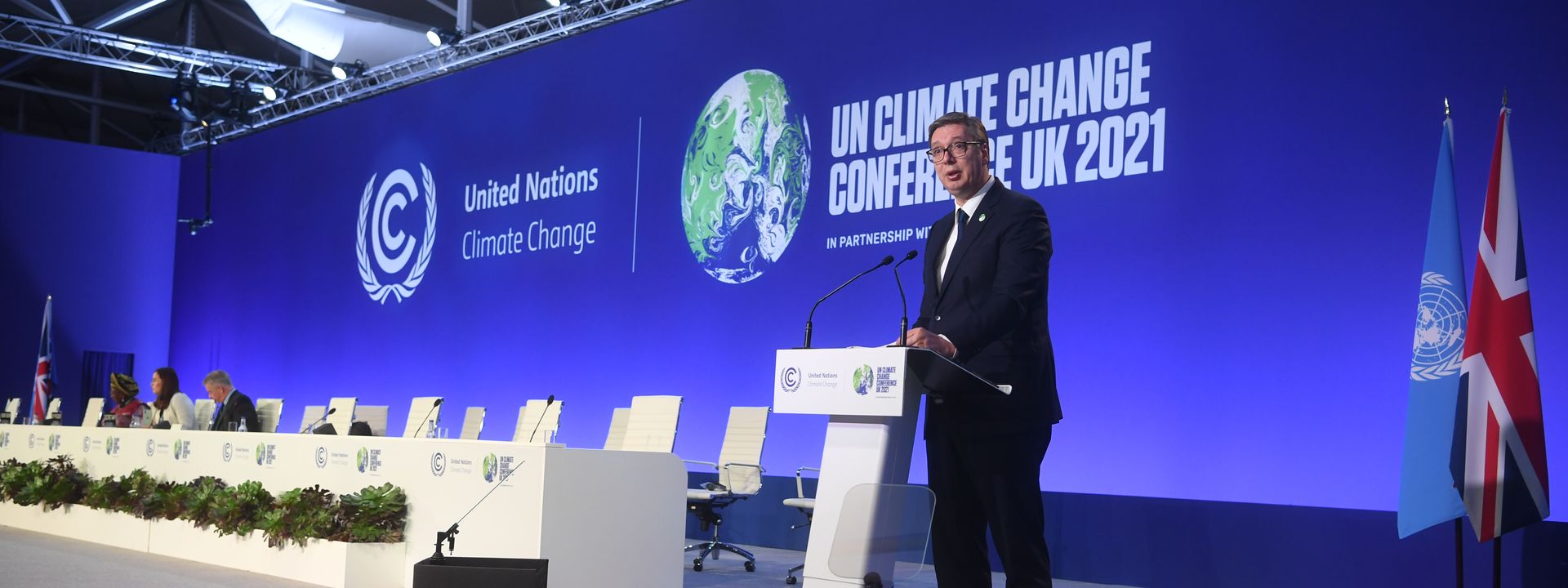
"Your Excellences,
distinguished delegates,
dear Sarah,
At the very beginning, I feel obliged to thank Prime Minister Boris Johnson and Her Majesty's Government for exceptional hospitality.
I feel privileged to represent the Republic of Serbia at this important place and at the highest-level world forum, in working on the most important topic of today - promoting climate awareness.
We all agree that we must make investment into climate and environment.
We all, likewise agree, that fuiture generations must be educated in order not to repeat the mistakes we made, by hurting the only Planet tht makes life possible.
I am very honoured that the Republic of Serbia is co-chairing this year's Conference as a Non=-EU representative of the Eastern Europe Group.
In concrete terms, we see the special contribution of our expert team in finalising negotiations on the implementation of Article 6 of the Paris Agreement, which refers to the establishment of the globl market and non-market mechanisms for reducing greenhouse gas emissions, as well as to remaining provisions referring to advanced transparency framework and common timeframes for Nationally Determined Contributions, which are the key provisions of the Agreement that have not yet been covered by the decision that is to be adopted by the Conference, i.e. all member states.
We. therefore, believe that this is an exceptional opportunity for Serbia to give its full contribution to the finalization of negotiations, whic, we hope, will secure full implementations of the Paris Agreement.
As a result of strong economic development, modelled for Serbia by 2050, the impact of the implementation of climate measures to employment will be optimal, through new jobs creation of new industries which have not existed so far.
One billion euros was raised at the first green bonds auction in Serbia, which clearly confirms the trust o international investors in our green agenda, but also to the economic and political stability of our country.
Incomes from green bonds issuance wil lbe used for financing renewables, energy efficiency, sustainable water management, prevention of pollution and circular economy development and biodiversity preservation.
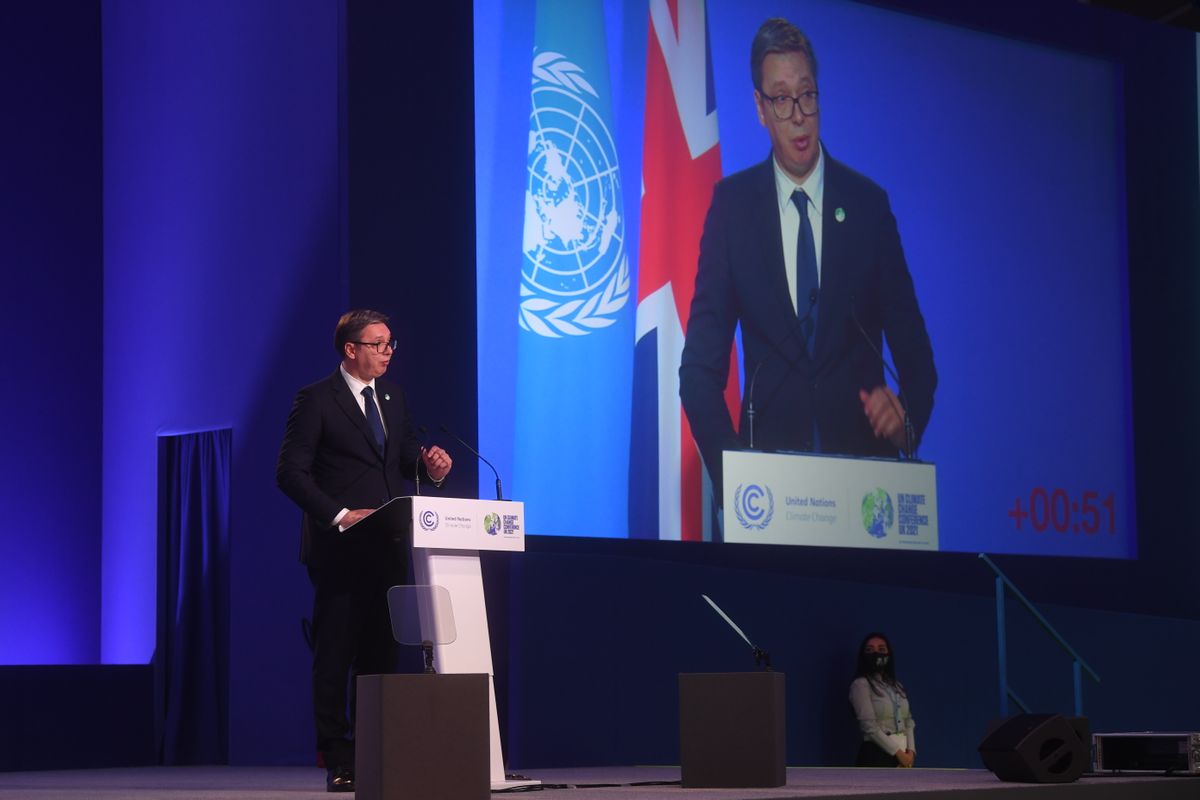
And as you can see, dear friends, my people made a terrific speech for me but I am going to add a few more words and a few more questions for those that are coming from big powers and that haven't answered yet several questions:
Number one is: how are we going to finance all these activities?
We've heard the story of trillions of dollars that are at our disposial. My question would be: what would be the interest rate, what would be the terms for taking these amounts of money, and actually how are we going to tackle that issue?
Number two: how are we going to treat the nuclear power plants? Are we going to shut them all or are we going to build them more?
Then, how are we going to build more renewables if we alredy started endorsing populist movements against wind parks, new hidropower plants, and are we going to put in jeopardy the level of our public debt to GDP ratio if we raise huge amounts of money?
How are we goin to treat natural gas, and how are we going to secure decent prices of natural gas and electricity power as well?
Ane, I came here using an electric car from Edinburgh to Glasgow. But, how are we goint to do mining and refining of lithium, nickel, cobalt and manyu other very important minerals?
In the end, we all know what is our final aim, what is our final target. But, it's not a fairytale - we'll have to work a lot, we'll have to be 100 per cent dedicated, and we'll have to be more honest with each other.
The health of people living in Serbia depends directly on the implementation of this Agenda, just like the health and life of each living being on Earth depends on arrangements that will be reached here and on national implementation of the respective arrangements.
Perhaps it is the right time to listen and hear the cry of Mother Earth because if we lose this race against time, our children will inherit an irreparably polluted Planet.
Thank you very much for listening to me."
Source: www.predsednik.rs
Photo: Dimitrije Goll |
|
|
| 22 October 2021 Continuous communication with EU on further reforms |
|
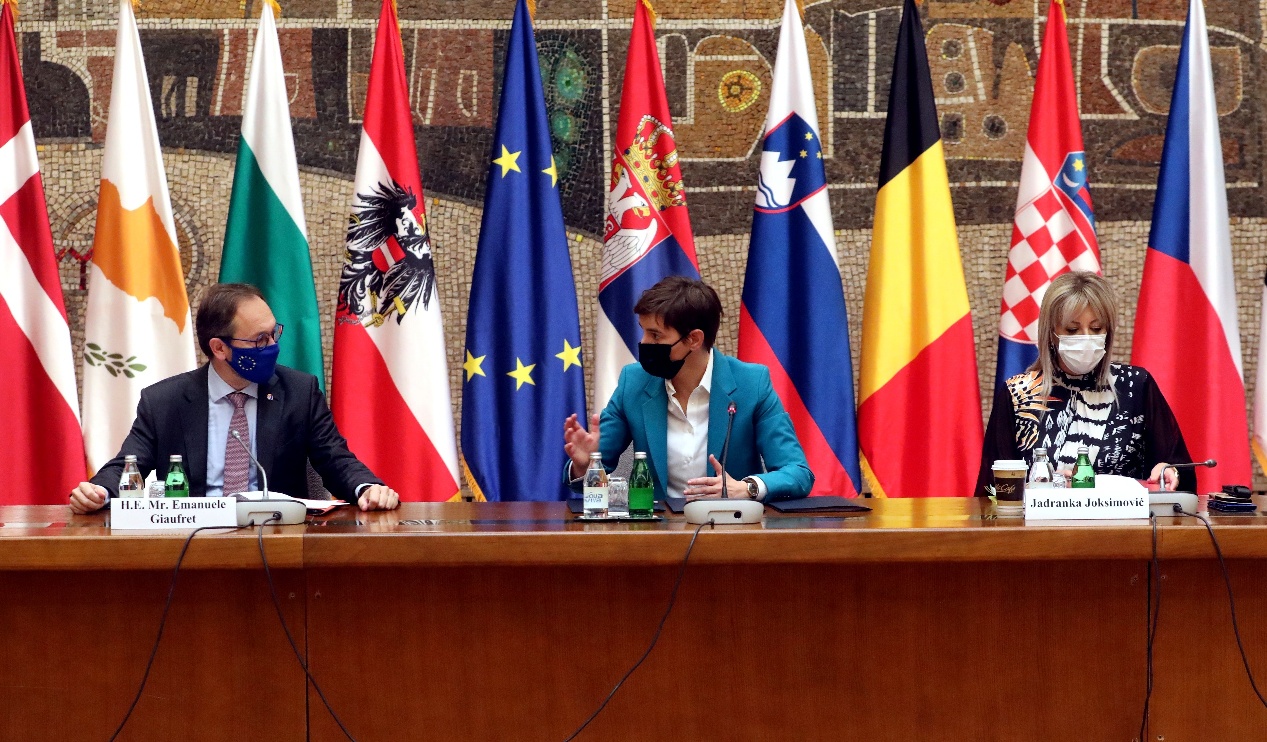
Prime Minister Ana Brnabic, together with Minister of European Integration an Chief Negotiator Jadranka Joksimovic, met today with Head of the EU Delegation to Serbia Emanuele Giaufret and the ambassadors of the EU Member States.
The topics of the meeting were 2021 EU Enlargement Package and in particular the Report of the European Commission on Serbia for this year, as well as the next steps in the process of accession to the EU.
She underlined that Serbia has continuous communication with the Delegation of the EU and all Member States and that it speaks openly about further reforms, first and foremost in the field of the rule of law.
The Prime Minister assessed that this year's Report on the progress of Serbia gives an objective evaluation of everything the Serbian government has achieved on speeding up the political and economic reforms, by which one of the strategic priorities has been fulfilled.
Acording to Brnabic, it is of particular importance that the European Commission has given a clear recommendation that Serbia reached the criteria necessary for opening two clusters of chapters.
Today we have an opportunity to present to you, as representatives of the EU and EU Member States, additional information on the adoption and implementation of all necessary reforms, the Prime Minister stated.
For this reason, it is important that this meeting is being held immediately after the release of the European Commission's Report and before the final decision of the Member States on whether they will support the opening of clusters, she said.
Brnabic voiced her hope that these additional explanations will contribute to Serbia obtaining consent for the formal continuation of negotiations by the end of this year.
She also underlined that the European Commission's recomendation for the further opening of clusters is very important politically, not only as an incentive to the government to continue implementing its reform plans with motivation and responsibility, but also to the citizens of Serbia and all in the region, who in this way receive once more a clear confirmation on the perspective of membership in the EU.
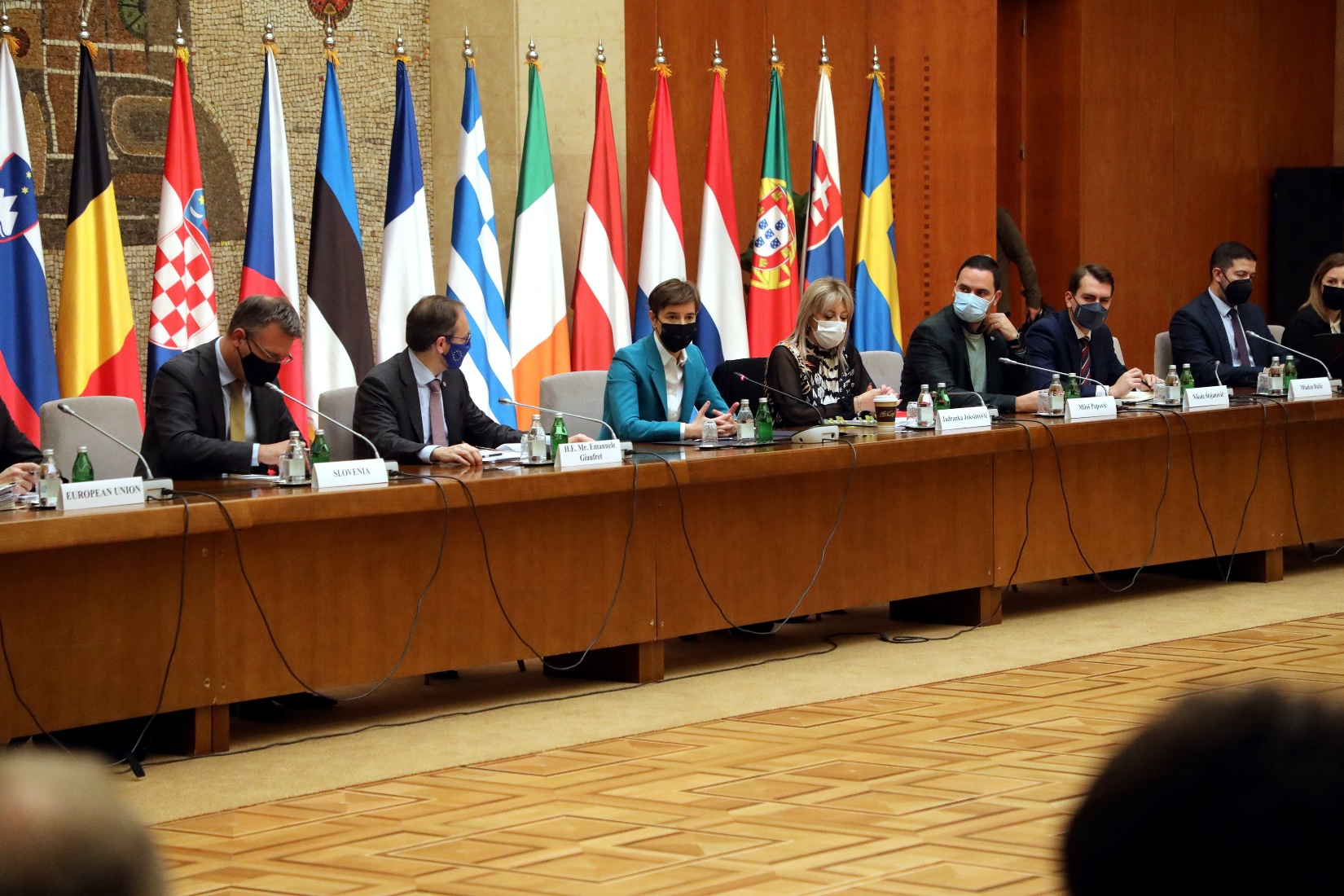
The Prime Minister pointed out that Serbia wishes to make additional progress in all areas, especially in the field of the rule of law and that continuous communication with the Delegation of the EU in Serbia and all Member States is of particular importance to that end.
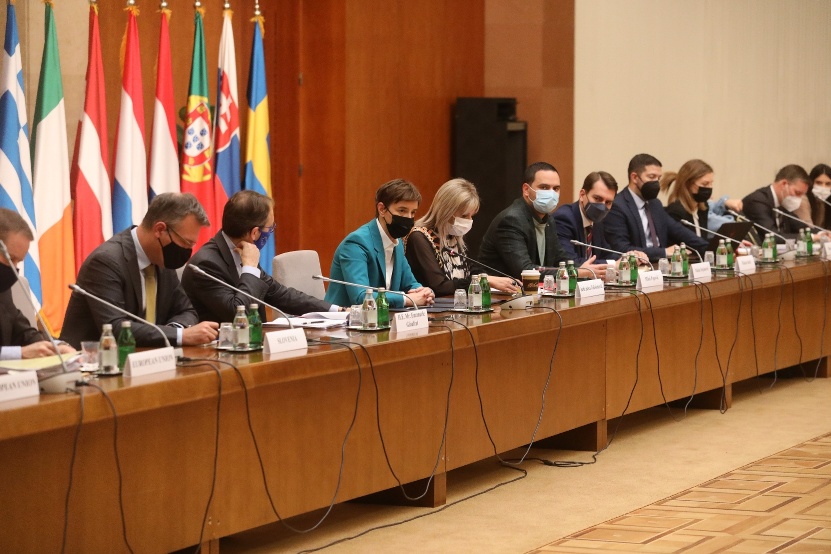
Joksimovic stated that the Report provides the necessary balance in the evaluation of everything Serbia has achieved in the previous period.
According to her, in some segments the implementation of reforms is faster, in some other somewhat slower, but progress has been noticed in all areas and is noted down in the Report itself.
She voiced hope that the general assessments from the European Commission, which speak in favour of honesty, dedication and capability of the Serbian government to implement policies which are important for the accession process in time of pandemic, will be a sufficient orientation for the Member States to agree on the furtheropening of clusters.
Ambassador Giaufret expressed gratitude to the Serbian government for convening this meeting with ambassadors of the EU Member States, describing it as a positive indication of Serbia's dedication to strengthening dialogue on reforms for the sake of solving priorities and necessary activities identified in the yearly Report of the European Commission.
Source/Photo: www.srbija.gov.rs |
|
|
| 15th October 2021 Selaković in UNSC: Dialogue and the implementation of the agreements reached are the only right way to resolve all open issues |
|
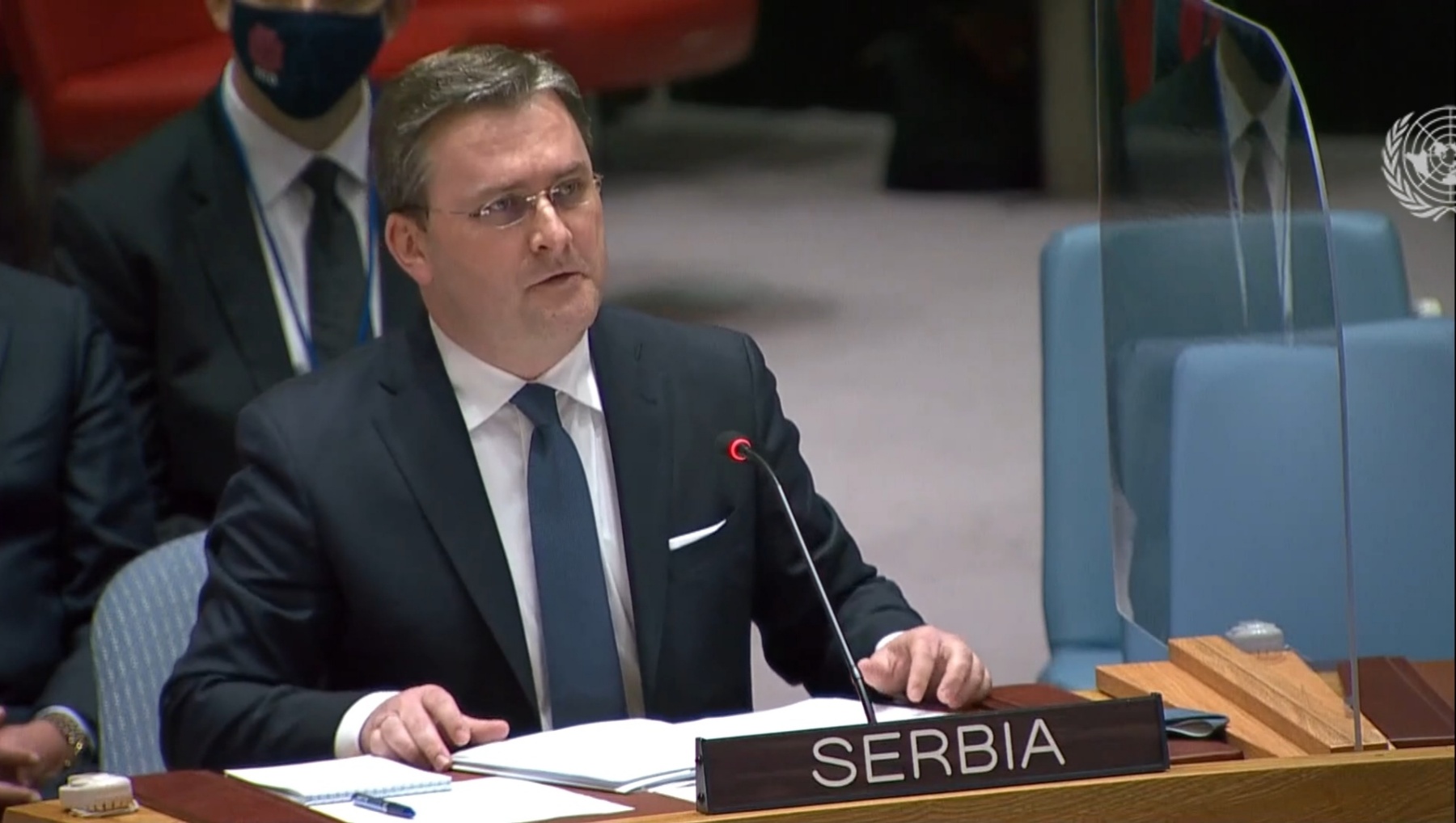
Distinguished President of the Security Council,
Esteemed members of the Security Council,
Distinguished Special Representative,
I would like to thank Secretary-General of the United Nations Mr. Guterres and Special Representative of the Secretary-General and Head of UNMIK Mr. Tanin for the report submitted and for their efforts made towards the implementation of the UNMIK mandate. I would also like to thank the members of the Security Council for the continued attention they have devoted to the issue of Kosovo and Metohija. The Republic of Serbia highly values the activities of the Mission of the United Nations in Kosovo and Metohija and supports it in carryingt out its work as efficiently as possible, pursuant to the UN Security Council Resolution 1244, and undiminished in scope, aiming to build and preserve lasting peace, stability and security in the Province.
Mr. Tanin,
Please accept the expressions of our gratitude for your engagement and the cooperation we achieved during your term of office.
Mr. President,
Deep regret and concerns are raised by the fact that the security situation in Kosovo and Metohija in the past period has been marked by an increasing number of various ethnically motivated attacks and incidents targeting Serbs, which was also stated in the Report; that the provisional institutions of self-government (PISG) in Pristina continue to take unilateral steps and refuse to implement the agreements reached in the Brussels dialogue; and that institutional discrimination against Serbs, attacks on the sites of the Serbian Orthodox Church and the undermining of the economic sustainability of Serb communities on the Province have continued.
We are witnessing that dangerous provocations by Pristina are taking place every day, at an acceleratied pace, thus seriously threatening the safety of Serbs in Kosovo and Metohija and directly violating the agreements and arrangements reached within the Brussels dialogue.
The lates violent incursion of the so-called ROSU units into the northern part of Kosovska Mitrovica, n 13 October, is the ninth incursion of its kind. Tear gas, shock bombs and unbrsidled violence are becoming a matter of everyday life for Serbs in the north of Kosovo and Mtohija, and that must be stopped immediately.
In the last attack with firearms and chemicals used by Pristina special forces, 71-year-old Verica Djelic died as a result of chemical used in the intervention, 10 unarmed civilians were wounded, one of them 36 years old Srećko Sofronijević was critically wounded in the back with of an automatic rifle. A three-month-old baby, who miraculosly remained unharmed, was also the target of the shooting.
The false excuse for the lates unilateral action, as EU High Representative for Foreign Affaires and Security Policy Josep Borrell called it, was the fight against organiyed crime and smuggling. Ladies and gentlemen, Serbia is strongly against organiyed crime and smuggling, but the members of the UNSC should know that such an important and general global goal, which we all share, was cynically used for an armed attack on unarmed civilians, which bewgan with an automatic rifle raid of pharmacies in which patients of Serbia and other nationalities are supplied with vitally important medicines. Four days before the local elections in Kosovo and Metohija, in order to gain votes in an irresponsible and inhumane way, fully motivate by separtist goals, the current PISG regime used medicines on which people's lives depend to prove its position on the status contrary to UNSCR 1244.
Only a few days earlier, another provocation on the part of Pristina led to a dangerous crisis, when personnel of the so-called ROSU unit, armed with long firearms and reinforced with armoured vehicles, were deployed to administrative crossings between central Serbia and Kosovo and Metohija - Brnjak and Jarinje - in order to remove Serbian license plates and replace them with temporary ones, thus violently preventing the free movement of citiyens.
These events do not fall within the reporting period covered by the latest Report of the UN Secretary General in the work of UNMIK, but it is incumbent upon us to address them on this occasion, in order to have eveyone understand how dramatic the situation on the ground has been and how serios the consequences of Pristina's unilateral actions can be.
The incursions of heavily armed Pristina police formations, composed exclusively of Albanians, into the nort of Kosovo and Metohija, under various pretexts and motives, with the use of excessive force, are provocations that have an extremely dangerous potential to destabilize the already sensitive security situation on the ground. The goal of the latest incursions of Pristina's special force personnel into the north of the province was to provoke the Serbs and additionally intimidate them with a demonstration of force, as well as to provoke Belgrade to react hastily in some way.
It is obvious that with such moves Pristina aims to erase the 10 years of dialogue, which is the only way to resolve open issues. These provocations once again demonstrate that the provisional institutions of self-government in Pristin, not only do not intend to implemenent everything agreed in th Brussels dialogue, but that their goal is to completely deny dialogue as a means of resolving problems. An effective response to Pristina's lac of credibility and their dangerous play with fire, which could have unforeseeeable consequences, cannot be provided by calling on ''both sides'' for constructiveness and restraint, whic has long been a manner in public communication of some important factoras in the international community. There is only one source of destabilization, it has a name - and that is the provisional institutions of seslf-government in Pristina - and after the event of 13 October, it is clear that it can and needs to be stopped by urgent and decisive action of the international community. It is now quite obvious that these are no longer sporadic and isolated provocations by Pristina, but that this is an organized campaign of ethically motivated violence and discriination against Serbs.
Wealso express our concern ove the latest imposition of tariffs by Pristina on certain products originating from central Serbia, which was made public on 8 October. We remind you that the unilateral decision of Pristina to imposle duties on productds fro central Serbia in November 2018 resulted in a de facto complete trade blockade and a long-term stalemate in the dialogue beween Belgrade and Pristina. In contrast to Pristina, which persistently seeks to raise barriers towards central Serbia through unilateral acts, Belgrade is persistently and consistently working to liberalize the flow of people, goods, services and capital, which is the basical goal of our ''Open Balkan'' initiative, North Macedonia and Albania joined this initiative, but Pristina did not.
Distinguished members of the Security Council,
In the period from March to September this year, which is covered in the latest Report, close to 100 ethnically motivated attacks were carried out against Serbs, their private property, religious and cultural heritage sites, The increase in the frequency of attacks was accompanied by the strengthening of the intensity of ethnically motivated wiolence, which more and more ofen targets children, the elderly, women, the few returnees present there, as well as churches and other property of the Serbian Orthodox Church.
This systematically intensifies the ubiquitous sense of insecurity of the remaining Serbs, but also deters potential returnees, who are in fact being told that local Albanian communities can attack them wih impunity and prevent them from returnig to live in their own homes.
The most striking example of the position of Serbs in Kosovo and Metohija is the case of the displaced person Dragica Gašić, who moved into her apartment in the municipality of Djakovica again in early June. In that town - to which local Albanians proudly refer as a place forbidden to Serbs - Ms. Gašić, on her return, first facecd physical and verbal attacks by citizens of Albanian nationality living there. Instead of being provided protection, that seriously ill woman then became a victim of institutional persecution as well, that the local self-gvernment bodies and the police unleashed against her. Since this is a person who is the first and only Serb returnee to Djakovica after more than twenty years, it was to be expected that, at that moment, at least civil society organizations would attempt to protect her rights. Howeve, NGOs from Djakovica soon joined te activities aimed at the expulsion Ms. Gašić, including those receiving funding from international donors for projects related to strengthening democracy and the rule of law.
I must also mention the latest attack on the house of the only remaining Serbian woman in the center of Pec, retired teacher Rumena Ljubić, whose windows were stoned twice in just 24 hours on 13 October.
Dragica's and Rumena's fate is a frightening reflection of the real situation of human rights that almost every one of over 200,000 displaced serbs and non-Albanians would face in Kosovo and Methija - provided that they gather the courage to return to their homes in the Province after mor than twenty years. I would like to remind you again that since 1999, only around 1,9% of internally displaced Serbs and other non-Albanians hav achieved a sustainable return to Kosovo and Metohija.
Thereore, I believe that the aforementioned will encourage the members of the Security Council and the international presence on the ground to devote priority attention inthe future to the issue of the return of displaced persons, which is an important part of the UNMIK mandat under UN Security Council Resoluton 1244.
I therefore thank the Secretary-General in particular for keepin this extremely important issue in focus and for calling aganin, in the conclusions of his Reprot, for the creation of conditions for the sustainable returen of internally displaced persons onad the sustianable reintegration of returnees.
Distinguished members of the Security Council,
Serbian medieval monuments in Kosovo and Metohija, including monuments that, due to their exceptional value but also cnstantly being subjets to threats are inscribed on the UNESCO List of World Heritage in Danger, are still among the most endangered cultural heritage in Europe.
I wish to recall that there are ove 1,300 Serbian churches and monasteries in Kosovo and Metohija. Attacks on Serbian cultural and religious heritage are at the same time attacks onthe identity of Serbs in the Province and directly affect their sense of safety.
A striking example of disrespect for Serbian cultural and religious monuments in the Province is the case of the Visoki Decani monastery. The monastery, which has been the target of attacks and shelling several times since 2000, is still secured by KFOR forces due to being under a threat. It is faced with a series of hostile actions, and the perpetrators are not deterred by the fact that this is a World Heritage Site. Despite frequent declaratiory statements, even the decision of the so-called ''constitutional court'' of the PISG in Pristina five years ago confirming ownership of Visoki Decani Monastery over 24 hectares, is not respected. We welcome the assessment made by the UN Secretary General in his Report.
Dear Mr. President,
The Republic of Serbia remains committed to finding a compromise political solution, as prescribed under Resolution 1244, whic will ensure lasting peace and stability. We firmly believe that dialogue and the implementation of the agreements reached are the only right way to resolve all open issues.
As a state committed to the respect for international law and a member of the United Nations, Serbia opposes any attempt at estabilishing an artificial balance betwe the parties in the dialogue, as well as the relativization of responsibility for unilateral acts.
We note with concern that not even eight years after reaching the Brussels Agreement, the establishment of the Community of Serb Municipalities has not been initiatted, although Belgrade his fulfilled all its obligations under that agreement.
There are also numerous and repeated examples of Pristina violating or obstructing agreements reached in dialogue, in the areas of energy, justice, freedom of movement and visits by officials.
One such example is the verdict sentencing Ivan Todosijevic to two years in prison, which is also pointed out in the Secretary General's Report. The Brussels Agreement was directly breached, which was also stated by the representatives of the European Union. With its conduct Pristina caused immeasurable damage to the reconciliation process in Kosovo and Metohija.
Despite the interpretation from the European Commission that this is a violation of the Brussels Agreement, because Todosijevic had to be sentencedby a panel consisting of the majority of judges of Serbian ethnicity, Pristina still does not take any action in this regard.
Pristina also continued with the practice o banning Serbin officials from entering the territory of the Autonomous Province of Kosovo and Metohija.
We believe that it is important that the international community, and especially the European Union, as the guarantor of the agreement, firmly insists that the provisional institutions of self-government in Pristina start implementing al the agreement reached.
Distinguished members of the Security Council,
As before, the Repubilic of Serbia remains fully committed to resolving the issue of missing persons, as also demonstrated through full cooperation with relevant international mechanisms as well as participation in the work of the Working Group on Missing Persons. We expect that the representatives of the provisional institutions of self-government in Pristina will fulfill their obligations.
Bearing in mind everything I delivered here today in may address, we hold the position that the international presence in Kosovo and Metohija, pursuant to UN Security Council Resolution 1244, is still necessary. In addition to UNMIK, the presence of KFOR as the main guarantor of security and EULEX, due to its engagement in the field of the rule of law, is also imortant. I would like to emphasize once again that Serbia fully supports respect for international law, comprehensive implementation of UN Security Council Resolution 1244 and activities of UNMIK in an undiminished scope and with adequate financial resources, so that the Mission fulfills the mandate entrusted to it under the Resolution.
Thank you. |
|
|
| 30 September 2021 President Vučić attended ceremony of the beginning of works on the modernization and rehabilitation of the Niš-Brestovac railway |
|
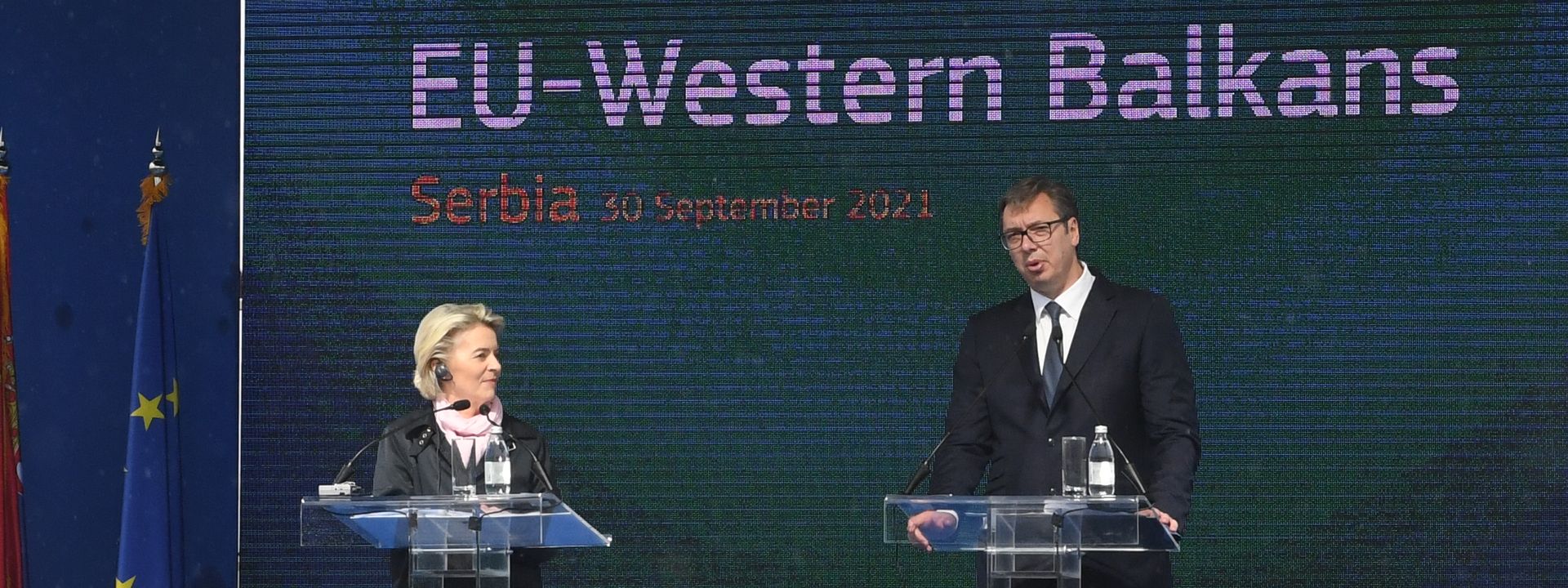
The President of the Republic of Serbia, Aleksandar Vučić and President of the European Commission, Ursula von der Leyen, have attended today the ceremony of the beginning of works on the modernization and rehabilitation of Niš-Brestovac railway at the international Cooridor 10 as well as signing of the agreement between the Public Company Koridori Srbije and Consortium STRABAG AG and STRABAG d.o.o. Beograd on the construction of the first phase of the Highwaz of peace in the section Merošina - Merošina 1.
"In Donje Međurovo the 23km loong railwaz is build and 75 percent of it will be financed bz the European Union. It is enormous money for us, great encouragement and respect. This railway and highway are important both for us and Europe. I am very grateful to Mrs Von der Leyen for coming to NIš today and Niš becomes the center of all Balkan corridor, it becomes the Balkan crossroads'', said President Vučić adding that Serbia was entirely committed to the implemeentation of the agreements signed so far under the auspices of the EU.
''We will do our best not only to preserve peace, but also to reach more agreements whic would mean security of everyone in the Balkans and better life and economy for all of us. We know what our job is. As much as we can, taking into account the difficulties due to the relation with Priština, we will do eveything to make progress on the European path'', said President Vučić and thanked the President of the European Commission for kind words and wish to see Serbia in teh EU.
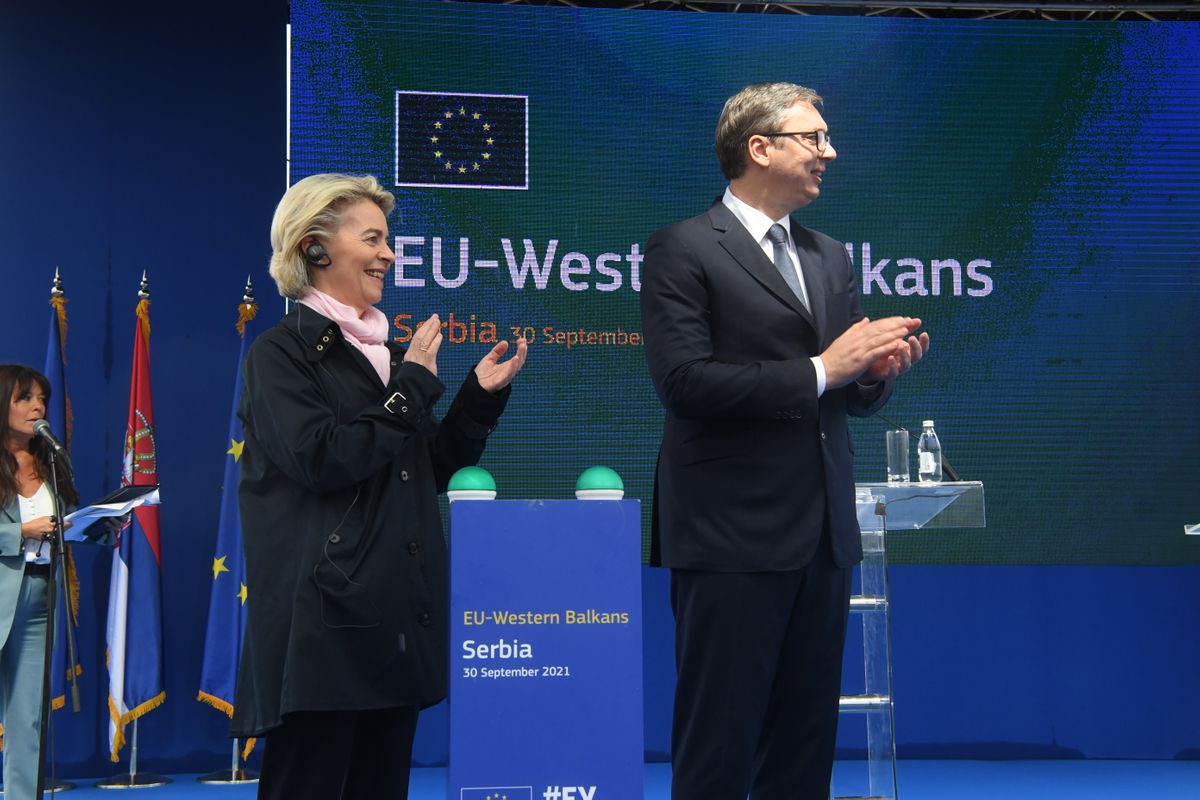
The President of the European Commission, Ursula von der Leyen, emphasized that today Serbia had alredy godne a long way to the EU membership, it had made an incredible progress and efforts in the past years and improved conditions in different sectors. She said that she strongly supports the European integrations of Serbia.
''This is a very special moment. Signing of this agreement is a symbol of our great cooperation and projects of connections through which we jointly build oru European future, because the future of Serbia in the European Union is better. The corridor connects Serba to Austria and Greece and is really the driving force of economy. It is the driving force for the Serbian economy, investments, the economic plan which already functions in Serbia'', said the President of the European Commission.
Source: www.predsednik.rs
Photo: Dimitrije Gol |
|
|
| 25 September 2021 Selaković in New York with 28 foreign minister on economic successes of Serbia and K&M situation |
|
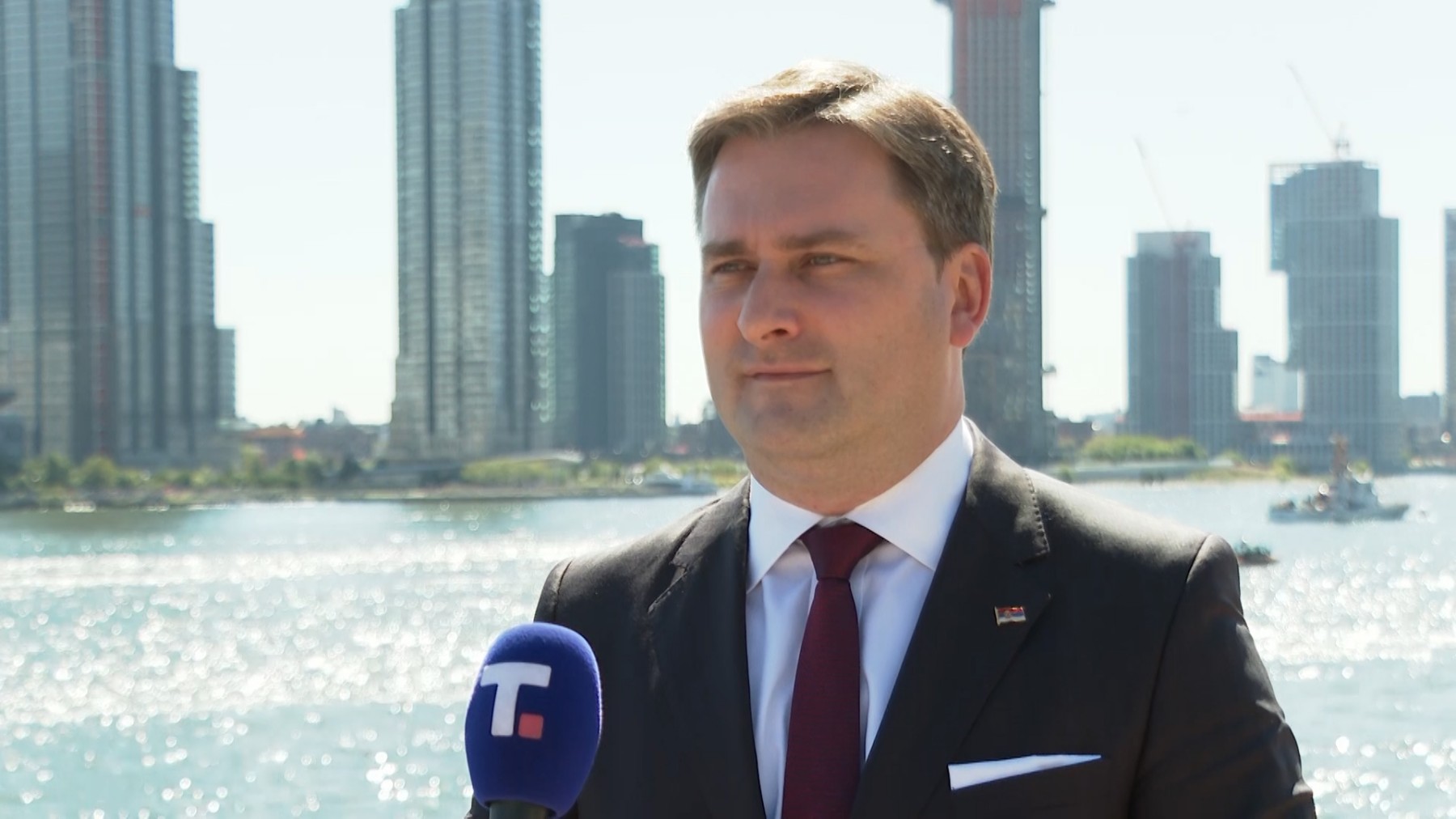
The Minister of Foreign Affairs of Serbia, Nikola Selaković, has stated that in New York he introduced foreign ministers of 28 countries to economic success of Serbia but also to the situation in Kosovo and Metohija, which he also discussed with the Russian Minister of Foreign Affairs, Sergey Lavrov, who told him that we could count on the support of the Russian Federation, with regards to Serbian interests in K&M.
Summarizing results of his visit to New York within the session of the UN General Assembly, Minister Selaković says that one of the last meetings was with Minister Lavrov, which hwas their third meeting in the previous nine months.
The Serbian Foreign Minister says that he surely used this opportunity, too, to introduce Minister Lavrov to the latest events in northern Kosovo and Metohija, the situation of the dialog between Belgrade and Pristina and very clear and unambiguous attitude of President Aleksandar Vučić regarding the continuation of the dialog and subsequent events in K&M.
"We discussed the principled support of the Russian Federation, which is constantly present not jus in Moscow, Belgrade, in the field, but also here in the East River, by the delegation of the Russian Federation as the permanent member of the UN Security Council. Of course, we will continue to maintain this type of dialog. What Minister Lavrov said was that we could count on the support of the Russian Federation in future with rgardxs to our interests in K&M, highlighted Minister Selaković.
He said that he had had the opportunity in New York to hold 33 meetings, of which 28 with ministers of foreign affairs, whom he had introduced also to topicalities related to the latest events in Kosovo and Metohija, but also to our principled position regarding the observance of the international public law, territorial integrity and sovereignty.
Minister Selaković said that his colleagues at the meetings had praised the substantial and fantastic success of Serbia in the consolidation of the economic sphere and transformation of what had been on the edge of collapse and economic disaster seven years before to the fastest growing economy in Europe, which Serbia was in the past two years.
He said that most of his interlocutors hd supported our reforms and expressed great respect toward what President Aleksandar Vučić and Serbia had done in the previous period.
Many of them says the Serbian Foreign Miniser, showed great interest in the manner in which Serbia organized the figth against Covid-19.
"It was a great pleasure and pride to represent the Republic of Serbia in all these meetings. Many of my collegues confirmed their arrival to Belgrade to the Conference on 11th and 12th October, which is dedicated to the 60th anniversary of the foundation of the Non-Allied Movement", said Minister Selaković.
He emphasized that it was not just the evidence of how much they had cared to come to Belgrade to the conference, but also to see and witness the Serbia which after several decades of attempts to fight different challenges rose to its feed, was economically consolidated and turned towards its traditional friends.
"That is a great deal and our country will surely during October be one of the spots on Earth of greatest importance for multilateralism, for cooperation among the countries which share the same values, the values entered into the UN Charter and which are based on the promotion and fight for peace, equality, observance of the international public lw and rights of every country to pursue its path to happiness and better and more ordered society in compliance with the wishes of its population", said Minister Selaković.
He said that the Minister of Foreign Affairs of Azerbaijan, jeyhun Bayramov, would come to Belgrade to the conference on the occasion of the Non-Allied Movement adding that we had strategic cooperation with Azerbaijan and frequent contacts.
"We agreed to realize as soon as possible after the Belgrade conference his bilateral visit to Serbia", added Minister Selaković.
He said that it had been agreed to intensify the cooperation and finalize the agreements which should be signed and after dhat relized when the meeting of Serbian President Aleksandar Vučić and Azerbaijan President Ilham Aliyev took place.
Minister Selaković says that the Ministry of Foreign Affairs had recently received its sector for economic diplomacy and there great expectations from it and one of the tasks was to deepen the cooperation with Azerbaijan.
|
|
|
| 26 September 2021 Telephone conversation of President Vučić and General Secretary of NATO |
|
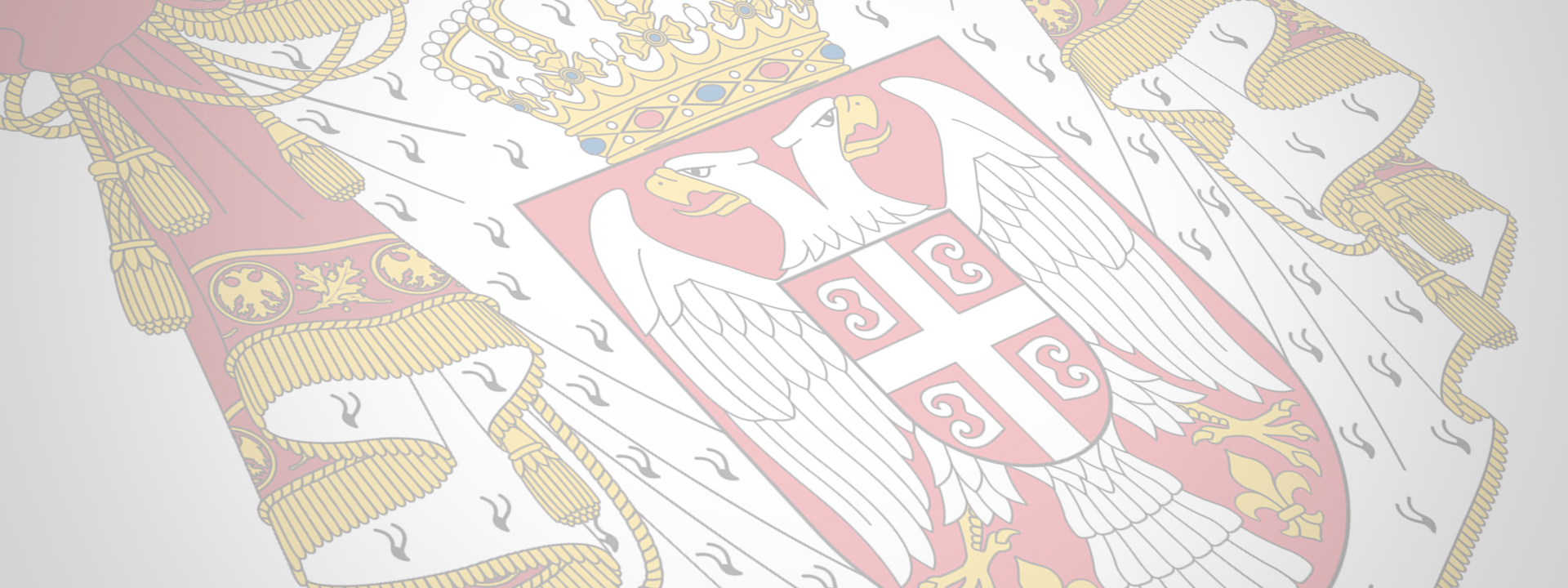
The President of the Republic of Serbia, Aleksandar Vučić, has discussed today by phone with the General Secretary of NATO, Jens Stoltenberg about, as the General Secretary said, worrisome situation in northern Kosovo and Metohija.
President Vučić said that Serbia had not violated either Brussels Agreement or Resolution 1244 by anything, by any single move or in any manner jeopardized peace preservation.
''The complete occupation by armored vehicles of northern Kosovo and Metohija has lasted for seven days and it is conducted by Priština and everyone in the international communitz ''are thunderously silent'', said Serbian President. ''However, everyone is wrried all of a suddent when they spot Serbian helicopters and airplanes at the territory of central Serbia, because apparently they should not exist, or should not take off until they receive the approval lfrom Kurti or someone from the international community'', says President Vučić.
Serbia observes all international agreements it signed, Serbia will always conduct responsibly and seriously, but Serbia is still asking when the formation of SMC will start and when Kurti's armored units will be withdrawn from northern Kosovo and Metohija.
Finally, with the gratitude to General Secretary Stoltenberg for the fair relation and wish to listen to the Serbian side, President Vučić asked about the norm and international regulation violated by Serbia? Today, yesterday or any time?
The two interlocutors agreed to stay in constant touch due to cecessity of the preservation of peace and stability in the entire region.
Source/Photo: www.predsednik.rs |
|
|
| 25 September 2021 Pristina seriously jeopardised regional stability |
|
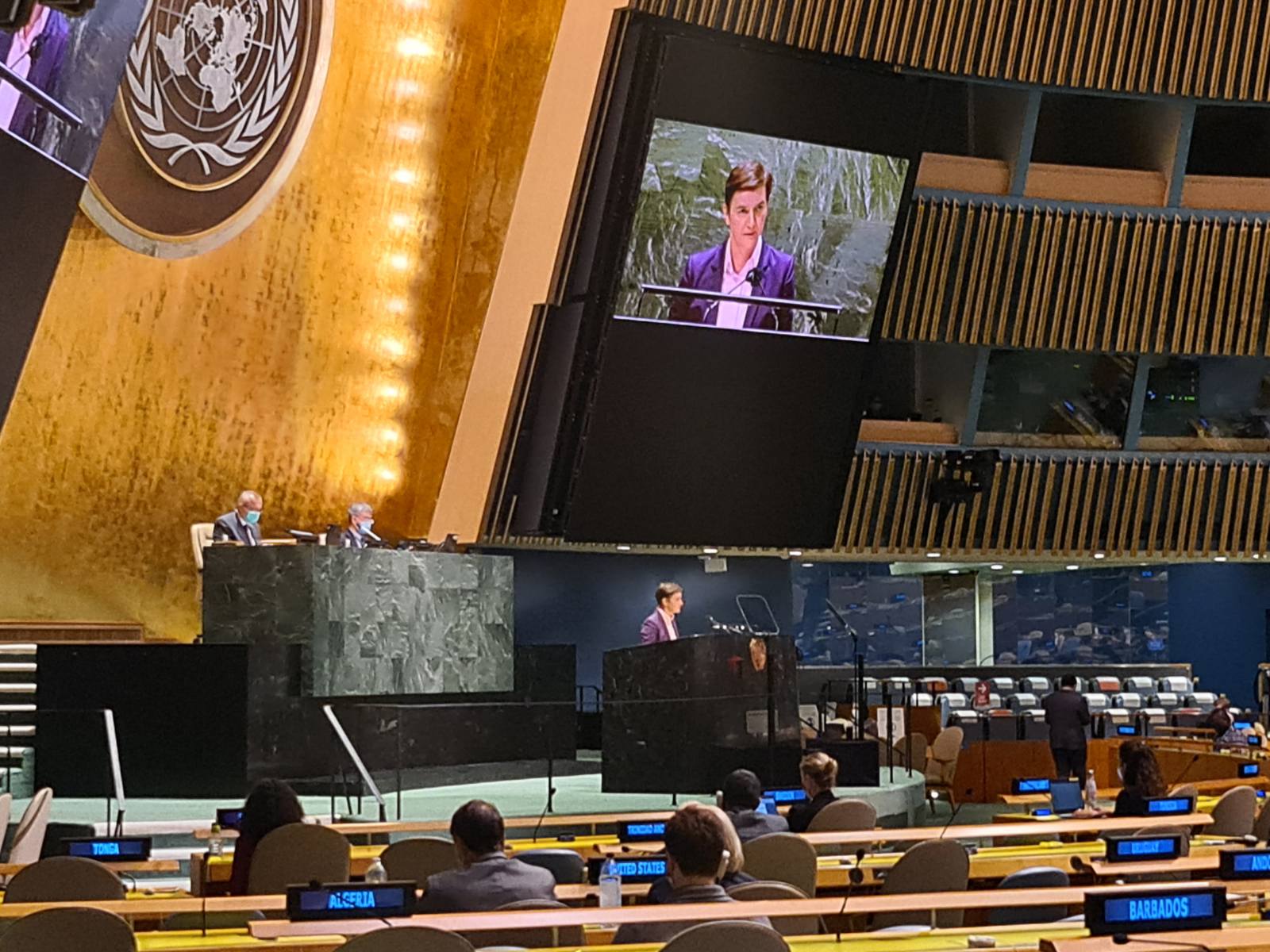
Prime Minister Ana Brnaic warned today that Pristina has seriously jeopardised local and regional stability after sending heavily armed special units to the north of kosovo who are exertin against the peaceful Serbian population.
Brnabic spoke at the general debate of world leaders, as part of the 76th session of the UN General Assembly in New York.
We bring the Prime Minister's speech in its entirety:
Mr. President,
Mr. Secretary General,
Excellencies,
Ladies and gentlemen,
I have th4e great honor to address you today on behalf of the citizens of the Republic of Serbia.
Esteemed Excellencies Mr. Abdulla Shahid, Mr. Volkan Bozkir and Mr. Antonio Guterres, I would like thank you for the active engagement, dedication, and leadership you have shown during these difficult times for the United Nations and all of humanity.
Serbia shares your conviction and we remain fully committed to supporting your efforts.
This year, we come together at a decisive moment in our history.
Covid-19 has shaken our foundations to the core.
At the same time, we are increasingly witnessing and experiencing effects of climate change.
And, finally, we are seeing significant shifts in global parnerships and alliances, trade wars between traditional partners and allies, protectionism instead of openness and free market, and overall uncertainty at an unrecedented scale.
Some of the pressing and extremely emotional issues that we have locally, in the Balkans, are still unresolved and while we are trying - and Serbia is especially dedicated to this - to change the future by working together and creating alliances, through initiatives such as the Berlin process or Open Balkan, others are trying to disrupt these processes, and instead of focusing on the future, they want to recreate the past - whatever the cost of that may be.
But, let me start with COVID:
COVID-19 pandemic has exposed critical weaknesses in the architecture of global governance,. It has threatened to erase the progress many nations have achieved in recent years.
It has placed nations at a junction between isolation and collaboration, between panic and hope, between chaos and order.
The pandemic questioned some of the basic tenets of the open and cooperative international order.
Global excanges, international communication, cross-border trade have all seen a vast decrease.
Curfews, restrictions on freedom and lockdowns of entire societies have ceated uncertainty in many segments of the individual lives of our citizens or - for that matter - our own individual perception of what freedom in today's world even means.
For Serbia, this pandemic threatened to undermine everything we have been doing for the past 7 years, to crush all of the results and accomplishments of difficult reforms we initiated in 2014, and to propel us back to the times of high unemployment, rising public debt, uncontrollable deficit, and overall desperation.
Much as in any other country, COVID-19 has tested our nations' resiliency and, this time, unlike during the global fnancial crisis - which was of much more limited scope and incomparrable in consequences to COVID-19 pandemic - Serbia stood strong.
The reforms we undertook in the pre-COVID times made us more resilient than ever.
The fiscal consolidation, the budget surplus we had, efficient and predictable investment environment, became a lifeline that save us from a recession durin the pandemic and one that ensured we could support our citizens and our economy during these, most difficult of times.
Despite the effects of the crisis, Serbia has managed to preserve financial and economic stability. In 2020, we recorded a decline inGDP of only 0,9% - one of the best results in Europe. Our public debt remained below 60% of our GDP, average salary continued to grow by almost 10%, while despite the pandemic the number of people employed increased by over 3%.
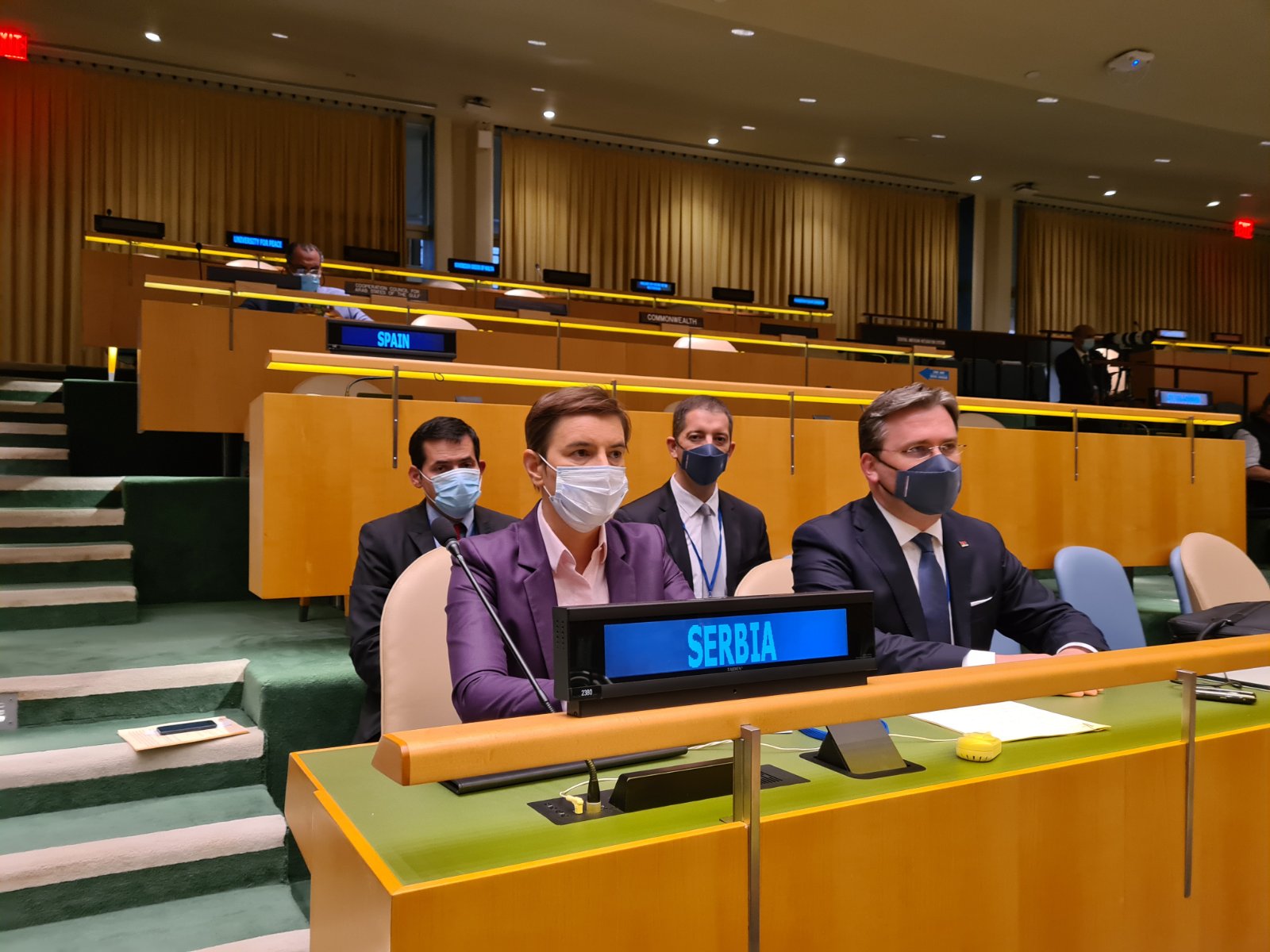
The recovery in this year has been stronger than expected - oru GDP will grow approximately 7%, and perhaps even stronger.
Prior to the pandemic, we have opened our borders to investment, technology, and ideas, and we managed to create peaceful and stable environment that allowed us to pursue rapid domestic transformation, with innovation and knowledge-based econom as the foundation.
The innovative advances we had made allowed us to diversify our capabilities when the virus hit - through e-Government, online education and digital textbooks, or central software system for a successful vaccination rollout.
We invested heavily in health infrastructure and strengthened the health system in order to respond to the current crisis, eternally grateful to the health care workers for their dedicated struggle.
Our decision to put geopolitics aside, and people at the center of oru policies, is the reason we were able to acquire vacines quicker than most other nations.
We did not discriminate between manufacurers, did not care whether vaccines are from the East or from the West, but chose to negotiate with all vaccine manufacturers deemed sfe by regulators. This openness gave us the ability to purchase vaccines from around the world, giving our citizens the unique freedom to choose which vaccine they prefer.
Excellencies,
Serbia believes in solidarity between nations, multilateralism and helping others when in need.
Since the beginning of this year, we have made it our mission to support our neighbors, and all those in need, with COVID-19 vaccines and we have also allowed foreign nationals to come to Serbia to receive the vaccine which will protect their lives.
In total, Serbia has donated or allocated over a million doses of vaccines - of which 230.000 doses to the region; 300.000 doses for foreign nationals which came to Serbia to get vaccinated; and additional 570.000 doses to countries of Africa and Asia.
We will keep doing so, to the greatest extent possible, and until COVID-19 is behind all of us.
That is why we have also tken steps to acquire the technology to produce at least two types of COVID-19 vaccines to help improve global access so we can all be safe and victorious.
However, as stated by dignitaries of some of the largest nations during this General Assembly, there are other presing issues that all of us need to keep addressing without any daly and in a bold manner - and that is climate change.
Serbia has redoubled its efforts to make our conutry safer and cleaner for its citizens, and by doing so, contribute t the fight against climate change and for environmental protection.
We are strongly committed to the implementation of the sustainable development goals and the Paris Agreement on Climate Change. We are committed to global efforts and will continue to work actively to meet our obligations under the UN Framework Convention on Climate Change.
We are about to submit our revised Nationally Determined Contributions to contreibute to this critical global effort. We have already announced our intention to reduce greenhouse gasses for at least 33,3% compared to 1990, and 13,2% compared to 22010, which we are currently incorporating into our energy and climate strategic documents.
We work strateglically on planning and investments in this sector. These investments are extremely expensive, requiring years and decades of commitment and a systemic approach - but we are clearly set on the path of this transformation.
Ladies and gentlemen,
Of all the challenges we face, the most worrisome for Serbia is the maintenance of peace and stability in the southern Serbian province of Kosovo and Metohija.
For more than two decades, we have been constantly drawing international attention to the problems that non-Albanian population is facing in Kosovo and Metohija. Physical safety, respect for and protection of human rights, especially of minority communities, are far from satisfactory.
We are now witnessing a constant increase in the number of attacks targeting Serbs, their property and religious heritage in Kosovo and Metohija.
To illustrate, there were 55 such incidents in 2014, 62 in 2016, 71 in 2020, and 100 since the beginning of this year. The total number of attacks in 2020 has already been surpassed by June of this year.
According to the UN, Kosovo and Metohija is stil the territory with the least number of returnees (internally displaced Serbs) of all post-conflict areas in the entire world!
I will give you just a few examples to depict how life of Serbs in Kosovo and Metoija looks like.
On the11th of May the hous of Radoje Pumpalović, 81-years old returnee to Kosovo in the village of Dubrava, in Istok municipality, was attacked. This was the 5th attack on him in the same year. Again...he is 81 years old.
Since June 2021, multiple attacks were carried out against Dragica Gašić, 59-years old woman, the first Serb returnee in Đakovica after 22 years since the end of the conflict. Attacks include stoning of her apartment, banning her from shopping for food in the local store and petitions by civil society organization demanding her eviction from the city.
On 2nd of July, in the village of Gobulji near Vučitrn, a group of ALbanians attacked 13-zear old Nikola Perić. The attack occurred when he was returning home from the school playground with three friends.
Attacks on Serbian medieval churches, monasteries and monuments in Kosovo and Metohija, make them some of the most endangered cultural heritage sites in Europe.
Monastery Visoki Dečani was recently listed, by Europa ostra, as one of the 7 Most Endangered Heritage Sites in Europe in 2021. The Advisory Panel of Europa Nostra noted tht Dečani is the only monument in Europe under robust military protection for a continuous period of 20 years, although it constitutes a monument of ultimate historical and cultural imporance for Europe and the world.
This spiral of violence occurring in Kosovo and Metohija culminated at the beginning of this week. On the pretext of enforcing new license plate rules, Piština dusoatched heavily armed special units to the north of the province. This is yet another brutal violation of the Brussels Agreement, and this irrational show of force has ignited a major crisis. It disrupted the supply of food and medication to Serb communities in the north of the province. LocalSerbs who peacefully gathered to protest this measure were met with tear gas and police brutality, hus seriously threatening local and regional stability.
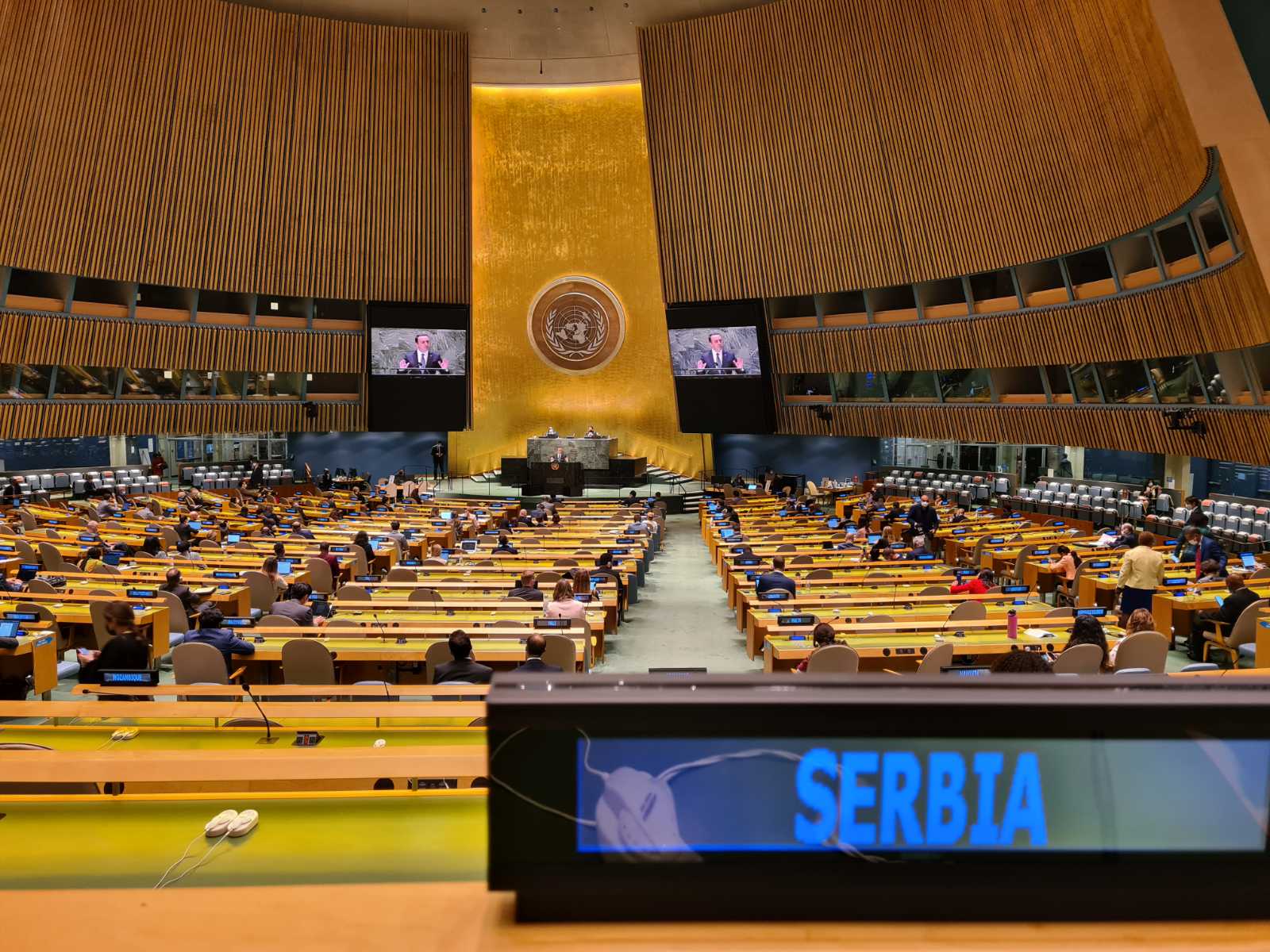
Despite of all the challenges and daily provocations, Serbia remains strongly committed to finding a ompromise-based solution that will ensure lasting peace and stability.
Dialogue and the implementation of the agreements reached - are the only proper way to resolve all open issues.
However, almost 9 years after reaching the Brussels Agreement, as the 1st agreement on normalization between Belgrade and Priština, the estabilishment of the Community of Serb Municipalities - the backbone of this agreement - has not yet even begun.
I would like to appeal, once again, to the international community, and especially the European Union, as the guarantor of the Brussesls Agreement, to firmly insist that the Provisional Institutions of Self-Govrnment in Priština start implementing all of the agreements reached.
The Republic of Serbia, by defending its sovereignty and territorial integrity, at the same time defends international law, the UN Charter, legally binding UN Security Council Resolution 1244, and the supreme authority of the Security Council when it comes to the preservation of international peace and security.
We attach special importance to the activity of the UN mission in Kosovo and Metohija and expect it to continue to implement its mandate in the Province in accordance with this resolution.
Dear friends,
Our generation shares the common destsiny of the modern world, which is becoming increasingly complex in terms of geopolitics, technology, health, climat. In the face of these challenges, Serbia will continue nurturing international ppartnerships, on a predictable and transparent bassis.
We will continue prusuing the rule of law reforms on our EU path, whic is our strategic foreign policy goal. We see this as inseparable peace, stability and prosprity.
We will host, together with the Eepublic of Azerbaijan as the current chair of the Non-Aligned Movement, a commemorative high-level event marking the 60th anniversary of the First Non-Aligned Movement Conference, whic was held in Belgrade in 1961. We are very much looking forward to hosting our friend from all parts of the world in Belgrade in October this year.
We will further enhance cooperation across the Balkans, through the Open Balkan initiative and Berlin process, by opening borders, harmonizing differences, and further integrating oru regon.
In concluson,
Over the past 7 years, Serbia has been transformed: we sparked an economic revival, created opportunities for young people, cultivated a tech boom, and improved Serbia's position abroad, The progress we have made has allowed Serbia to better face and survive the pandemic.
The world now faces a turning point. The recovery from COVID-19 and sustainable reconstruction will not proceeed if issues, new and old, are not handled by joint forces and collaborative intternational actions.
This pandemic taught us one important lesson; unless all of us are safe, no one is safe - so we can either win together, all of us - regardless of how rich or poor, large or small, from Europe, Asia, Africa, America or Australia, or fail together.
But, if anything, the COVID-19 pandemic, as well as the issue of climate change, should have taught us to stand together.
Thank you.
Source; www.srbija.gov.rs
|
|
|
| 22 September 2021 Prime Minister Brnabic at Global COVID-19 summit organised by White House |
|
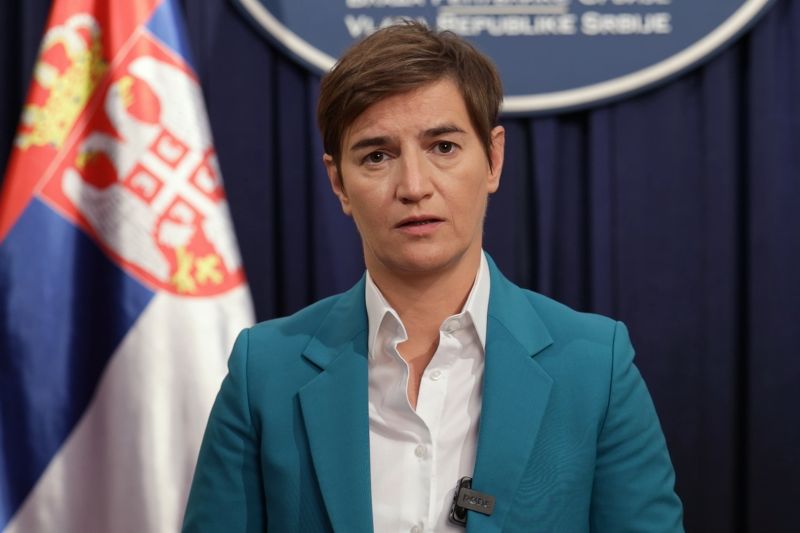
Prime Minister Ana Brnabic participated today at the Global COVID-19 summit, organised by the White House, which was opened by US President Joseph Biden.
The video messages are attended by a large number of world leaders and officials of international organizations,including UN Secretary General Antonio Guterres, European Commission President Ursula von der Leyen, British and Canadian Prime Ministers, Boris Johnson and Justin Trudeau, German Chancellor Angela Merkel and many others.
In the message, the Prime Minister pointed out that Serbia was among the first European countries to procure a covid vaccine, and that she was the first European Prime Minister to receive the vaccine.
Thanks to years of investment in digitalisation and development of eGovernment, we have managed to organise a complicated and complex vaccination process very efficiently and in a way that it is focused on citiyens, she explained.
However, as she added, from the very beginning we were aware that this is not just a matter of our citizens and only our struggle. In the fight against the COVID-19 pandemic, we are all safe or no one is safe.
That is why, in addition to procuring vaccines for our citizens, we donated vaccines to the citizens of the Western Balkans, but also to other countries, she reminded and specified that Serbia donated 230,000 doses of vaccines to the region, we vaccinated foreign citizens in Serbia with approximately 300,000 doses and set aside we have 570,000 doses of vaccines for countries in Africa and Asia.
Brnabic mentioned that Serbia has alredy started the production of covid vaccine from one maufacturer, and that it will start production from another by the end of the year, because in that way we want to help and support all people and countries that need vaccines.
This is a pandemic in which we will either win together or lose together, but we must fight together, the Prime Minister repeated.
That is why Serbia supports the goals of this global summit, she emphasised, and expressed her gratitude to the United tates of America and President Biden for organising the summit and supporting joint efforts in the fight aganinst the COVID-19 pandemic.
Vaccines are the only way out in the fight against the pandemic, concluded Brnabic. |
|
|
| 5 August 2021 Marking the Remembrance Day of all Serbs who died and were expelled in the armed operation "Storm" |
|
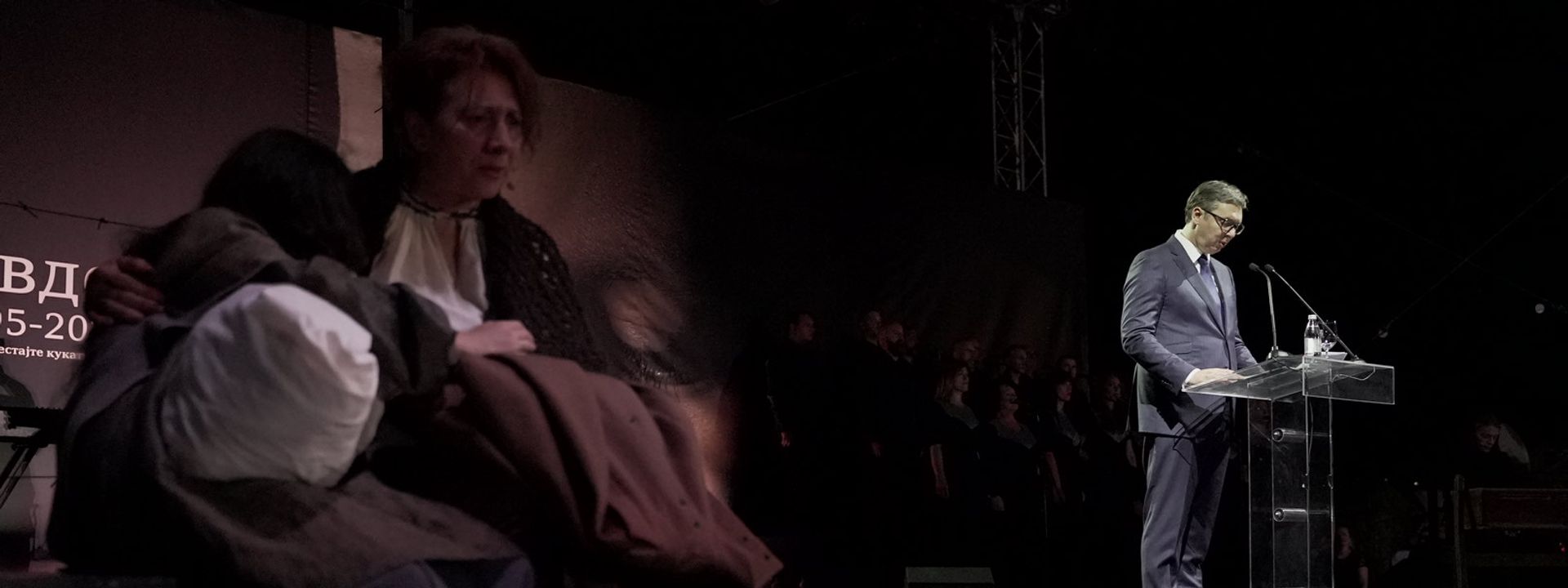
The President of the Republic of Serbia, Aleksanda Vučić, attended the marking of the Remembrance Day of all the victims and expelled Serbs in the armed operation "Storm" and said that Serbia remembers!
"Today, when we remind ourselves again of what happened in August 1995, the terrible pogrom, the expulsion of more than 250,000 Serbs, the exodus and ethnic cleansing, we, at the same time, and finally, remind ourselves of who we are, what we are, where we come from and where we are going. Think you all for being here together tonight and for showing how much we love our people", said President Vučić, adding that we will not forget any of the things that the Krajina people had to go through.
"For us, these are not just terrible numbers of victims", said President Vučić and emphasized that Serbia will not forget.
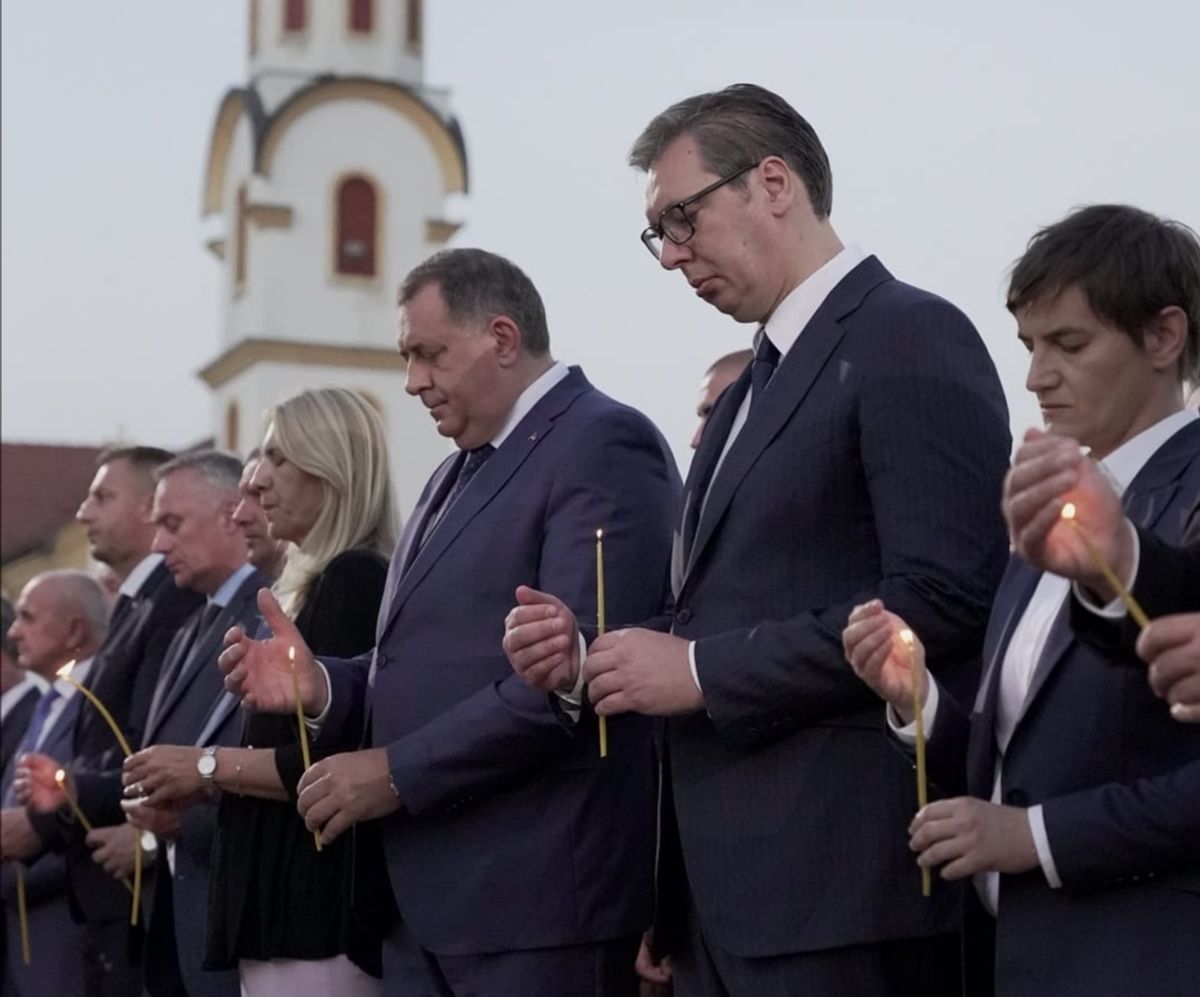
"History has never been rewritten like today. That is why I want to remind us all not only of what others have done to us, not wanting us to exist, but also of what we have done to ourselves, just as if we ourselves did not want to exist", said the President, noting that we must never again allow Serbia to forget its silent heroes.
President Vučić emphasized that we must never again cover our eyes, ears, and mouths in front of something that truly was a pogrom and the downfall of all humanity.
"Pretending that this is not true, avoiding saying it, is a crime not only against the victims, but also against ourselves, every living Serb, people from Krajina, as well as Serbia and its future", said President Vučić and underlined that peoople can stand up straight and live with themselves and the others without hesitation, fear and doubt, only if they remember.
President Vučić pointed out that Serbia must fight for peace and cradles with children, as well as that no remembering annuls and erases us from the history and the future, depriving us of the right to tomorrow.
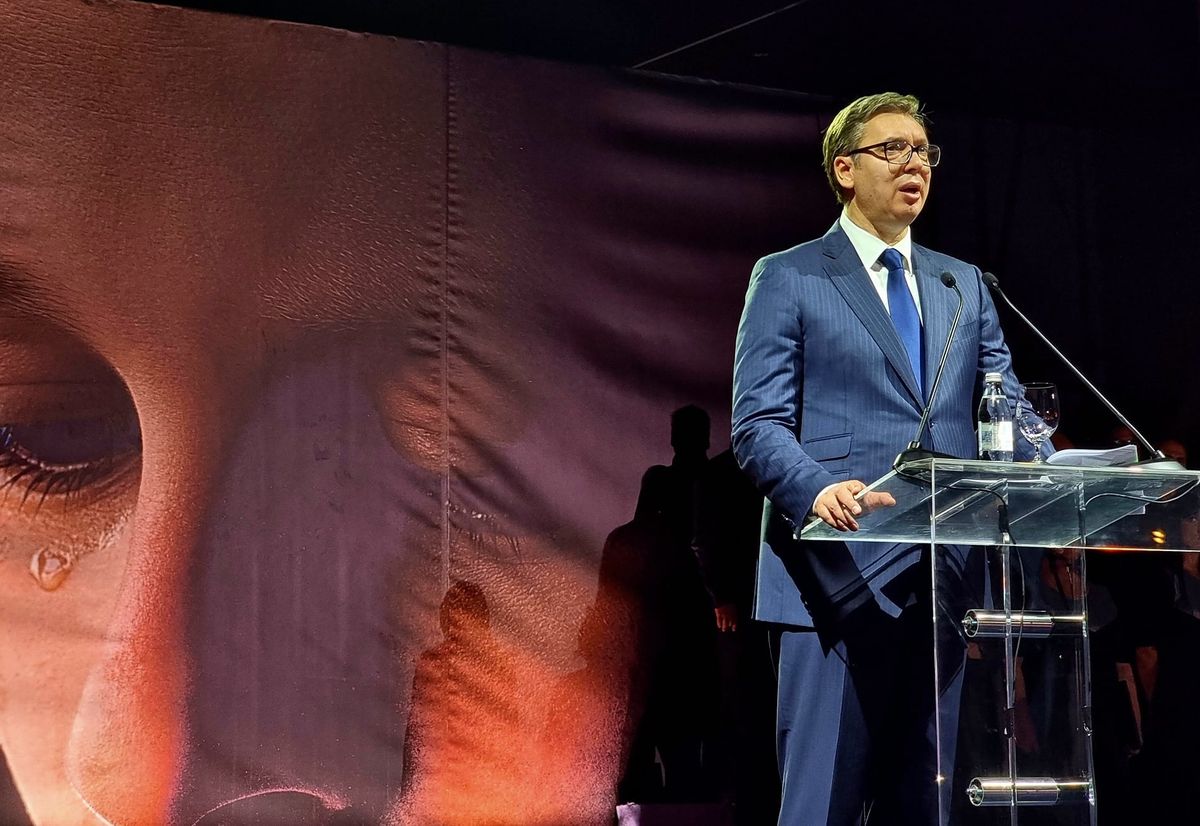
"Our mission is a happy future for us and for the new generations! Today's Serbia is based on a clear identity and a culture of remembrance", said Presiden Vučić and reminded that everything that had been neglected for decades had been done, and that a strong Serbia has become the master of its own destiny.
"Eternal glory to you, Serbian martyrs who perished in the "Storm" and all other pogroms. Your children are in their Serbia, taken care of, loved and successful. Sleep peacefully, Serbian falcons, the future of your children is our vow", concluded President Vučić and thanked everyone who showed that night how much they love their cuntry and that Serbia remembers.
Source: www.predsednik.rs
Photo: www.predsednik.rs |
|
|
| 22 July 2021 President Vučić: We have decided - our goal is the EU, but China is an important partner |
|
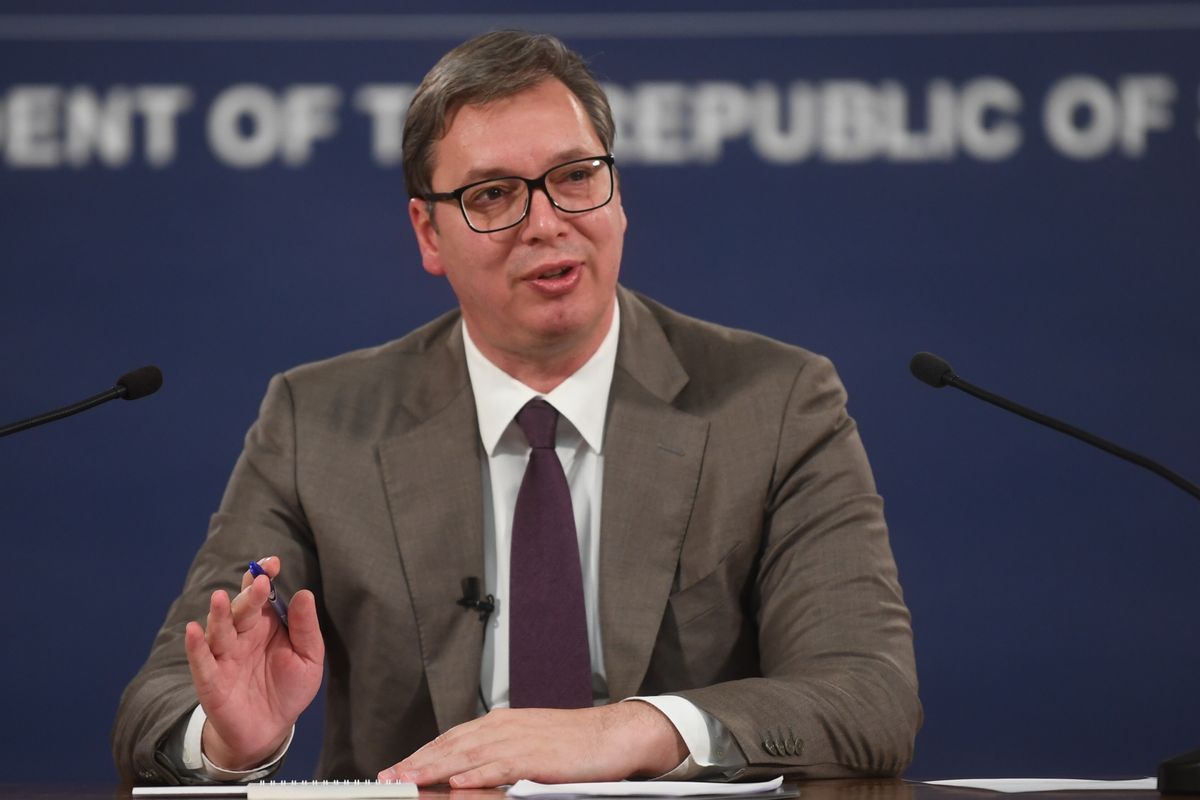
We have decided - our goal was and remains the EU, Serbian President Aleksandar Vucic said in an interview with the German daily "Handelsblatt", adding that there is no alternative for Serbia, but also stressing that China is an important partner for Serbia, and that the task of the state is to take care about the interests of its citizens.
He thus answered the question of what Serbia will choose once it has to choose between close relations with Beijing or the EU. Vucic emphaized that Serbia wants to become a full member of the EU.
"We are connected by history, common culture, EU members are already undoubtedly our most important partners", he explained and added that the trade exchange between Germany and China is 3,000 times higher than between Serbia and China, and, as he noted, even despite that, Serbia's business operations with China are portrayed as a problem.
To the statement that the German Chancellor Agela Merkel did not congratulate the 100th anniversary of the Communist Party of China, and that he did so, he replied that Serbia is not Germany, but a small country. On additional insistence on what Serbia will do if it has to choose between the EU and China, he underlined that Serbia has already decided, that its goal was and remains the EU membership.
"Our biggest investors are from the EU. The EU accounts for 67% of our trade while 17 percent of the trade is with countries of the region that are all on the way to the EU. We cannot survive without the EU", he added.
"But can we do a lot of good things with China - of course. And we do that, just like Germany does", Vucic pointed out, and to the remark that the quality of the Silk Road projects was being criticized, primarily because o Chines workers, he answered that the quality of roads or bridges, which Serbia is building with China, is excellent.
"We give jobs to those who submit the best offer o us. That is why I tell Europeans who criticize Chinese projects in our country - offer us a project or one euro more and you vill get it", he emphasized.
In that regard, he pointed out that Serbia is building a railway to Northern Macedonia with 600 million euros of EU aid, stating that taht offer was better than China's.
"There is often talk of a 180-kilometer railway to Budapest through the territory of Serbia, which is financed by China. But the railway that is being built with the help of the EU from Belgrade to the northern Macedonian border is twice as long and no one is talking about it. It is all too political", he stated.
Asked whether he welcomes the plans of the EU and the USA regarding an alternative initiative to the Silk Road, Vucic said that he supports everything that brings advantages to our region.
"The Chinese want to expand their presence everywhere, but many processes in the West are, frankly, more efficient and without problems. We still have a lot to learn from the West, but we are getting there ", Vucic said.
He pointed out that China was an important partner for Serbia and added that when the consolidation of state finances began in 2014, our country received god conditons from China for development projects.
He also stated that a competition for a copper mine was announced in eastern Serbia, at the request of the EU, that no European company had made an offer fo six months, and that it had then been taken over by the Chinese.
"Our job is to take care of our people", he said.
He reminded that the Serbian economy grew by 52% in eight and a galf years, which for the EU means that Serbia could be a strong member and engine for the entire region.
He reminded that previosly the public debt was at 78% of GDP, and that today it has been reduced, thanks to the strong growth of the economy, to 52%.
"We can afford to give investors an incentive to come". he added, emphasizing that Serbia offers investment assistance, but that, for example, subsidies were not the motive for the rrival of the development center of the company Continental.
He pointed out that, five or six years ago, only Serbia started using the dual education system in this region, which Germany, Switzezrland and Austria also use, that tens of thousands of people are in dual education, and that this is appreciated by foreign investors, who, in addition, can work closely with universities as well.
Germany, he stated, is the most important trade partner and the largest investor.
"We started with the arrival of small textile companies from Turkey, and now primarily large German companies are coming. Today, 71,000 people work in German companies in Serbia", he explained.
Vucic said that the European perspective is very important for investors, stating that Nidek, Toyo Tires or Mitsubishi are coming from Japan to Serbia because our country is on a stable European path.
Asked if he believes that Serbia will become an EU member in the foreseeable future, he said that he does not complain.
"It is certain that if we had received 45 billion euros of EU aid, we would have been much further economically. Instead, we received 1.6 billion euros from the EU. We are used to achieving our successes on our own", said Vucic.
The President of Serbia reminded that in Croatia, salaries used to be 2.2 time higher than in Serbia, and today they are only 1.7 times higher.
"We are closing the gap with our own efforts. If we were to become a member of the EU, then we would certainly not ask for the biggest subsidies", he assures.
He said that the Serbian path follws the German path to Europe, and that Serbia wants a fair chance.
"I believe Merkel's words. She is at the end of her term and I would not have to praise her anymore. But she gave us stability, freedom of travel to the EU, helped us wth the migrant crisis in 2015, and asked the Minister of Economy Altmeier and others to work closely with us", he reminded.
Asked if there were any indications tht the new German government would support Serbia in the same way, Vucic expressed confidence that it would be the same.
"I know Armin Laschet, I talked to him shile he was the Minister-President of North Rhine-Westphalia. Hi is very smart and understands the situation in the Balkans, and he will certainly continue Merkel's policy towards our region as the new chancellor", he added.
Vucic also expressed his belief that Russia, if Serbia's accession to the EU were concretized, would not react similarly as in the case of Ukraine, as this is a sovereign decision of Serbia.
To an additional question in this regard, Vucic pointed out that whenever he met with Vladimir Putin, and there were 18 or 19 meetings, he told him that he was grateful for the traditionaly close friendship with Russia, but also that Serbia is on a clear course towards the EU.
"He asked if it was oru choice and I answered that EU membership is indeed our goal", he added.
When it comes to "Kosovo", Vucic emphasized that a compromise is needed regarding this issue.
"Only in this way can there b sustainable peace. Serbia wants peace, me as well. Let's stop with the madness of the past. Only then can the whole region become the engine of new growth for Europe", said Vucic.
Source: Tanjug |
|
|
| 20 July 2021 Serbia has achieved great success in the field of digitalization |
|
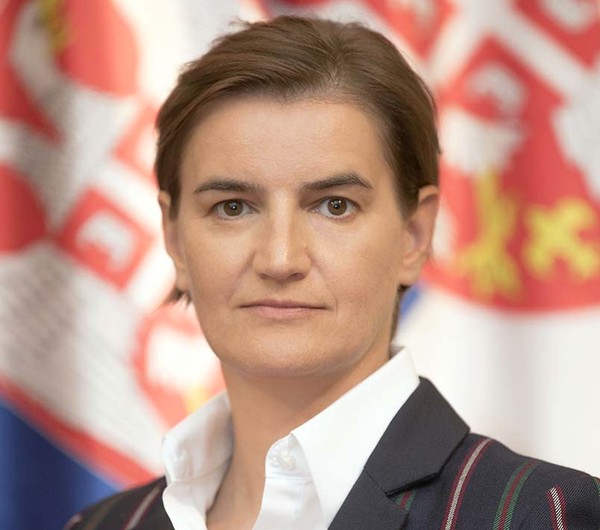
The Prime Minister of the Republic of Serbia, Ana Brnabic, stated at a gathering dedicated to digitalization and the IT sector, which was held in New York, that since she became Prime Minister, she is most proud of Serbia's success in the field of digitalization.
Brnabic, who is on two-day visit to the United States, said that when she was elected Minister of Public Administration and Local Self-Government in August 2016, she wanted to do everything to change the public administration and what bothered her as a citizen.
She stated that, when she took office as Prime Minister, she knew what her priorities were and that first of all, digitalization needed to be raised to a higher level, that the education reform was supposed to begin, as well as work on strengthening the economy.
I believed in a country that believes in its people, because the Serbian people are creative.From 1 June 2017, we started working as an e-Govenment, i.e. we started exchanging data electronically, said the Prime Minister.
According to her, our citizens no longer had to go to, say, the Tax Administration, and since then, the public administration has exchanged 50 million documents, which means that citizens did not have to go from office to office for 50 million papers.
Brnabic pointed out that she is proud of what has been done in the field of education since she became the head of the Government, specifying that in September 2017, programming was introduced as a compulsory subject in primary schools.
Nobody believed that we could do that, but we cooperated ith the private sector and some social rganizations and we succeeded. At the moment, we are far ahead of numerous countries in Europe and the world, said the Prime Minister.
The Prime Minister pointed out that she was most proud when the cornerstone was laid for the science and technology park in southern Serbia, niting that so far, our country has four science and technology parks.
She pointed out that Serbia has since become one of the most successful countries n the world in the field of technology, and that according to some parameters, it is among the ten countries in the world, or among the five, assessing that this is proof that the country can change quickly.
Answering the question about vaccination, the Prime Minister emphasized that our country has neer seen it as a geopolitical issue, but as a health issue.
Accordint to her, Serbia talked with producers from both the East and West and was amog the first European countries to sign agreements with the company Pfizzer-BioNTech and Sinopharm.
Unfortunately, many countries have viewed this issue as geopolitical. It did not matter to us, as long as the vaccines were safe, the Prime Minister emphasized and added that this was not the end of Serbia's success, because good organization was also needed.
Brnabic explained that the organization is another important thing in vaccination, because it is a logistically very difficult process, adding that, with the help of digitalization, success has been achieved and that everything we did in the previous years has paid off.
She stated that Serbia quickly estabilished a system through which citizens could express interest in vaccination against the coronavirus and choos which vaccine they wanted to receive, as well as to bi informed by a message when to go and get vaccinated.
Now I can log in on my phone, to see how many people have received the vaccine, how many more have registered, so that the efrects of digitalization are obvious. Ee have made everything very efficient and easy for our citizens, the Prime Minister explained.
Answering the question of what she can tell other countries of the world about how to progress faster, Brnabic said that it is important to invest as much as possible in digitalization and education.
You need to teach children how to think, not what to think. Not all children will become IT experts, but what they can learn is an algorithmic way of thinking and how to make decisions, she said.
The Prime Minister mentioned investing in high-speed internet and providing infrastructure for start-ups as an important thing for progress, because more and more economies will be based on start-ups and innovations, emphasizing that people should be helped to start companies and implement their ideas.
Speaking about social networks, she pointed out that fake news has become the biggest problem on these networks and that it will remain so for some time.
This is the biggest challenge I face as Prime Minister, especially during the corona virus pandemic, she said, adding that social networks are also a great opportunity for politicians to communicate with citizens.
Source: www.srbija.gov.rs
Photo: www.srbija.gov.rs |
|
|
| 29th June 2021 President Vučić participates in the Mini Schengen conference |
|

President of the Republic of Serbia Aleksandar Vučić participated today via a video link in the conference "Mini Schengen" with the Prime Minister of the Republic of Albania, Edi Rama, and the Prime Minister of the Republic of North Macedonia, Zoran Zaev. The officials discussed further steps in regional cooperation, as a process vital to the progress of the Western Balkans and the European path as a whole.
The interlocutors agreed that the countries of the Western Balkans need membership in the European Union, but also that the European Union needs the Western Balkans just as much since the region is surrounded by EU borders and the countries aspiring to membership share common European values.
The President of Serbia and the Prime Ministers of Albania and North Macedonia have expressed the wish that the four European freedoms - the movement of people, goods, services and capital, begin to be implemented as soon as possible throughout the region, and that in this context they will provide full support to the regional common market at the Berlin Process Summit to be held on the 5th July.
"We are aware that only by working together and accepting regional cooperation within various regional initiatives such asthe common market, regional Schengen, green corridors or the Berlin Process, can we bring our economies closer, increase the well-being of our people and bring in large investments that would otherwise not be possible for any of us individually", is one of the joint conclusions of this video conference.
The interlocutors agreed to meet in Skopje on July 29th to review the progress in the implementation of existing initiatives and projects and to sign additional agreements between the thre countries related to the implementation of the Berlin Process commitments, as well as cooperation and assistance in the event of natural disasters and relief measures for trade, export and import.
"We call on and encourage our colleagues from the region to sign and implement similar agreements, so that the vision of a common political and economic space across the Western Balkans would soon, through the single market, become and important part of our citizens' daily lives", said the Serbian President and Prime Ministers of Albania and North Macedonia.
The interlocutors pointed out that despite the delays in the enlargement process, they will continue to try to identify new ways, policy areas and financial instruments for all three countries to increase their contribution to Europe, strengthen ties with the European Union and gradually integrate the region into the single European market.
Speaking on the Green Agenda, the interlocutors issued a joint call to the European Union and the United States to join countries across the region to support the development of projects that could be invested as soon as possible to improve environmental protection and increase the widespread use of renewables as part of the EU Economic and Investment Plan implementation and the Green Agenda for the Western Balkans.
"Our countries have a huge potential for sustainable growth and development of this sector. We will ask for practical support to find out which projects can improve our region in terms of renewable energy sources for our citizens and for the green energy future of the EU", said the interlocutors during the "Mini Schengen" video conference and concluded that only regional connecting, with the EU support, can contribute to the overall stability and progress of the entire region and Europe.
Source: www.predsednik.rs
Photo: www.predsednik.rs |
|
|
| 5 Julz 2021 Serbia strongly supports Berlin Process |
|
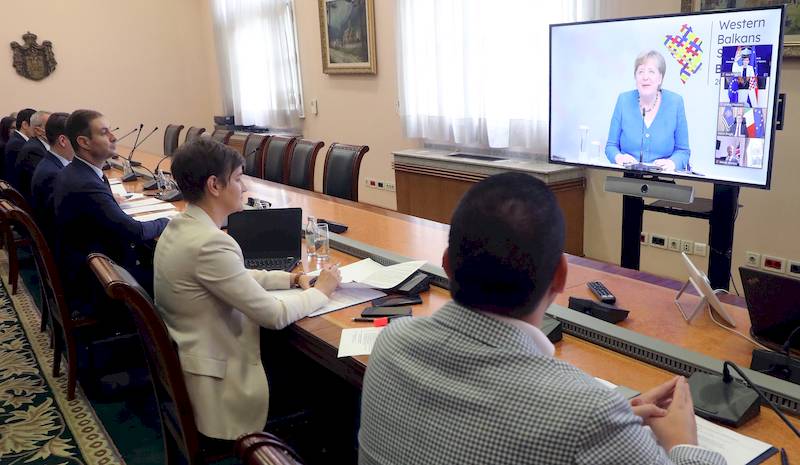
Prime Minister Ana Brnabic participated today in the online Summit of Leaders of the Berlin Process, which discussed the concrete results achieved during its seven-year term, plans for the next period and initiatives aimed at providing support Western Balkans on its way to the European Union.
The focus of the summit was on building a common regional market related to four fundamental freedoms: free movement of people, goods, services and capital, for which the Action Plan was adopted in November last year, and from which the region would have special benefits.
The summit said that the transport and energy infrastructure has been expanded in recent years and connected to the roads of the European Union, and praised the implementation of the agreement on the abolition of roaming fees in the Western Balkans, which began this month.
An important project of the process is the Regional Office for Youth Cooperation (RYCO) in order to connect and build understanding and tolerance i the region.
The activities of the Regional Cooperation Council (RCC) and the Secretariat of the Central European Free Trade Agreement (CEFTA) were also praised for their efforts to implement the Common Regional Market Action Plan.
Assessing that the Berlin Process is firmly based on the fundamental belief that the economy of the Western Balkans is part of Europe, German Chancellor Angela Merkel pointed out that it greatly contributes to stability and connecting the Western Balkans redion, which is also in the interest of the European Union.
In her address today, Prime Minister Ana Brnabic thanked Geman Chancellor Angela Merkel for her strong support and active approach to regional cooperation.
Thanks to the support of Germany and Chancellor Merkel, but also to the internal initiatives of the representatives of Serbia, Albania and North Macedonia, the Prime Minister explained, the implementation of the Action Plan will enable further expansion of economic and trade cooperation in the region, which will make it more attractive for foreign investors.
Brnabic pointed out that Serbia strongly supports the Berlin Process, not only for the purpose of economic development of the region, but also as an idea of connecting and unifying the Western Balkans and its approach to the European Union.
She concluded that support in the region was particulary visible through solidarity with neighbours during the pandemic and assistance with vaccines and medical equipment.
The summit, opened by German Chancellor Angela Merkel, was attended not only by representatives of the region, but also by Slovene Prime Minister Janez Jansa, European Commission President Ursula von der Layen, Austrian Chancellor Sebastian Kurz, French President Emanuel Macron, Italian Prime Minister Mario Draghi and Polish Prime Minister Mateusz Jakub Moravjecki and Secretary General of the Regional Cooperation Council (RCC) Majlinda Bergu.
Source: www.srbija.gov.rs
Photo: www.srbija.gov.rs |
|
|
| 28 June 2021 Selakovic: Strong support of the V4 to the European perspective of the Western Balkans |
|
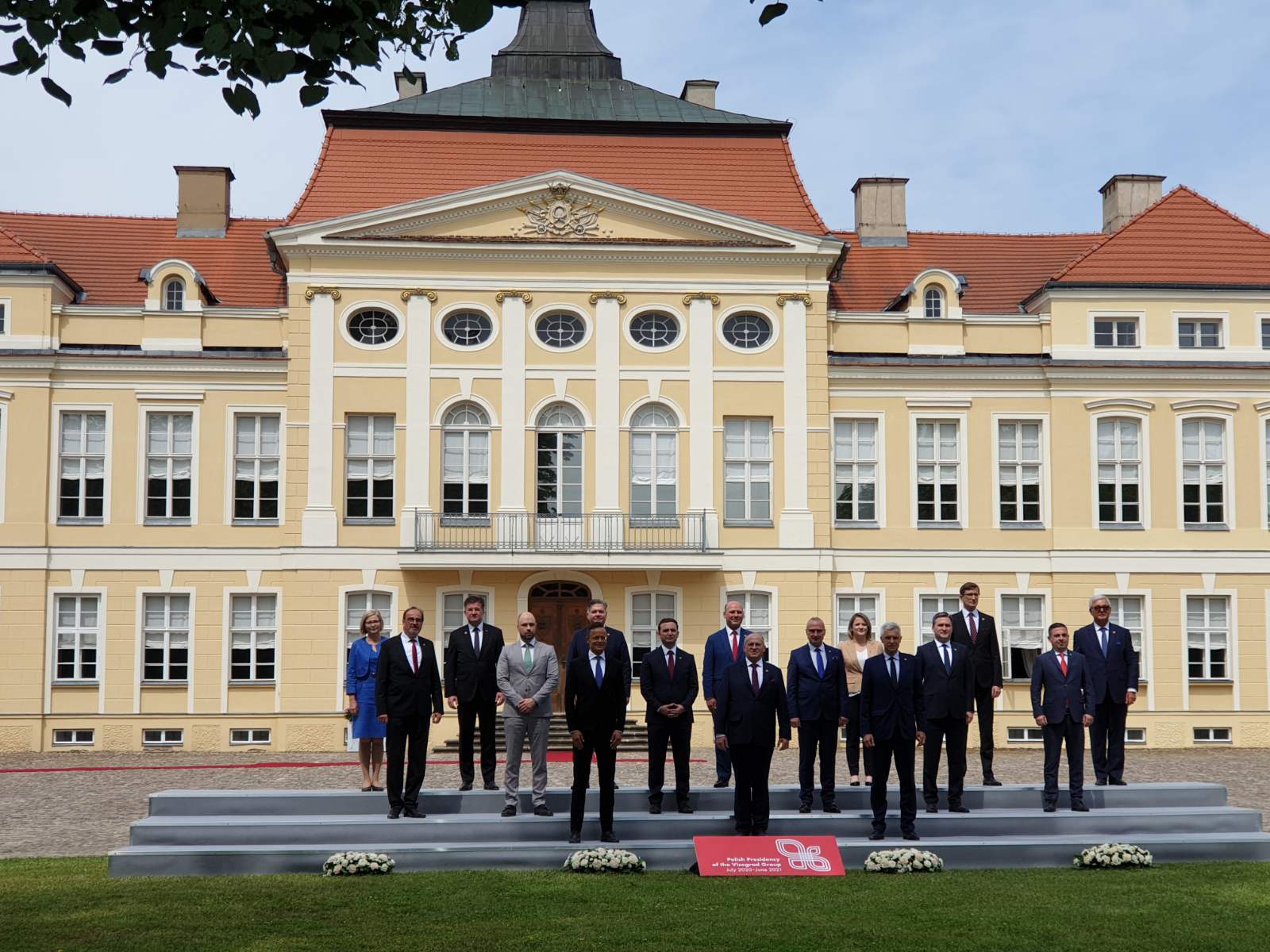
Minister of Foreign Affairs of the Republic of Serbia Nikola Selakovic participated today in Poznan in the meeting of Foreign Ministers of the Visegrad Group (V4) and the Western Balkans.
Selakovic stated that today's meeting was an opportunity to reaffirm the V4's strong support to the European perspective of the Western Balkans, point out the need to continue reforms of our societies with full understanding of the obstacles that are ahead of us, but were not faced by the V4 member states when they were joining the EU.
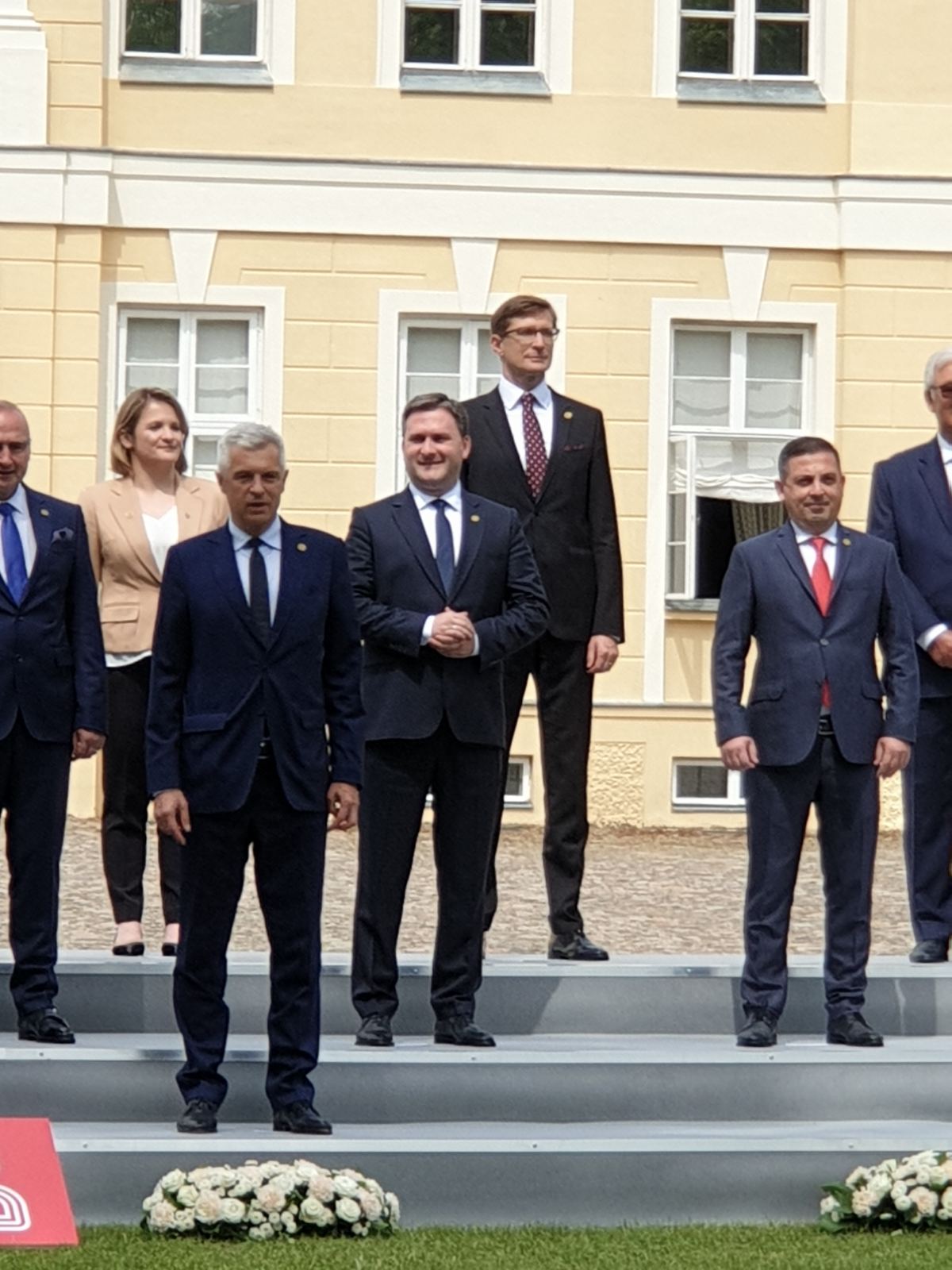
The Head of Serbian diplomacy pointed out that Hungary, Slovakia, the Czech Republic and Poland, when they negotiated on EU membership, knew for certain that they would be given an EU accession dte once reforms were implemented and obligations met, and that this was something that the Western Balkans did not have today.
"This was another opportunity to appeal to colleagues to make their support for us even stronger, in order to avoid what seemed to us to be the case in the Western Balkans, and that is that bilateral issues are being raised and used as a kind of obstacle to the continuation along the European path, as well as to show unity in some things", the Minister explained.
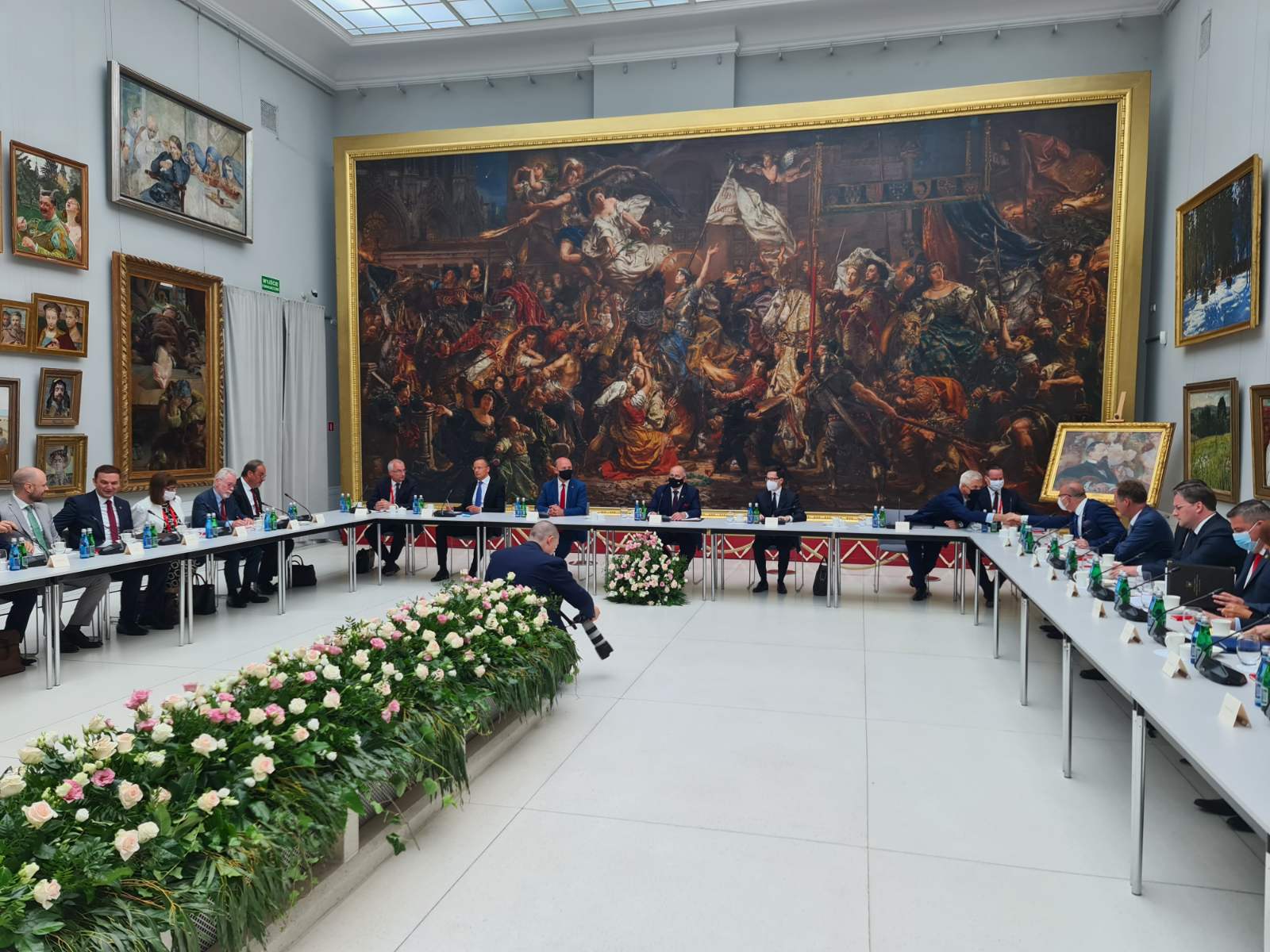
The Minister emphasized that the importance of regional connectivity, primarily in the economy, was discussed at today's meeting, and underlined in particular that Serbia, through the policy pursued by President Vucic and the "mini-Shengen" initiative, showed at every step that the fate of the entire region was as important as the fate of Serbia itself.
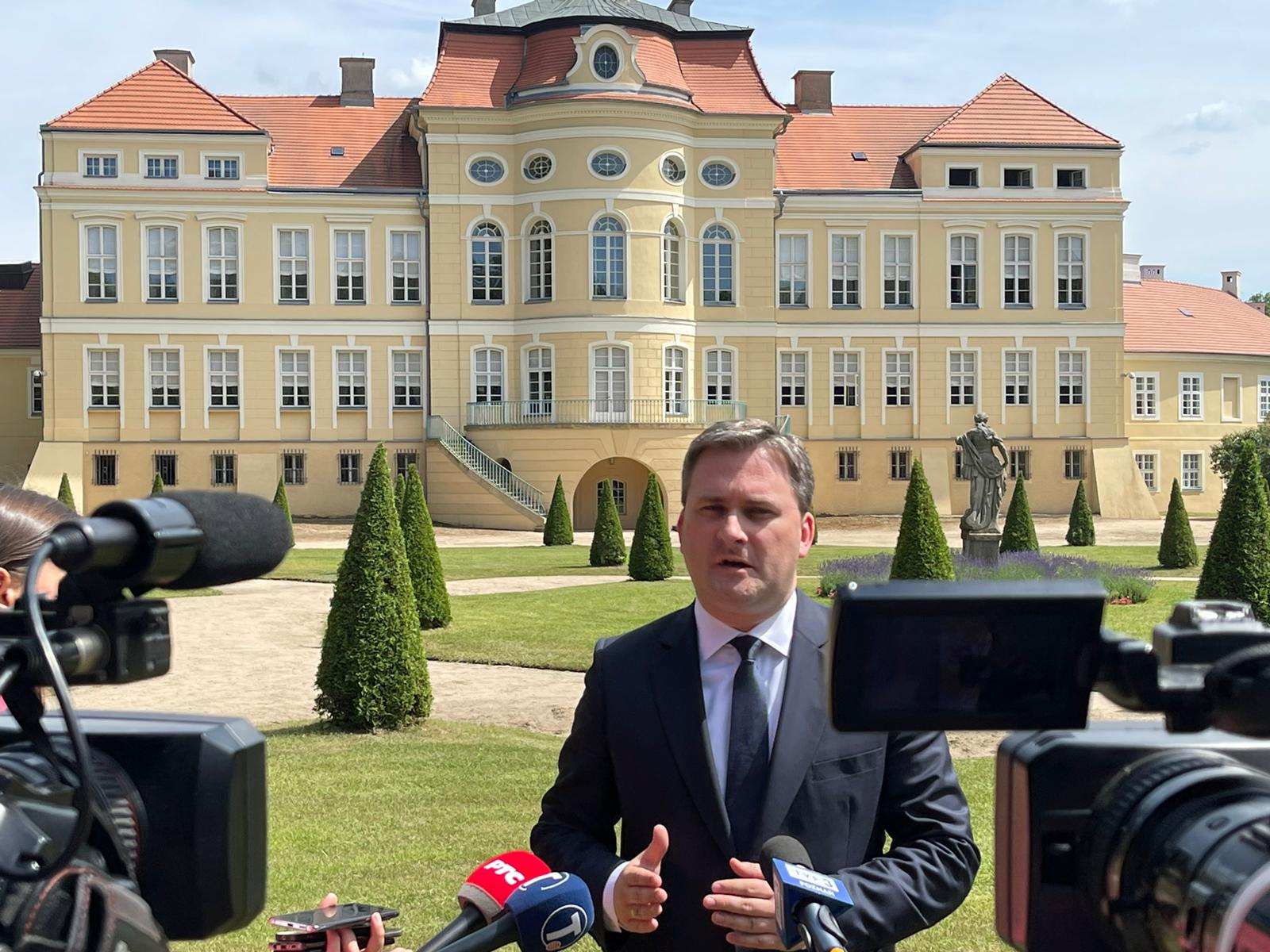
"It is important for us that European integration provides the preservation of peace and stability in the region. Peace and stability in the Western Balkan region are essential to us. Serbia bah contributed to the preservation of peace and stability at every step and will continue to do so in the future", Selakovic said, expressing confidencethat Brussesls would appropriately evaluate everything we did one the European path. |
|
|
| 20 May 2021 Minister Selakovic presented the new e-Consulate service |
|
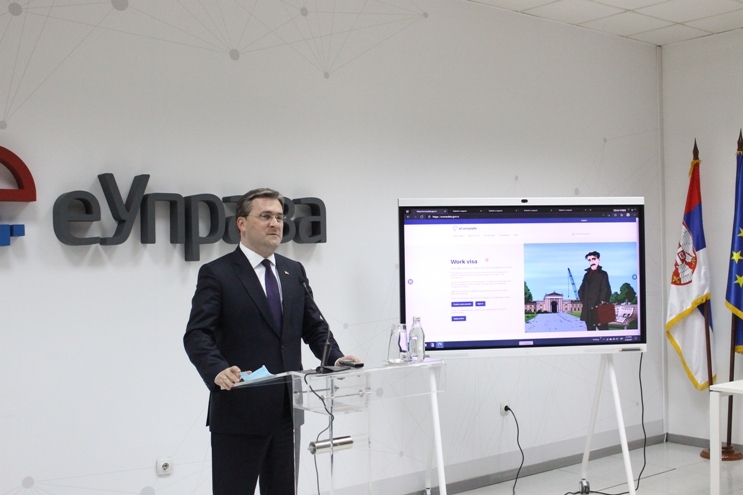
A new service of the Ministry of Foreign Affairs "e-Consulate" was presented in Belgrade today, intendend for foreign citizens who apply for a visa and aspire to come to Serbia to work.
On that occasion, Minister of Foreign Affairs of the Republic of Serbia Nikola Selakovic said that this service was one of the indicators of good development of our country, which, ,as he pointed out, was becoming a magnet for serious foreign companies, which brought a large number of workers from other countries to work in Serbia.
"Not to be pretentious, but completely realistic, this service represents a turning point in the functioning of our system. E-Consulate and digitalization of the procedure for issuing work visas for foreign citizens who want to work in Serbia, is the first electronic service offered by the Foreign Ministry, and I can promise you that this is indeed our first, but by no means the last e-sevice", Selakovic emphasized.
The Head of Serbian diplomacy pointed out that "e-Consulate" reflected the modernization of an extremely important segment of the activities of diplomatic and consular missions of Serbia, and that we were actually talking about something that was essential for the further development processes of our country.
The Minister recalled that, when the President of the Republic visited the construction site of the Moravian Corridor, he was told that some construction works were delayed because Bechtel company was not issued work visas on time.
"The moment we saw that and heard the President, I alerted the services in the Ministry. We were suprised, as we knew that the issuance of visas in Turkey had a good dynamic, and then we determined that it was actually workers from Bangladesh who applied for a visa through our Embassy in India, where we have a problem with staff shortage", the Minister explained.
As he added, this is a demanding and laborious task, each of our employees had to receive the documentation on paper, check it, then request additional information, and only then forward it.
"Today, this has been fantastically perfected for our consular officers, all that documentation is submitted in electronic form. We used to have two filters to check the documentation, now we actually have threee. And the work is significantly more efficient", Selakovic pointed out.
As he emphasized, this is a service which was promised less than four months ago and it becomes aviailable on Monday, in 95 diplomatic and consular missions of Serbia, i.e. in all our embassies and consulates general.
The biggest result of that endeavor, the Minister pointed out, apart from the advantage it would bring in the future work, was the fact that it was not a project of one state body, but a joint endeavor of the Ministry of Foreign Affairs, IT and eGovernment Office, General Secretariat of the Government, Ministry of the Interior, Ministry of Labor, Employment, Veterans and Social Affairs, Natinal Employment Service.
"We did an extgremely good job in record time. This is to the pride our Ministry, to the pride of the entire state. I am convincend that in the period ahead, we will further modernize our affairs and make Serbia one of the few countries that has such mechanisms and such state-of-the-art provision of consular services", Selakovic said.
Speaking about the"e-Consulate" portal itself, the Minister explained that there is a cartoon of Nikola Tesla and the building of the old railway station with one crane, which actually symbolizes a historical fact - that Tesla was in Belgrade in the year when it was built.
"Today it is the place behind which the Belgrade of the future is rising, and what we managed to do together is an indicator of something that is the future of Serbia, the development of artificial intelligence, IT and creating conditions for more people to live and arrive here in Serbia in the future seeking good life and employment", concluded the Minister.
The Director of the Office for IT and eGovernment, Mihailo Jovanovic, said that this was the first time that e-service were focused on foreign citizens, which was the case with our citizens so far.
In the period from 1 January 2019 to 17 May this year, the most applications for Serbian visas were submitted at the Embassy in Beijing, 6,766 applications, then in New Delhi - 2,973, Shanghai 2,115, Tokyo 1,798, and Cairo 1,756.
In that period, 1,270 requests were submitted in Algiers, 1,095 in Jakarta, and 1,077 in Beirut.
In terms of their nationality, Serbian D visa for employment is most requested by citizens of China - 9,516 applications, followed by India 1,955, and Ukraine - 673. |
|
|
| 8 May 2021 Vucic: We consider Europe our home |
|
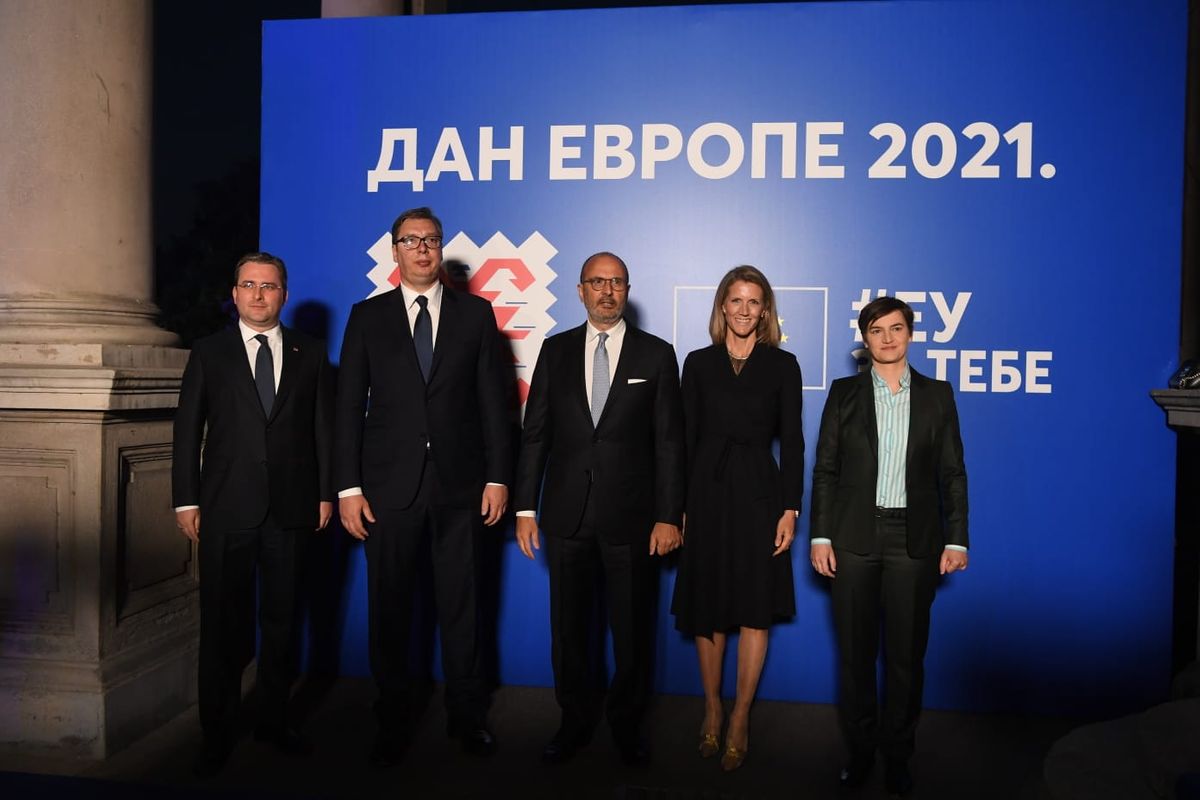
President Vucic said tonight that the visionary idea of Robert Schuman brought a true victory of the new trust after the Second World War and faith in the unification of differences in peace and solidarity, with the message that Serbia has that faith, as well as hope that it will become a country that will be gladly regarded in the European family of nations.
Congratulating everyone in Serbia and the EU on Europe Day, Vucic reminded that 9 May was also the day when the great victory of freedom is celebrated, which was won with huge sacrifices.
"While the horror of war were still fresh in memory and Europe was healing the wounds of World War II, it also had peple like Robert Schuman who understood that future can only be created based on the reconciliation of nations and their unity", Vucic said at the reception on the occasion of Europe Day.
He pointed out that the European peoples dared to see the recent adversaries as future allies.
"Schuman's visionary idea that peace will be preserved, if the creative forces are commensurate with the dangers that threaten, that Europe will emerge from specific achievements, has brought a tru victory of newly found trust and faith in uniting differences in peace and solidarity", Vucic said.
He said tghat Serbia, although it did not always look like that, had that faith, as well as the hope that our concrete achievements, on the long and not easy parth to EU membership, would be adequately valued.
"And that with your help, support and criticism, Serbia will become a country that you will be happy to see in the European community of nations. I believe that with our support, help and criticism, we would also contribute to the EU becoming an even better place to live", Vucic said.
Full membership of the EU, with a compromise solution to the issue of Kosovo and Metohija, is a way to achieve the goal and make Serbia orderly and successful, which would mean that we are on a good, European parth, the President of Serbia said.
Vucic said that we still had to make a lot of efforts in reforms, not because someone is asking us to do that, but because we know that it brings us and the country a benefit.
He also pointed out that the reforms in the rule of law were exceptionally important, which were now being approached with much more responsibility.
"In our country, there is a race in who will say that they are more in favour of Europe, while saying under the table that they are the least for Europe. Europe does not belong only to those who would like to use European money, it does not belong to those in the government who say that they are on the European path because they believe that they are in that way preventing the opposition from coming to power, not to those who think this is the only way to get hold of power. It belongs to all of us, but we cannot take from Europe only what we like without acceptingwhat we do not like", he explained.
I know, he added, how difficult it is to us in Serbia to hear criticism concerning Kosovo as well as in the field of th rule of law.
"I saw for myself that we are the ones who did not pay enough attention and apply a dedicated approach to the burning problems in that area. I believe that with greater zeal we will be able to change the attitude of the citizens of Serbia and gain greater respect from the EU for what we are doing", he pointed out.
President Vucic also pointed out that the EU was undoubtedly the largest donor, investor, and by far the most important trade partner of Serbia, and recalled that about two-thirds of all trade and even more service activities were EU related and that these were facts, whether someone liked it or not.
He pointed out that seven years ago when he became the Prime Minister, three times fewer people were employed in cmpanies that came from EU countries than today.
"Despite all the problems, it shows how much we managed to do together and make good results, to provide people with life, security at work, to show that we can take care of them more", Vucic said, noting the great EU assistance in the field of education.
He said that during the recent visit to the EU, which he assessed as the best one so far, Serbia received additional support for infrastructure projects, primarily for modernization, i.e. essentially the construction of a new Belgrade-Nis-Presevo railway.
He said that this was confirmed in the letter of the President of the European Commission, Ursula von der Leyen, pointing out that this was the best letter he had ever received from Brussels.
"I am grateful to Von der Leyen for pointing out that this is a game-changer in our relations. It is a turning point because that support exceeds everything we have done together when you look at the scale, strength and significance of that project", he said.
He said that Serbia and its citizens considere Europe as their home and that is why we wanted to give our best contribution to peace through regional connectivity, the Berlin Conference and mini-Schengen.
"Encouraged by the message of European officials, I hope that I will be able to host them sooon so that we can discuss the further acceleration of our European path", Vucic concluded.
Head of the Delegation of the European Union to Serbia Sem Fabrizi hosted a reception tonight on the occasion of marking 9 May, Europe Day. In addition to Serbian President Aleksandar Vucic, the reception in the Belgrade City Assembly was attended by Serbian Parlament Speaker Ivica Dacic, Serbian Prime Minister Ana Brnabic, Foreign Minister Nikola Selakovic, European Integration Minister Jadranka Joksimovic, representative of the diplomatic corps and public figures.
Europe Day was estabished in memory of the beginning of the creation of the European Union (EU) and the Day of Victory over Fascism in the Second World War. The reception is held in memory of 9 May 1950, when the Schuman Declaration was wigned, which laid the foundations of the European Union, a project that brought the longest period without war on the Old Continent.
Source: Tanjug
Photo: Tanjug |
|
|
| 8 May 2021 Selakovic congratulates Josep Borrell on Europe Day |
|
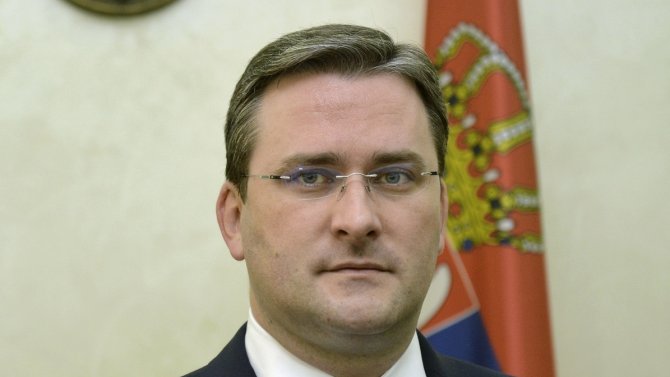
Minister of foreign Affairs of the Republic of Serbia Nikola Selakovic extended a congratulatory message on the occasion of 9 May, Europe Day, to High Representative of the EU for Foreign Affairs and Security Policy Josep Borrell, expressing confidence that the idea of uniting in diversity, in peace and solidarity, would continue to be the guiding idea of the European Union.
"I am deeply convinced that the Republic of Serbia, through a policy of peace and good-neighborly cooperation, can contribute to the European Union becoming an even better place to live, with the sincere belief that our achieveements on the path to membership in the European family of nations will be adequately valued", reads the congatulatory message by Minister Selakovic, adding that the European perspective gave a strong impetus for our country to comprehensively implement political, economic and social feforms with the aim of becoming a full member of the European Union in the foreseeable future.
The Serbian Foreign Minister underlined that Serbia historically, culturally and in terms of values, belonged to the circle of countries united under the flag of the European Union and expressed hope that not only our country, but also our neighbours in the Western Balkans, would have the opportunity in the near future to become a part of what is without a doubt the most successful peace, democratic and economic project in the history of our common continent.
Selakovic also took the opportunity to extend gratitude on behalf of Serbia to the European Union for its assistance in the fight against the infectious Covid-19, emphasizing that our country highly appreciated the expressed solidarity and support in the difficult times of the pandemic outbreak and expressing confidence that the period ahead would see us contribute by joint forces to identifying solutions for overcoming the economic consequences of the corona virus pandemic. |
|
|
| 21st April 2021 President Vučić met via video link with representatives of the IMF delegation |
|
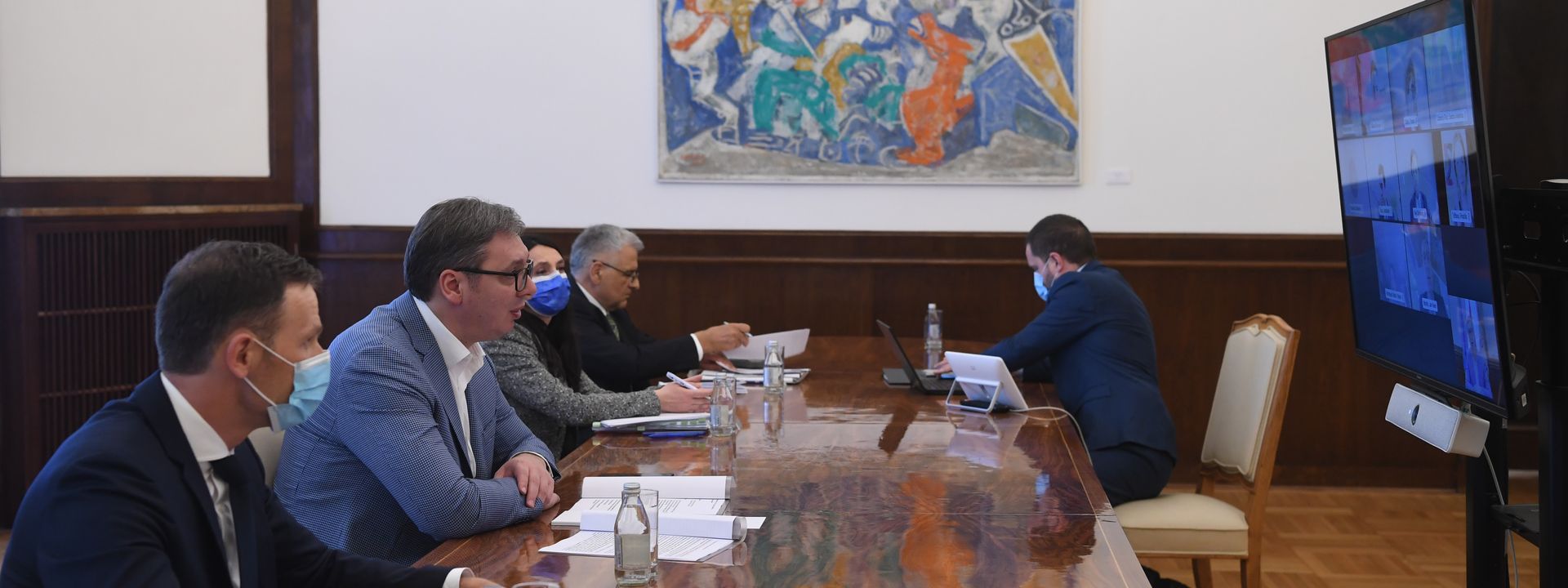
President of the Republic of Serbia Aleksandar Vučić talked today via a video link with the representatives of the delegation of the International Monetary Fund led by the Head of the Mission, Jan Kees Martijn. The interlocutos concluded that Serbia's main goal remains to preserve the hard-earned reputation of a fiscally secure country, as well as to continue with a responsible fiscal policy so that public debt does not exceed 60 per cent of GDP, whereby Serbia continues to work on further economic growth.
During the conversation, President Vučić and Jan Kees Martijn especially referred to the incentive measures and adopted three packages of measure to help the economy and citizens, which preserved macroeconomic stability and even achieved a higher employment rate. Martijn commended the responsible economic policy of Serbia and the successful crisis management during the pandemic.
"Serbia achieved one of the best results last year despite the challenges of the pandemic", Martijn said, noting that Serbia was one of the few countries to which the IMF did not adjust the initial projection of the 5% growth rate it gave last year.
President Vučić added that following the first quarter of 2021, Serbia is well on its way to achieving the planned growth of 6% as planned, since one of the main focuses ofthe Government is investing in large infrastructure projects and intensifying work on attracting foreign direct investments.
"In 2020, Serbia was at the very top in terms of economic growth in Europe, and I am convinced that this year we can enter the first three of four countries in terms of growth", said President Vučić, adding that he was satisfied that Serbia still, despite the pandemic situation, has an extremely strong inflow of investment.
President Vučić and Jan Kees Martijn also discussed a new advisory arrangement, which is of special importance in light of the improvement of the general investment climate in Serbia, as well as in the context of even greater investor assurance.
"Given Serbia's tremendous progress over the past eight years, the priority goal of this arrangement will be to preserve the results achieved, but also to provide support for further implementation of structural reforms aimed at even faster, stronger and more sustainable growth", said President Vučić and thanked the IMF and the personal engagement of Jan Kees Martijn in the professional and expert support that Serbia is counting on.
President Vučić pointed out that Serbia will lpay special attention to reforms in public companies, and that priorities will continue to be investments in infrastructure, creating an even better climate for investments, greater investments in the environment,science and capital projects, which will further contribute to the long term stable financial growth in the coming years.
Source: www.predsednik.rs
Photo: www.predsednik.rs |
|
|
| 20th April 2021 Meeting with the World Health Organization Regional Director for Europe |
|
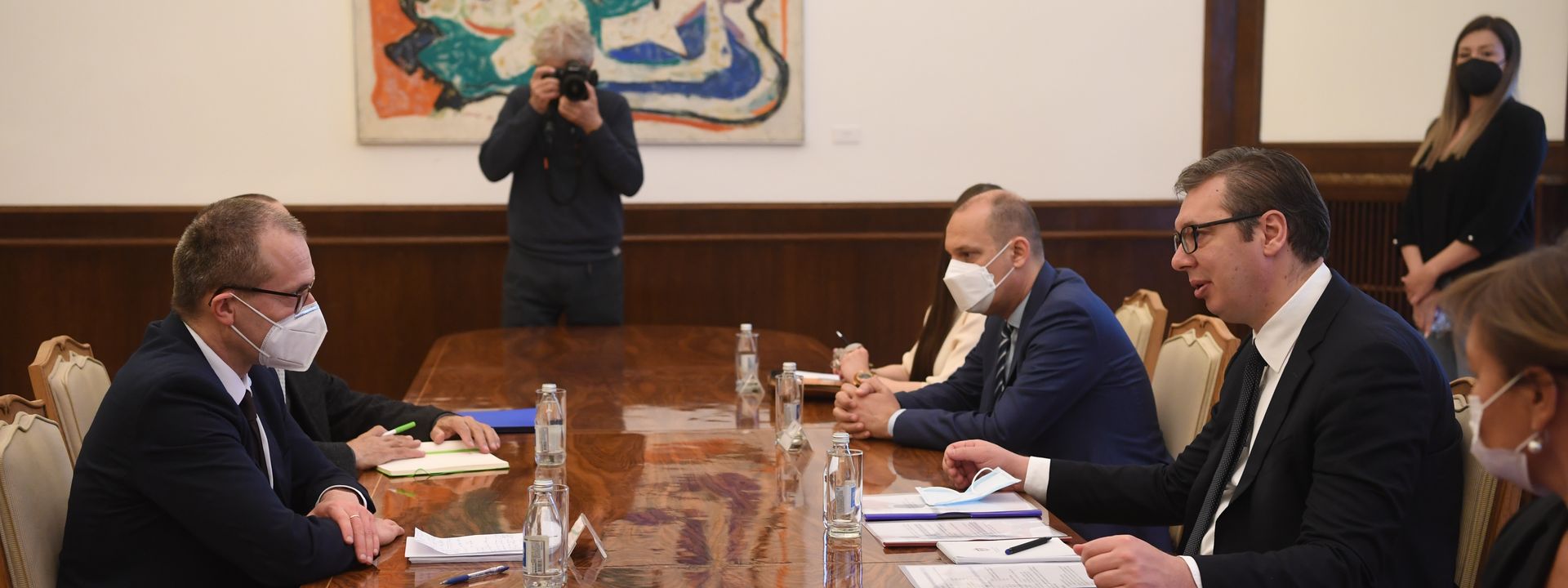
Presidetn of the Republic of Serbia Aleksandar Vučić met today with the Regional Director of the World Health Organisation for Europe Hans Kluge, to discuss cooperation in the fight against the COVID-19 pandemic, as well as cooperation in improving health care in our country and other joint activities.
President Vučić thanked Dr Kluge for his personal engagement and support during the current pandemic, especially for technical assistance and expertise. On thih occasion, he informed the WHO official about the results of immunisation in Serbia and plans on how to provide the vaccine to all citizens who want to get it.
Dr Kluge congratulated President Vučić on his leadership and personal commitment to provide vaccines. He emphasised that Serbia, with its good immunisation strategy, ranked among the global leaders, thus becoming an example of humanity and solidarity by enabling vaccination of elderly people in rural areas, foreign citizens and donating vaccines to other countries.
"Serbia has accepted the vaccine as a life-saving product and has not looked at it geopolitically", said Dr Kluge.
The two interlocutors agreed that the world should increase production capacities for vaccines, as well as develop new adequate therapies for the fight against COVID-19, and, in this regard, work on increasing the level of citizens' trust in science.
President Vučić informed Dr Kluge about the plans for improving the work of the Institute for Virology, Vaccines and Sera "Torlak".
"We want to make 'Torlak' one of the best vaccinefactories in Erope", said President Vučić.
Source: www.predsednik.rs
Photo: www.predsednik.rs |
|
|
| 19 April 2021 WHO describes immunisation process in Serbia as impressive |
|
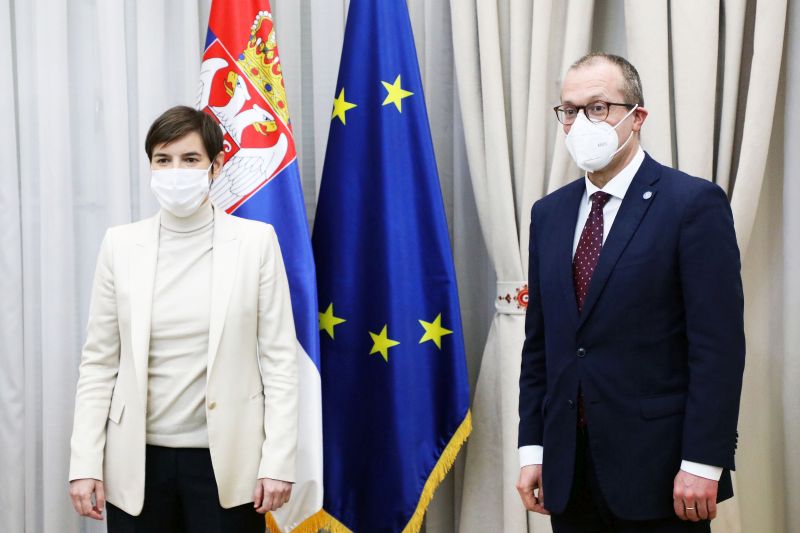
Prime Minister Ana Brnabic talked today with World Health Organisation (WHO) Regional Director for Europe Hans Kluge about the epidemiological situation and the course of immunisation of citizens in Serbia.
Brnabic expressed gratitude for the cooperation in the fight against the pandemic, technical assistance and expertise, emphasising that the support of this organisation is very important for our country.
She informed the WHO Regional Director for Europe about the course of immunisation of citizens in Serbia, expressing her belief that, thanks to the large number of vaccinated pople, we will be able to create collective immunity and return to normal life.
Kluge assessed the immunisation process in Serbia as impressive, and added that Serbia has made a good decision to offer citizens all available vaccines used in the fight against coronavirus.
Expressing concern over the emergence of new strains of the virus, he stressed the need to speed up the immunisation process and show mutual solidarity.
The WHO Regional Director for Europe praised Serbia for the humanity it has shown by donating vaccines to the countries of the region and enabling vaccination for thos who do not have a sufficient number of vaccines for their citizens.
The Prime Minister said that Serbia will continue to cooperate with the countries of the region and help in accordance with its capabilities.
When it comes to the project "Roadmap for Health in the Western Balkans 2021-2025", it was stated that, if epidemiological conditions allow, a regional meeting will be held in Belgrade at the end of the year, important for future improvement of cooperation between countries in the field of health challenges.
Source: www.srbija.gov.rs
Photo: www.srbija.gov.rs |
|
|
| 13 April 2021 Selakovic: Pristina persists in its campaign of hatred against the Serbian people |
|
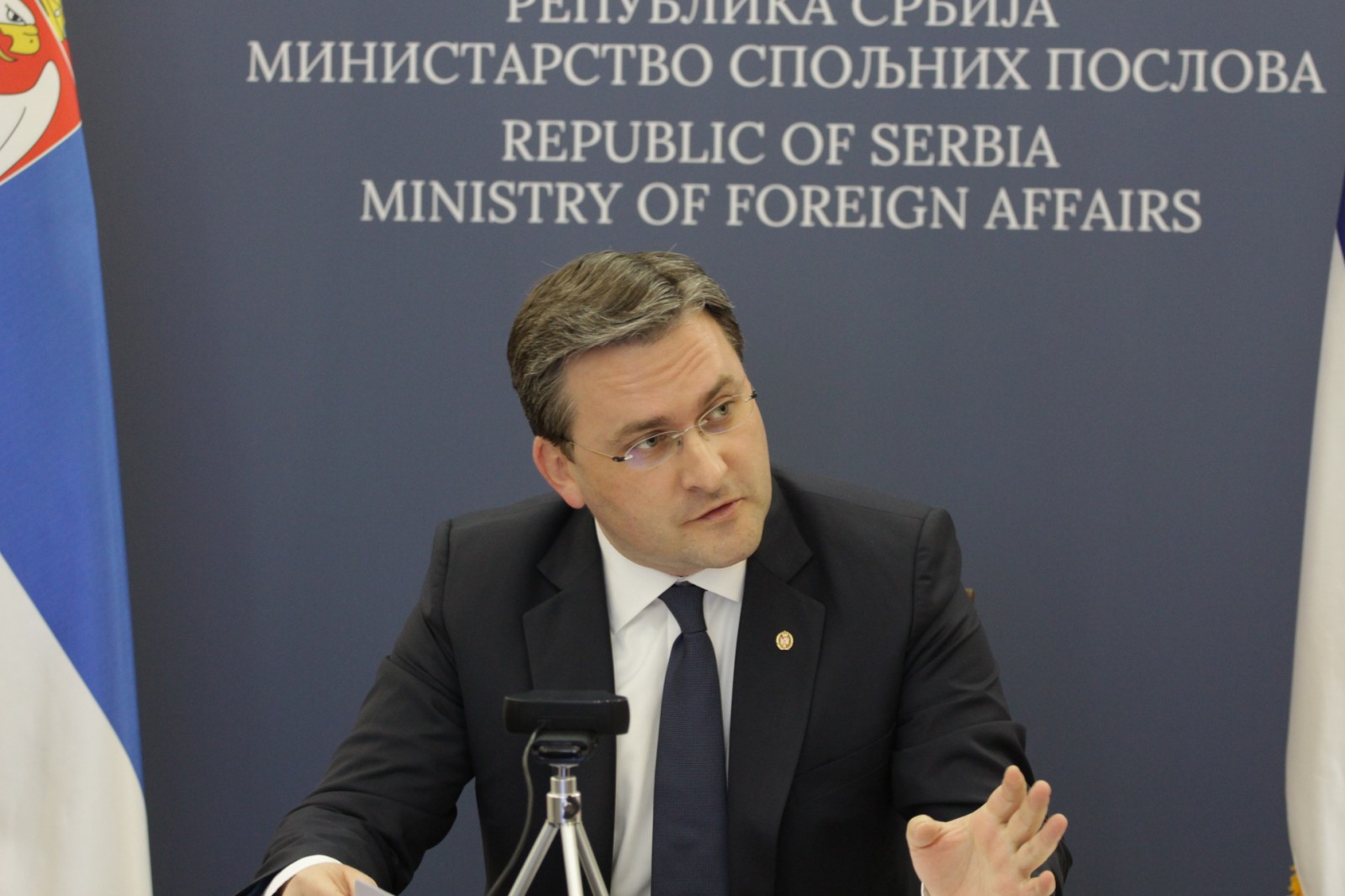
Minister of Foreign Affairs of Serbia Nikola Selakovic stated today that Pristina further persisted in its campaign of hatred against the Serbian people, which was most drastically seen in the unfounded accusations of mass rapes and genocide.
At the UN Security Council meeting discussing the Report of the UN Secretary-General on the work of UNMIK, Selakovic emphasixed that the efforts of the provisional institutions in Kosovo and Metohija to create a narratie about mass rapes of Albanian women were obvious, and that propaganda methods and lies were used for that purpose.
"It is clear that there were victims on all sides in the conflict, as well as that our side has evidence of numerous Serb victims. But the precondition for ensuring the protection of rights that belong to each individual victim is a rational and well-argued approach", Selakovic said responding to the slander of the Pristina representative.
Selakovic underlined that, contrary to the claims of politicians from Pristina about 20,000 rapde Albanian women, the information provided by the Commission for the Verification and Recognition of Sexual Violence Victim Status indicates 912 raped persons, however, failing to include in this number the Serb women who were victims of violence.
"Let me emphasixe that Serbia condemns every act of sexual violence in conflicts and is committed to achieving justice for all victims. The number of victims certainly does not diminish the horrific effect of this type of violence on each victim individually, but also, speculating on numbers does not contribute to justice being served and leas tgo politicization and slowing down the reconciliation process", Selakovic said.
Regarding the genocid accusation, Minister Selakovic stated that they only went to prove that Pristina further persisted in its campaign of hatred, propaganda and open hostility towards the Serbian people.
"Through statements given on daily basis, they attempt to paint a picture that Serbia is to blame for everything and that genocide was committed against lbanians, all in order to hide their own reponsibility for the committed crimes", the Serbian Foreign Minister said.
He underlined that anyone who knew what the definition of genocide implied would understand that it was not Serbia that committed something, but that the Sebian people was instead a victim of the "state-building" project of the Kosovo Albanians, based on the dangerous idea of ethically clean territories, as evidenced by more than 200,000 expelled Serbs from Kosovo and Metohija.
"We are convinced that the civilized world will not agree to be their accomplice in concealing and covering up their crimes, and that a clear message will be sent to them that they must take responsibility for their actions", Selakovic said.
He reminded that until 1999, around 40,000 Serbs lived in Pristina, and that today there were only about twenty of them, that around 17,000 Serbs lived in Pec, and that today there were only the Serbian nun in the Patriarchate of Pec, that around 12,000 Serbs lived in Prizren before the war, and that today only 17 families remained there, and that in Urosevac, out of 10,000 Serbs who lived there before the war, only the family of a Serbian priest remained. |
|
|
| 13 April 2021 Selakovic: Political extremism of Albanians in Kosovo and Metohija is becoming stronger |
|
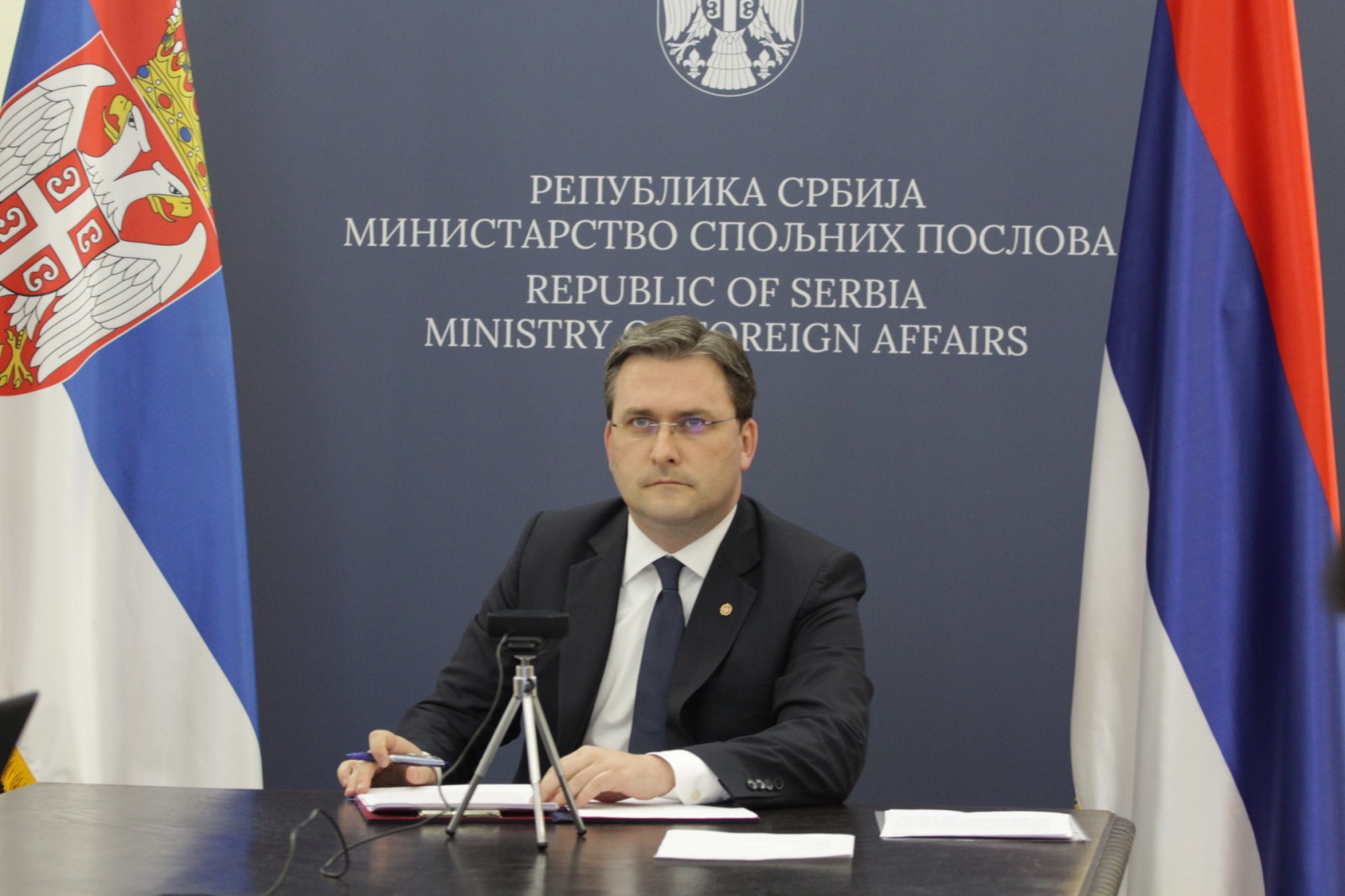
Minister of Foreign Affairs of Serbia Nikola Selakovic warned, at the United Nations Security Council meeting, that the political extremism among Albanians in Kosovo and Metohija was not decreasing, but on the contrary, was becoming stronger.
At the meeting discussing the Report of the UN Secretary-General on the work of UNMIK, Minister Selakovic recalled that the obligation to form the Community of Serb Municipalities remained unfulfilled for 2,917 days now and that, in fact, 19 April marked eight full years since the agreement was reached in Brussels, while Pristina still refused to follow up on its commitment and enable the formation of the Community of Serb Municipalities.
The Minister reminded that the current Prime Minister of the provisional institutions of self-government in Pristina repeatedly threatened to unite the self-proclaimed Kosovo and Albania, and that he also stated that the dialogue with Belgrade was low on the list of his priorities.
Minister Selakovic pointed out that it was high time for Albanian leaders in Pristina to show responsibility in fulfilling their commitments, but also a sincere commitment to reaching a compromise solution and building mutual trust.
"Serbia is determined and will not give up on identifying a compromise solution, which will be sustainable for future generations as well. The only way to build lasting peace and stability in our region is by working to build trust and insisting on positive political agendas", Selakovic concluded.
According to the Minister, lasting peace and stability can only be achieved if non of the participants in the dialogue pursued maximalist demands and insisted on the complete humiliation of the other.
He pointed out that the Serbian and Albanian peoples, as the two most numerous peoples in the Western Balkans, needed to find a way to reach reconciliation and a basis for cooeration, both in terms of the economy and in achieving shared prospects for membership of the European Union.
"Belgrade hs made sincere steps in that direction, by being one of the initiators of the idea of relaxing the flow of people, goods, capital and services, popularly referred to as "mini-Schengen", the Minister underlined.
Pointing out that Serbia had time and time again demonstrated its commitment to dialogue as the only way towards a peaceful, political solution to the problem in Kosovo and Metohija, Selakovic underscored that the recent elections in the Province confirmed that political extremism among Albanians in Kosovo and Metohija was not decreasing, but on the contrary, was becoming stronger, which could be seen during the recent pre-election rpoces.
Minister stressed that political pressures on Serbs continued even after the election process was completed, by denying Serbs fair representation in provisional institutions as the new so-called government in Pristina decided o assign only one ministry to the Serb community.
"Serb returnees represent a particularly vulnerable category, who spend their every day in fear of being attacked. I remind you that thesouthern Serbian province is still an area with the lowest return rate of displaced persons in the world", the Minister said and emphasiyed that, in the last year alone, more than 80 attacks and incidents took place in our southern province, targeting Serbs, their property and religious sites.
It is particularly worryng for the Serbian people in Kosovo and Metohija, Selakovic noted, that in the previous period, and especially in March this year, there were frequent physical attacks on the property of the Serbian Orthodox Church.
"A striking example of the disrespectful attitude towards Serbian cultural and religious monuments in the Province, whose exceptional universal value UNESCO confirmed by inscribing them on the World Heritage List, is the case of the Visoki Decani Monastery", the Minister underlined.
Furthermore, the Serbian Foreign Minister assessed as concerning the breaking into the Health Center in Strpce by police inspectors and officers, in January this year, who conducted a search aiming to discover Covid-19 vaccines there, originating from central Serbia.
"Although we consider this to be an intrusion into a health care institution, our reaction was restrained this time as well. We did not want our ecisions to cause escalation and politicization of activities that are solely aimed at protecting public health. We organized the vaccination of citizens from Kosovo and Metohija at three locations in central Serba and thus clearly demonstrated that people's lives are the top priority to us", the Minister stressed.
Minister Selakovic stated that Serbia highly valued the activities of UNMIK mission in Kosovo and Metohija and that it supported it in carrying out its work as efficiently as possible and undiminished in scope, aiming to build and preserve security in the Province.
Selakovic said that the international missions in Kosovo and Metohija - UNMIK, KFOR, EULEX and the OSCE mission, under the administration of the United Nations and in line with UNSC Resolution 1244, played a key role in the preservation of peace and protection of the population.
"We support and respect their engagement and efforts made in the framework of their mandates, with the common goal of crating conditions for a peaceful and safe coexistence of the inhabitants of Kosovo and Metohija. The Serb and other non-Albanian population in Kosovo and Metohija have the utmost confidence in the international presence and consider it a guarantor of security and a barrier against the arbitrariness of the provisional institutions in Pristina", the Minister emphasized.
He said that this demonstrated the need that international missions remain engaged in an undiminished scope, in order to consistently implement UNSC Resolution 1244.
Selakovic further emphasized the importance of KFOR international forces and pointed out that any unilateral attempt to assing to someone else or that someone else assumes a part of KFOR's mandte and responsibilities constitutes a violation of UNSC Resolution 1244.
The Minister also noted as unacceptable the unilateral decisions on the formation of the Pristina "Ministry of Defence" and launching the process of transforming the so-called "Kosovo Security Forces" (KSF) into the so-called "Kosovo Army".
At the beginning of his statement, Minister Selakovic lodged a protest against the abuse of the video format of the session by the representative of Pristina as she had a flag of the self-proclaimed "Kosovo" placed behind her, and the representative of Russia did the same.
Below is an ntegral version of the speech of the Minister of Foreign Affairs Nikola Selakovic
Distinguished President of the Security Council,
Distinguished Special Representative,
Esteemed members of the Security Council,
At the outset, I have no choice but to lodge a protest against the abuse of the video format of this session on the part of the representatives of Pristina in order to promote the symbols of the so-called stateshood of Kosovo. Despite the fact that the representatives of Pristina were warned on several occasions, including by the President of the Security Council at the previous session, that such abuses of Security Council sessions are absolutely unacceptable and constitute a flagrant violation of the Security Council rules on participation of representatives of the provisional institutions of self-government in Pristina, under Rule 39 of the UN Security Council Rules of Procedure, we are again faced with their reckless disregard for the rules of this distinguished body. Let me reiterate our call for the necessary steps to be taken to prevent such abuses.
It is my great pleasure to address this august body at the meeting on the work of the Mission of the United Nations in Kosovo and Metohija. At the outset, I would like to thank Secretary-General of the United Nations Mr. Guterres and Special Representative of the Secretary-General and Head of UNMIK Mr. Tanin for the report submitted and for their efforts made towards the implementation of the UNMIK mandate, and also to the members of the Security Council for the continued attention they have devoted to the issue of Kosovo and Metohijaand supports it in carrying out its work as efficiently as possible and undiminished in scope, aiming to build and preserve security in the Province.
Mr. President,
In the previous period we have faced political instability in Kosovo and Metohija. We recently had elections in the Province, which unfortunately confirmed that political extremism among Albanians in Kosovo and Metohija is not decreasing, but on the contrary, is becoming stronger. We have witnessed Albanian leaders competing among themselves in efforts to find the best way to provoke an incident in Serb communities, in order to score political oints of the Albanian electorate. Under the pretext of amending the voter list, a large number of Serbs in Kosovo and Metohija were deprived of one of their fundamental political rights - the opportunity to elect their political representatives. Out of approximately 140,000 of citizens of Kosovo and Metohija who were removed from the voter list in the latest election process, 85% are Serbs.
Despite numerous challenges and problems, the Serbian people in Ksovo and Metohija have shown, by high turnout and a convincing victory of the Serb List which won all ten seats reserved for Serbian representatives, that nothing can stop them from resolutely defending their position. Political pressures on Serbs continued even after the election process was completed, by denying Serbs fair representation in provisional institutions as the new so-called government in Pristina decided to assign only one ministry to the Serb community.
Distinguished members of the Security Council,
Unforunately, it was not only during the election acivities that we witnessed the unreasonable anti-Serb policy being pursued by the provisional institutions in Pristina. This goes to the length of breaking into the Health Center in Strpce, in the south of Kosovo and Metohija, by police inspectors and officers from Pristina, in January this year, who conducted a search aiming to discover Covid-19 vaccines there, originating from central Serbia, which they did not find. In doing so they demonstrated force and threatened to arrest the director of the Health Center, medical staff and doctors. At a time when the whole world is fighting the pandemic with vaccines being the only waj to end this challenge, while Serbia is showing support and solidrity by donating vaccines and medical equipment to all in need in the region, Pristina wants to destroy vaccines only because they originate from central Serba. As the whole world expresses gratitude to medical doctors, who have made great and heroic sacrifices in combating the virus, the provisional institutions in Pristina are attacking Serbian doctors for doing their job.
Althourgh we believe that intrusions into health care institutions are inadmissible, our reaction was restrained this time as well. We did not want our decisions to cause escalation and politicization of activities that are soley aimed at protecting public health. We organized the vaccination of citizens from Kosovo and Metohija at three locations in central Serbia and thus clearly demonstrated that people's lives are the top priority to us. Serbia continues to be ready to help all in need of assistance, and we call for reason and responsibility, especially in such difficult times.
Mr. President,
Attacks targeting Serbs and their property have been on the rise. In the last year alone, more than 80 attacks and incidents took place in our southern province, targeting Serbs, their property and religious sites. According to the information provided by the OSCE Mission in Kosovo and Metohija, inthe second half of last year, the number of incidents increased by more than 30% compared to 2019. Therefore, we cannot agree with the assessment that the "security situation in Kosovo remained stable, with a few incidents reported affecting non-majority communities". Last weekend, for example, an entirely unprovoked physical attack by a group of Albanians on two Ser young men took place in the northern part of Kosovska Mitrovica.
Serb returnees represent a particularly vulnerable category, who spend their every day in fear of being attacked. The fact that one family of returnees was the target of seven attacks clearly indicates the persistence of those who do not want Serbs in Kosovo and Metohija. There is absolutely no trace of political will in Pristina for 212,995 dispaced Serbs who have been living outside Kosovo and Metohija for 22 years to return to their homes. Since 1999, the rate of sustainable return of internally displaced persons in Kosovo and Metohija has been only 1.9%, which according to the UN data is officially the lowest percentage of return of expelled population after a conflict anywhere in the world.
At the same time, while arresting internally displaced persons, Pristina authorities are exertingthe strongest of pressures on the Specialist Chambers in The Hague. The aim is to completely prevent the furher processing of a number of cases against members of the terrorist KLA, on charges of serious crimes committed during the conflict in Kosovo and Mtohija against both Serbs and persons belonging to other nationalities. President of the Specialist Chambers Madam Trendafilova recently warned that, should the pressures continue, this would have very dramatic consequences to the trials in progress. President Trendafilova underlined as highly problematic the phenomenon of witness intimidation, who are key for conducting proceedings successfully and rendering a proper verdict.
Although the wait to raise indictments was far too long, we consider it commendable that efforts have finally been made to punish the perpetrators of numerous serious crimes which were committed during the armed conflicts a little over two decades ago, but also upon the arrival of the international forces to Kosovo and Metohija. For example, no one has been held accountable to this day for the killings and abductions of 17 journalists in Kosovo and Metohija, which is currently the largest number of unsolved cases of murdered and kidnapped journallists in Europe. Furthermore, the perpetrators of any of the mass crimes committed against Serb civilians after 1999 have not been brought to justice. I will remind you of only a few of thes cases: 14 Serb farmers were killed in the village of Staro Gacko, 12 displaced Serbs were killed and 43 wounded in the attack on the "Nis Express" bus in Livadice near Podujevo, and in Gorazdevac near Pec unknown persons fired automatic weapons on children who were swimming in the Bistrica river. Two Serb children were killed then, and four were seriously injured.
We expect the EULEX MIssion to continue to support the Specialist Chambers and the Specialist Prosecutor's Office, as well as its additional engagement in the field of the rule of law. Special attention needs to be devoted to witness protection, and determining the fate of missing persons.
International missions in Kosovo and Metohija - UNMIK, KFOR, EULEX and OMIK are an integral part of the international civilian and security presence in our southern province, under the administration of the United Nations and in line with UNSC Resolution 1244 (1999), and play a key role and make an outstanding contribution to the preservation of peace and protection of the population. We support and respect their ngagement and efforts made in the framework of their mandates, with the common goal of creating conditions for a peaceful and safe coexistence of the inhabitants of Kosovo and Methija. The Serb and other non-Albanian population in Kosovo and Metohija have the utmost confidence in the international presence and consider it a guarantor of security and a barrier against the arbitrariness of the provisional institutions in Pristina. This further demonstrates the need that internatiional missions remain engaged in an undiminished scope, in order to consistently implement UNSC Resolution 1244.
I would like to further emphasize the importance of KFOR international forces and point out that any unilateral attempt to assign to someone else or that someone else assumes a part of KFOR's mandate and responsibilities constitutes a violation of the UNSC Resolution 1244, while also being a potential source of instability and tensions. I wil remind you that Pristina, contrary to international law and completely ignoring the interests and positions of the Serb community in the Province, would not abandon its plans to install a new security actor in the territory of Kosovo and Metohija. We consider the unilateral decisions on the formation of the "Ministry of Defence" and launching the process of transforming the so-called "Kosovo Security Forces" (KSF) into the so-called "Kosovo Army" to be unacceptable. I would like to reiterate that such unilateral moves on the part of Pristina constitute a gross violation of the UNSC Resolution 1244 and the Military Technical Agreement, according to which only the International Security Forces, that is KFOR, have the mandate for all military aspects of security in the territory of Kosovo and Metohija.
In this context, an additional reson for concer is the announcement of the construction of the largest base of the "Kosovo Security Forces" in the southern part of Kosovska Mitrovica, which Serbs in the north of Kosovo and Metohija perceive as the most open provocation and threat to their physical safety.
Distinguished members of the Security Council,
It is particularly worrying for the Serbian people in Kosovo and Metohija that in the previous period, and especially in March this year, there were frequent physical attacks on the property of the Serbian Orthodox Church. In just two weeks, as many as seven Orthodox lndmarks in the province were targeted by vandals, at a time when we all remember the March 2004 pogom against Serbs and Serbian holy sites in Kosovo and Metohija. The condition of the Serbian cultural and spiritual heritage in Kosovo and Metohija is humiliating, including the four monuments that are inscribed on the UNESCO List of World Heritage in Danger (Visoki Decani, Holy Virgin of Ljevisa, Gracanica and the Patriarchate of Pec). Numerous administrative and technical barriers are imposed on priestly and monastic communities, which makes it more difficult or even impossible for them to survive on church property.
A striking example of the disrespectful attitude towards Serbian cultural and religious monuments in the Province, whose exceptional universal value UNESCO confirmed by inscribing them on the World Heritage List, is the case of the Visoki Decani Monastery.
Distinguished members of the Security Council,
The reson for the nervous behaviour of Pristina is all too obvious, as the project of the so-called independence today fails to be recognized by mor than a half of the United Nations Member States, including five members of the European Union. However, it is high time for Albanian leaders in Pristina to show responsibility in fulfilling their commitments, but also a sincere commitment to reaching a compromise solution and building mutual trust.
I will remind you that the current Prime Minister of the provisional institutions of self-government in Pristina has repeatedly threatened to unite the self-proclaimed Kosovo and Albania in the past. A member of his party publicly said last weekend that the self-proclaimed Kosova and Albania would be united, I quote, "with rifle and gunpowder, or referendum boxes".
I need not explain why such dangerous ideas constitute a direct threat to peace and stability. They violate Resolution 1244, while continuously destabilixing not only our southern province, but the entire region as well, and in no way contribute to the dialogue process, but instead hamper it again.
We have demonstrated time and time again our commitment to dialogue as the only way towards a peaceful, political solution to the problem in Kosovo and Metohija. Even today, after many years of negotiations, but also failure to fulfill what was agreed and constant unilateral moves and provocations on the part of the provsional institutions in ristina, we are still ready to sit down at the table and talk.
We are ready for dialogue but not to be blackmailed and threatened and especially not for ultimatums recently presented by Prime Minister of the provisional institutions of self-government in Pristina. I will remind you fo his statement that the dialogue will be low on the list of priorities of the Pristina authorities. It is bewildering how Pristina refers to ultimatums completely undermining any chance of dialogue, as the European Union also pointed out, as "principles" and how it persistently insists that Belgrade should recognize the unilaterallydeclared independence of "Kosovo", upon which, they believe, all els would be resolved. What is the purpose of the dialogue then, if Belgrade is only expected to recognize the so-called Kosovo? Does the dialogue imply that one side should give up everything only for the other to win it all? And does the dialogue, in Pristina's opinion, imply that what was agreed should not be fulfilled?
I will remind you that Pristina still refuses to follow up on its obligations arising from the agreements reached so far and does not agree to discuss their implementation within the dialogue. And the situation is quite simple - in April 2013, the first agreement was signed in Brussels, which envisaged for obligations: one for Pristina and three for Belgrade. Belgrade has fulfilled all obligations, while the only obligation that the provisional institutions in Pristina had - to form the Community of Serb Municipalities - has remained unfulfilled for 2,917 days now. In fact, 19 April marks eight full years since the agreement was reached in Brussels, and of Pristina's failure to fulfill the obligation to form the Community of Serb Municipalities.
Distinguished Mr. President,
Regardless of the discouraging messages heard from Pristina and the fact that the dialogue has been in progress for many years, Serbia is determined and will not give up on identifying a compromise solution, which will be sustainable for future generations as well. Lasting peace and stability can only be achieved if none of the participants in the dialogue pursues maximalist demands and insists on the complete humiliation of the other. The Serbian and Albanian peoples, as the two most numerous peoples in the Western Balkans, need to find a way to reach reconciliation and a basis for cooperation, both in terms of the economy and in achieving shared prospects for membership to the European Union.
Belgarade has made sincere steps in that direction, by being one of the initiators of the idea of relaxing the flow of people, goods, capital and services, popularly referred to as "mini-Schengen".
As far as Serba is concerned, we are convinced that the only way to build lasting peace and stability in our region is by working to build trust and insisting on positive political agenda. The inhabitants of Kosovo and Metohija, of any nationality, whether they are Serbs of Albanians, do not deserve anything less.
Thank you for your attention. |
|
|
| 24 March 2021 Marking the Day of Remembrance of the victims of the NATO aggression |
|
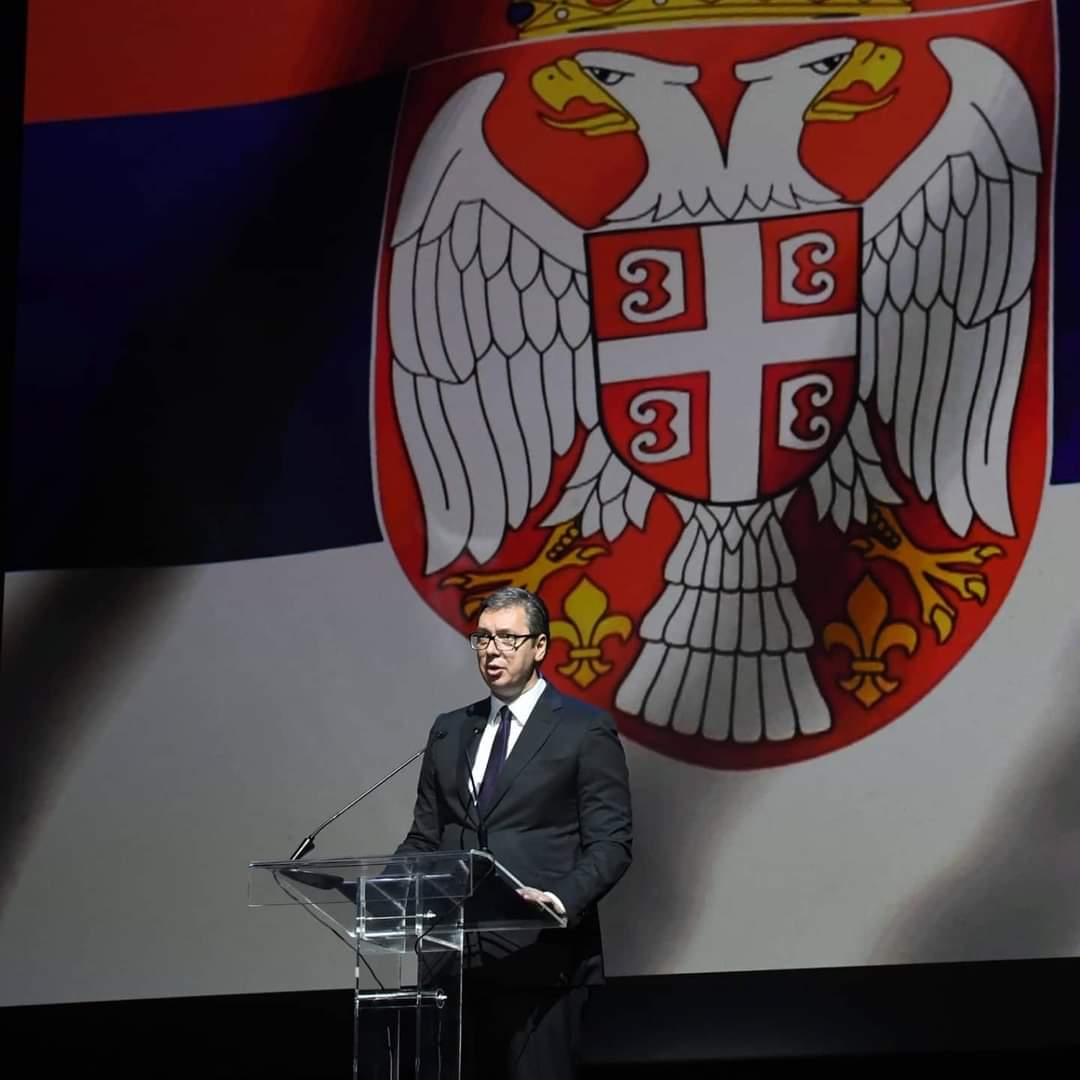
President of the Republic of Serbia Aleksandar Vucic made a statement on the occasion of marking the Day of Remembrance of the victims of the NATO aggression.
"Your Holiness, distinguished Chairman of the Presidency of Bosnia and Heryegovina, distinguished Speakers of the National Assemblies of the Republic of Serbia and the Republic of Srpska, distinguished Prime Ministers of the Republic of Serbia and the Republic of Srpska, distinguished Ministers of both Governments, dear guests and friends, representatives of the Serbian People from Montenegro, North Macedonia, Croatia, thank you for the fact that we are all together tonight and that the Serbian spirit is unbreakable and invincible.
One child a day and a little more than that. That is the most difficult, sickening and painful number of the NATO aggression from 1999. Killed, stopped, guilty of nothing, having committed no sin, without the right to defence, without the right to justice and without the right ot life.
No one has ever been held accountgable for this crime, a crime greater than a crime. No one, for the 2,500 killed civilians, but also soldiers and policemen who wre only guilty of guarding, protecting themselves and their homes. No one has ever been held accountable for more than 6,000 persons injured.
Even today, 22 years after the aggression, it is not possible to explain that, there is no universal justification, despite all the work done to that end, there is no reason, it makes no sense, and only names remain, as eternal as sin.
Miljana Milic, fifteen years old,
Vladimir Milic, twelve years old,
Miomir Mladenovic, fourteen years old,
Dragan Dimic, three years old,
Julijana Brudar, ten years old,
Olivera Maksimovic, twelve years old,
Miroslav Kneyevic, thirteen years old,
Dajana Pavlovic, five years old,
Stevan Pavlovic, eight years old,
Marko Simic, two years old,
Milica Rakic, three years old,
Ivan Ivancic, seven years old,
Marko Ivanovic, three years old...
And the list goes on, eighty nine names, not only Serbian ones...
The senselessness of sheer killing did not choose. Sixteen children, aged two to seventeen, from the Ahmetaj and Hasani families, were killed in a convoy returning home to Priyren.
In one headline in the West, this was simply explained as a "tragic mistake". The deaths of Marko Roglic, Milan Ignjatovic, Gordana Nikolic, Irena Mitic, Milica Stojanovic, Bojana Tosovic, Branimir Stanijanovic, oru Sanja Milenkovic... could not expect or get even such an explanation.
Those deaths were not tragic, for those who caused them, much less a mistake. It was just an excuse, a miserable excuse.
They were a result of intent and a clear decision, as a severe judgment against one country, its people, its children.
And that is why today we will refrain from speculation in giving a name to evirything that happened during the spring of 1999. Because a crime happened, a heinous and terrible one. And it was an aggression, not a bombing, not an intervention, not a campaign, not an operation. An aggression is what happened. An attack on a sovereign country, without a cecision of the United Nations, without a sufficient reason that would justify attacking the then Yugoslavia or a neighbouring or NATO country.
No one was attaced by Serbia or the Federal Republic of Yugoslavia at that time. They attacked us, with one goal. To defeat us, to keep killing us, and in the end to take away a part of our territory.
And no matter how much we analyze things today, no matter how harsh and critical we are towards ourselves, our policy and leadership at the time, it is clear that the Federal Republic of Yugoslavia and Serbia were left with almost no choice then. The choice was horrible, either the loss of territory and people on the one hand, or the complete disappearance of the Serbian state, morals, honour, Serbian spirit, names and surnames. And we could not help but lose. Nineteen big ones attacked one small country, the Federal Republic of Yugoslavia. They attacked both Serbia and Montenegro. And even when they don't talk about it today, in one of the two independent countries, those are the facts. And that small country, and that small nation, to all nineteen of them so great and powerful, held a sesson in what matters most - honour, morals and love fo freedom that a nation can have.
Yes. justic, lest wer forget justice. All those nineteen great ones today still silently talk about their military success, avoid answering questions, wheile - can you imagine, one small, only numericall small Serbian people, that small but magnificent nation, with sadness, tears in their eyes, proudly remembres their resistance and struggle against the nineteen cruel and arrogant ones.
We lost a lot, we lost our fathers, brothers, spouses, children, but the honour and Serbian heart are still there, to protect Serbia, which is eternal and indestructible.
We lost children, we lost people, we lost control over a large part of the territory, we lost billions because of the destroyed infrastructure and economy.
And all that was left for us was the body of a tortured, destroyed country, a country iy disintegration, mutilated, looted, wounded, deserted, and gulty, condemned for eveything that happened not only in the 1990s, but throughout history.
A country that, even ten years after the aggression, did not have the strength to stand up, rise to its feet, and do anything but be silent, or bow its head and obediently apologize, for everything, even for its dead, even for its murdered children.
Today, it is no longer that failed, tortured, devastated, mutilated Serbia.
Today, it is Serbia, which has found its strength and its pride again.
Serbia, which calls things by their real names.
Serbia, which turned its back on war and defeats, and started working.
Serbia, which rose to stand on its own feet and has a voice of its own.
Serbia, which, even when they don't believe ti, they listen to. Which is capable, which is growing, and is no longer part of the problem. Serbia, which is and will be, at least we will do our best to this end, the very solution that enables the entire region to live in peace and understanding.
And that Serbia, today, when there are still many more bombs in the world than vaccines, sends not bombs, but precisely those vaccines to the region. Today, it si ready to produce them as well, and in just a few months we will do just that, but not only for ourselves, but also for other, for the entire Balkans.
We are ready, and we are willing to help.
We are not ready to be and we will not be silent, nor be humiliated again.
We draw the right to that not only from the victims we had, but also from the fact that we stopped looking at others only a long time ago, and looking for fault and guilt only in them, and not sometimes in ourselves as well.
We looked at each other and admitted. Every loss, every defeat and every crime that someone committed in our name, every failure and every wrong policy.
And we are no longer doing anything that could endanged anyone.
We continue to work and work, and grow more and more, gaining strength with only one goal - to be the best in economy and education, health, in culture, science, sports...
And we want to be safe, on our own. We want our army to be much stronger than it was in1999. So that we never again face a situation that someone is killing our children, destroying the country, or expelling our people.
We want to remain free, to decide our own destiny, and for no one to take everything away from us ever again, and give us nothing.
And that nothing today, and I will repeat it as much as necessary, is the idea of some great, powerful ones, but also those who serve them, the ideao that "Kosovo" should recognize us, so that we could recognize "Kosovo".
We do not need that recognition. And Serbia will not allow you to walk over our victims, our history, oru past, but also to walk over our future. You will get the answer of reaonable, kind and responsible people. We need a compromise. We need all the obligations that we and Pristina have assumed to be fulfilled, but only we have fulfilled them so far.
And this is not our whim. It is not a phantasmagoria about a Serbian world that we want to create.
Even today, when they threaten us with the formation of a Greater Albania, when they say that the Community of Serb Municipalities is not going to happen, it is ours to be calm, to take care of our people in Kosovo and Metohija, but to send a cear message to all those great, powerful ones that we are not as weak as we were, that we will be able to preserve what is our own, not touching anything that belongs to anyone else. After all, Serbia is not and will not be but a handful of oats that evey crow from the wole wide world can eat. As for those who used the strength and power of the nineteen arrogant and crual ones, I only ask them not to threatemn us. Please, please, don't threaten u. They should not think that Serbia is broken and that it will not have the strength to respond. Please, please, our Albanian neighbours, do not threaten us. And we ask all others, who have domonstrated their cruelty towards Serbia, not to help you in that. That is all we are asking and nothing more.
And we will respond to calls for peace, calls for compromise, and always with good will, because we do not want to have children killed again. ANd we do not want the children of others to suffer again. But do not understimate Serbia, and do not look at Serbia with the same eyes as you did in 1999.
Today, Serbia is much stronger, much more powerful. Today, Serbia is a united country of togeterness, not a divided one. Today, Serbia is incomparably stronger and better in every aspect than it was in 1999, from the economy to our army. And we will never threaten anyone, we just ask you and request from you to respect us and nothing more.
Today, we are building roads that will connect us, among ourselves, with the region and with the world. Until the end of the year, we will work on eight motorways, on eight routes in the enire Balkans, not only Serbia, eight roads of peace and cooperation.
Only a crazy person would trade this for war, for dead children, for demolition and new loss. And yes, we want to have the closest relations with everyone who took part in the aggression against our beautiful Serbia, we have forgiven a long time ago, but no, we will never forget. And don't ask us to. That one day, every year, we will remind both ourselves and you. The nineteen of you, the most powerful, strongest, greatest in terms of might and force, but not so much when it comes to honour and morality. We will keep remind you and ourselves, just so it would never happen again. Not to us only, but to none other freedom-loving people in the world.
And if we have an offer, today it reads as follows: we are ready to make the whole Balkans a winner, for everyone to win, as long as no one tries to make Serbs the only losers.
And the parth to this goal is not difficult at all.
We just need to respect and understand each other and not try to humiliate each other.
And not to touch into what everyone paid the highest and bloodies price for. Freedom. And we, Serbs, know the price of freedom.
Into our fight to have it, to keep it and to remember all the victims who are part of it.
And our defeats, our lives and our children are built into ours. And the lives of our heroic pilots, and our giants from Kosare and Pastrik, and our children, innocent, completely innocent, and only guilty of living in Serbia.
This is too high a price to be quiet about it.
Because that would mean the we are ready for another defeat, for another humiliation.
And we are not.
And when all go quiet, we will keep repeating.
A child a day, and a little more. This was how much uou killed us. In anaggression that even you did not understand why you carried it out.
And we will keep repeating this, just so it does not happent to us again.
With special reverence, we are fulfilling our obligation to pay tribute to all innocent Serbian victims who laid their lives on the altar of the homeland, both civilians and our heroic soldiers and policemen, the heroes of Kosare, Prizren, Mitrovica.
Today, for us Serba, life in Kosovo and Metohija is like Via Dolorosa, using their last strength on the road to Golgotha, but we would not be Serbs if we were not capable to ''exist in a terrible place''.
And today, tonight, I can conclude with one important sentence. On the soil of Europe, there was, and today is stronger than ever, an indomitable, unwavering, unconquerable and never conquered Serbia.
"May eternal glory be to all the victims of the NATO aggression and let us all exclaim together - long live free and proud Serbia", President Vucic said.
Source: www.predsednik.rs
Photo: www.predsednik.rs |
|
|
| Commemorating Remembrance Day of 17 March 2004 - Pogrom in Kosovo and Metohija |
|
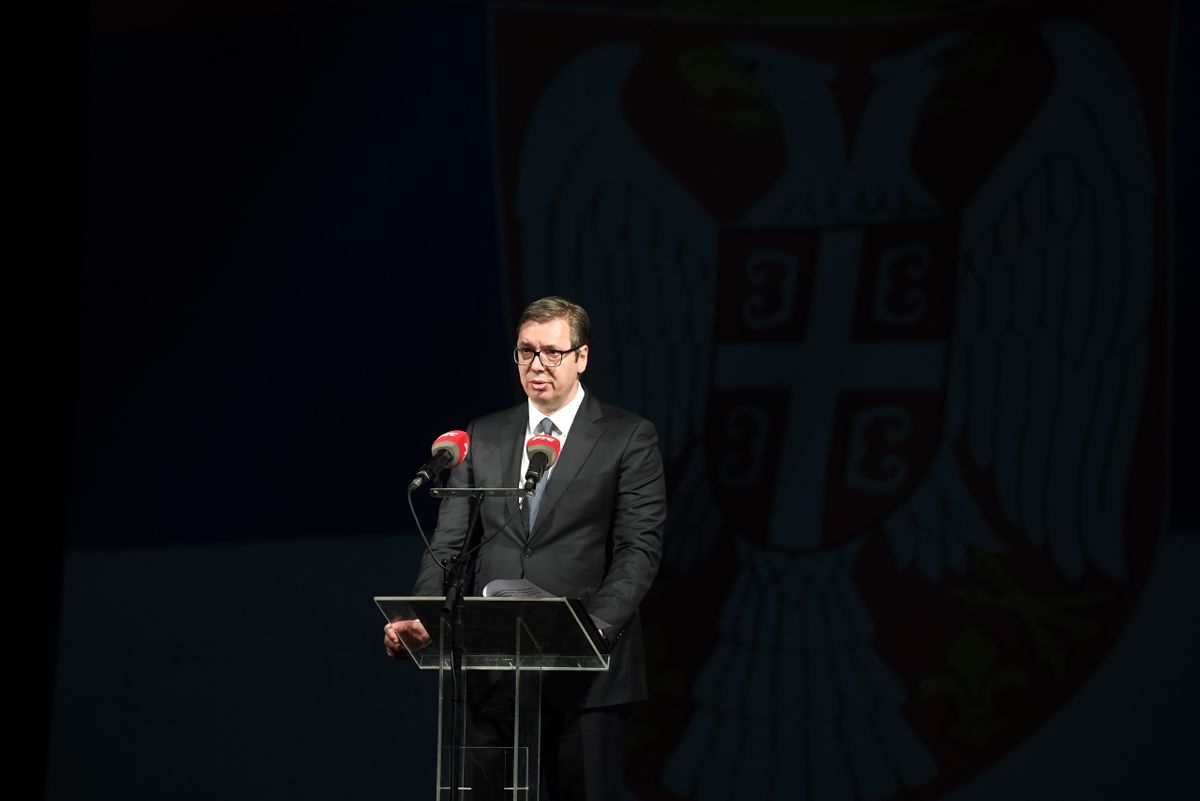
President of the Republic of Serbia Aleksandar Vucic participated today in the commemoration of the Remembrance Day of 17 March 2004 - Pogrom in Kosovo and Metohija. He said that exactly 17 years ago, a pogrom took place in Ksovo and Metohija, and that pogrom surpassed all other crimes.
"There may be times when we are powerless to prevent injustice, but there must never be a time when we fail to protest, these words of Elie Wiesel, a camp survivor and Nobel laureate, make it forever incumbent upon us not to remain silent against crime, regardless of who and for what reason committed it", President Vucic stated and added that we remembered and learned every lesson in which we were losers, each one in which we were silent to our own victims, and each one when we were ready to forget.
"Serbia is no longer weak today, nor is it a country of losers, it does not threaten, but it does not forget either, it is ready for talks, but not for humiliation. Serbia, just like eveyone else, has the right to take care of its people, their safety and well-being. The right to life is a fundamental human right and we will always defend it ", President Vucic said.
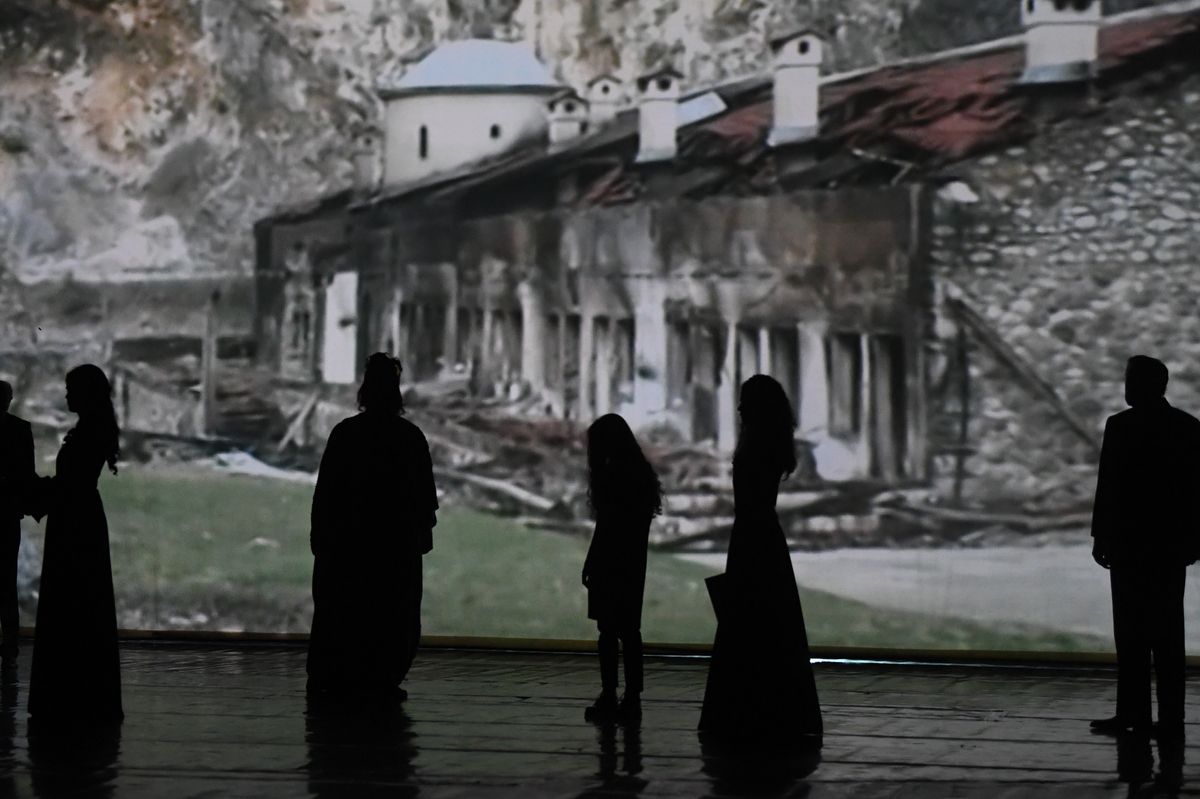
President Vucic said that pogrom surpasses all other cimes, because it is not only an act, but an intention, a policy, a premediated attempt to forcibly cleanse persons belonging to other peoples and faiths from a region or a country.
"We have no right to remain silent to that", said the President of Serbia, emphasizing that we have an obligation to be winners without blood spilled and war, to be the best in the economy, healthcare, sports, education and eveything else that implies development and progress.
"We also wish others to work on themselves and be successful, because we are aware that crime is a tool for losers that winners do not need, as they remember, but forgive and move on, while the losers keep spinning in the same vicious circle. We Serbs do not want to be that anymore, we want a future in which we will remember, but from which we will not return. We know what happened and we call it by its real name", President Vucic concluded.
Photo: Dimitrije Goll |
|
|
| Meeting with the Head of the Delegation of the European Union |
|
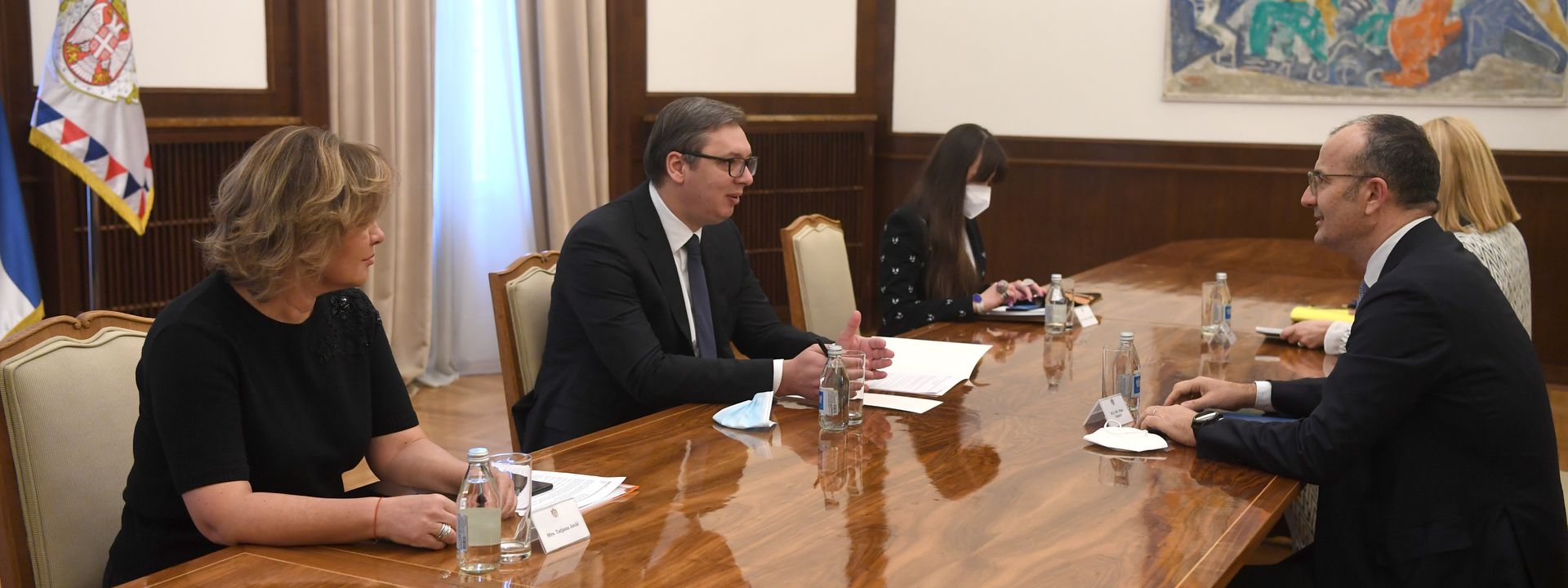
President of the Republic of Serbia Aleksandar Vučić met today with the Head of the Delegation of the European Union, Ambassador Sam Fabrizi, to discuss the continuation of the fight against the COVID-19 pandemic and the challenges in the mass vaccination process.
President Vučić thanked the EU for its support to Serbia in the conditions of the pandemic and expressed hope that the first contingents of vaccines from the COVAX program will arrive soon.
"Serbia was among the firstto join this programme, thus proving again to be a reliable partner of the European Union", said President Vučić and stressed that oru country has taken a serious and responsible approach to fighting the pandemic, as evidence by compehensive measures adopted by the Serbian Government to preserve the health and lives of people, both citizens of Serbia and it surrounding.
Ambassador Fabrizi assured that the EU will continue to provide full solidarity to Serba. Last week, the European Commission announced the allocation of 12 million euros for Serbia from the EU Solidarity Fund, which is another indicator of the EU's support for Serbia since the outbreak of the pandemic. The EU will continue to work to ensure a fair and global distribution of vaccines. In this regar, Ambassador Fabrizi stressed the importance of the COVAX program. The EU and Team Europe, as a true global donor, have alredy pledged more than 2 billion euros for the programme. The Ambassador commented positively on Serbia's contribution to the COVAX program and congratulated Serbia on the results achieved in the vaccination process, as vell as on the timely and decisive measures taken in the fight against the coronavirus.
On this occasion, President Vučić also confirmed that cooperation with the European Union and full membership ofSerbia remains one of the key foreign policy priorities of our country. He particularly emphasised that Serbia is sincerely committed to further reforms, which it approaches wth responsibility and seriousness, and that through cooperation with the institutions of the Union and its members, it strives to adopt and apply best practices.
Ambassador Fabrizi pointed out that despite the current challenges caused by the pandemic, the EU keeps the issue of enlargement very high on its agenda, given the new methodology to be presented by the European Commission.
President Vučić pointed out that Serbia expects the European Union to monitor and evaluate the dynamics of Serbia's accession negotiations and evaluate its reform efforts, and that our country is ready to continue working with its European partners on te implementation of reforms and numerous joint projects. In thes regard, they also discussed specific joint infrastructure projects.
"We will continue to work intensively on fulfilling the European agenda, aimed at opening new chapters and faster progress on the path to EU membership", concluded President Vučić.
President Vučić and Ambassador Fabrizi discussed the process of harmonising the legislation of Serbia with the legislation of the European Union and agreed that more energetic work is needed in the area of the rule of law.
The two interlocutors also discussed judicial reform, including the constitutional process, the fight against corruption, media freedom and the resumption of inter-party dialogue.
Ambassador Fabrizi particularly underlined the need for concrete improvements to provide a suitable environment in which the freedom of the media and the role of civil society can be realised unhindered and without pressure.
Presidetn Vučić especialy emphasised that he advocatesthat the representatives of all media do their job in an atmosphere of complete freedom of expression and that he remains personally committed to that since media freedom is one of the greatest achievements of democracy.
Belgrade,
17th March 2021 |
|
|
| . |
|
La République de Serbie au Mois de la Francophonie
La République de Serbie en qualité de membre associé à l'OIF, de concert avec toute la communauté francophone dans le monde entier, célèbre le Mois de la Francophonie. Pour tous les amateurs de la culture serbe et de la langue française, le Ministère de la Culture et de l'Information de la République de Serbie a préparé un vaste programme et L'Ambassade de la République de Serbie à Varsovie vous invite à découvrir la diversité et la richesse de la culture serbe en français.
 |
|
|
| 8 March 2021 Selakovic: Fight against all forms of crime is a priority of the Serbian Government |
|
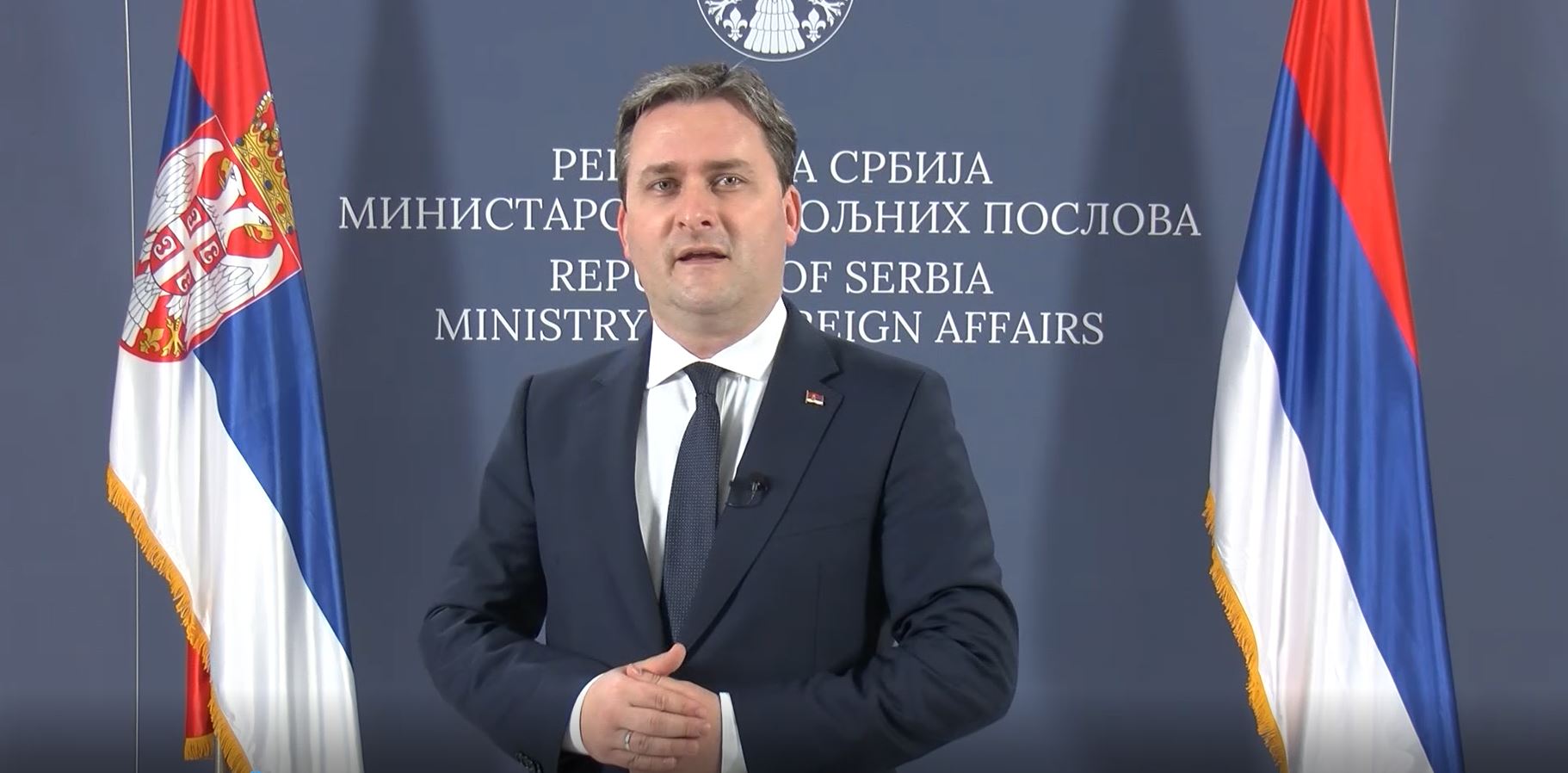
Minister of Foreign Affairs of Serbia Nikola Selakovic said today that the fight against all forms of crime was a top priority of the Serbian Government and an integral part of the EU accession process.
"It is also our moral duty, in order to leave a better world for the generations to come", Selakovic said participating via video-link at the 14th UN Congress on Crime Prevention and Criminal Justice, held in Kyoto.
Miniser Selakovic emphasized that Serbia, in its Second Serious and Organized Crime Threat Assessment from 2019, identified as its goal to eliminate cybercrime, human trafficking, terrorism and irregular migration.
The Serbian Foreign Minister pointed out that our country had estabilished in a timely manner a normative and institutional framework that regulates prevention of abuse in this area, as well as that the Office of the Special Prosecutor for Cybercrime, a special court department and a special police unit were estblished.
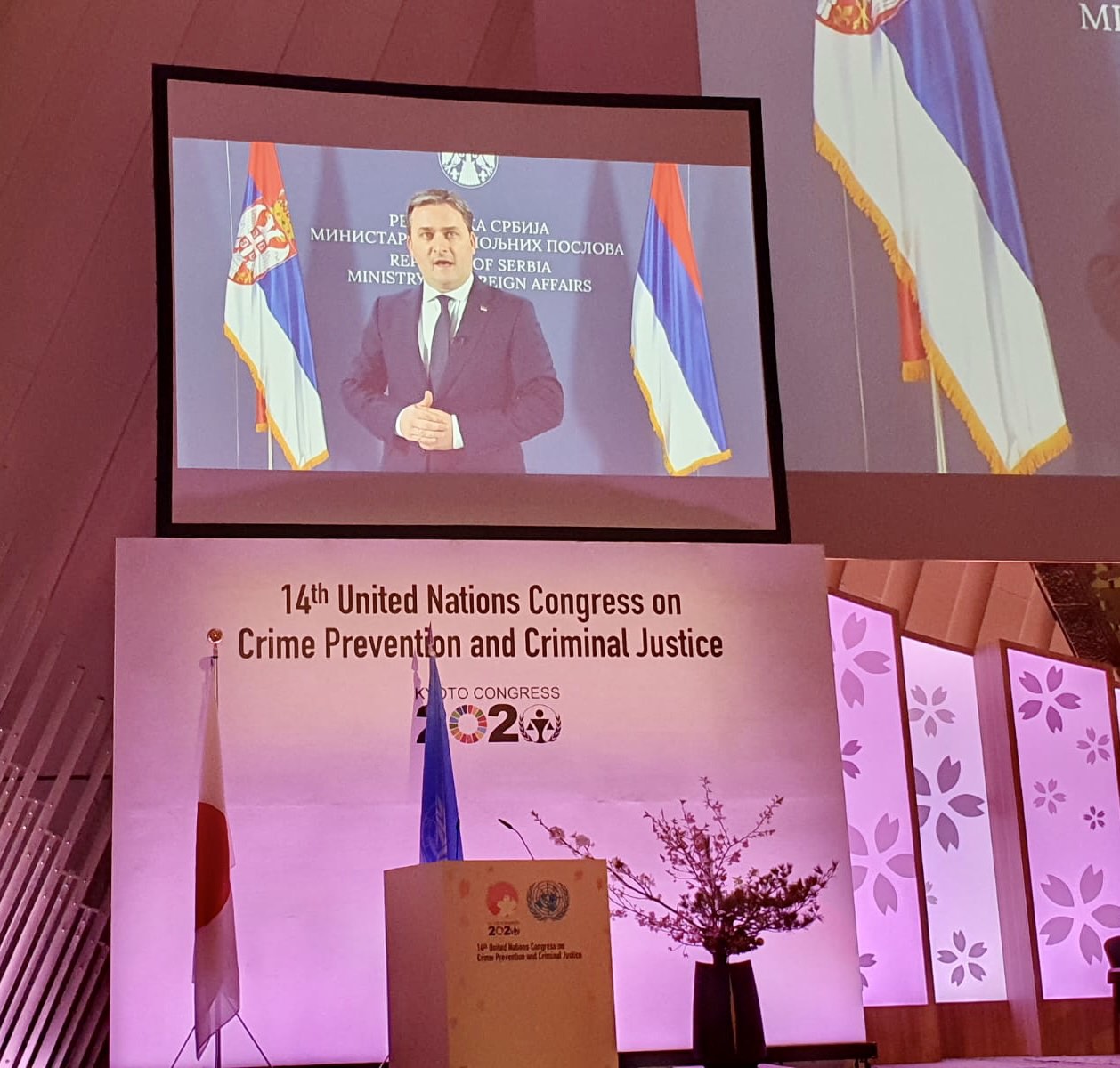
The Minister underlined that, in the field of the fight against corruption, Serbia was guided by the postulates set our in the UN Convention against Transnational Organized Crime and the UN Convention against Corruption.
Selakovic pointed out the efforts mde by the Anti-Corruption Agency, as an independent state body, to protect the public interest, build individual and institutional integraty, strengthen transparency and accountability of the public administration.
"We strongly condemn all forms of terrorism, including extremism and radicalism, and call for them mto be fully eradicated, while implementing the relevant UN resolutions and conventions and the UN Global Counter-Terrorism Strategy", the Head of Serbian diplomacy underscored.
In order to combat thes complex phenomena efficiently and successfully, Selakovic said, it was of vital importance to build capacities of our societies and states, while exchanging experiences at the regional and global levels.
Minister Selakovic thanked Japanese Ambassador Hikihara for the skill he showed in conducting the talks on harmonizing and adopting the Kyoto Declaration, which, as he strssed, was an important indicator of the commitment tocreating and maintaining the institutional framework for crime prevention as one of the main preconditions for promoting sustainable development goals.
"Back in 1970 when Japan hosted this event for the first time, we demonstrated strong political will to draw attention to the problem. Today, it is incumbent uapon us to feaffirm this willingness and resolve and translate it into concrete steps", the Serbian Foreign Miniser said. |
|
|
| 18 February 2021 - Metropolitan Porfirije of Zagreb and Ljubljana elected as the new Patriarch of Serbia |
|
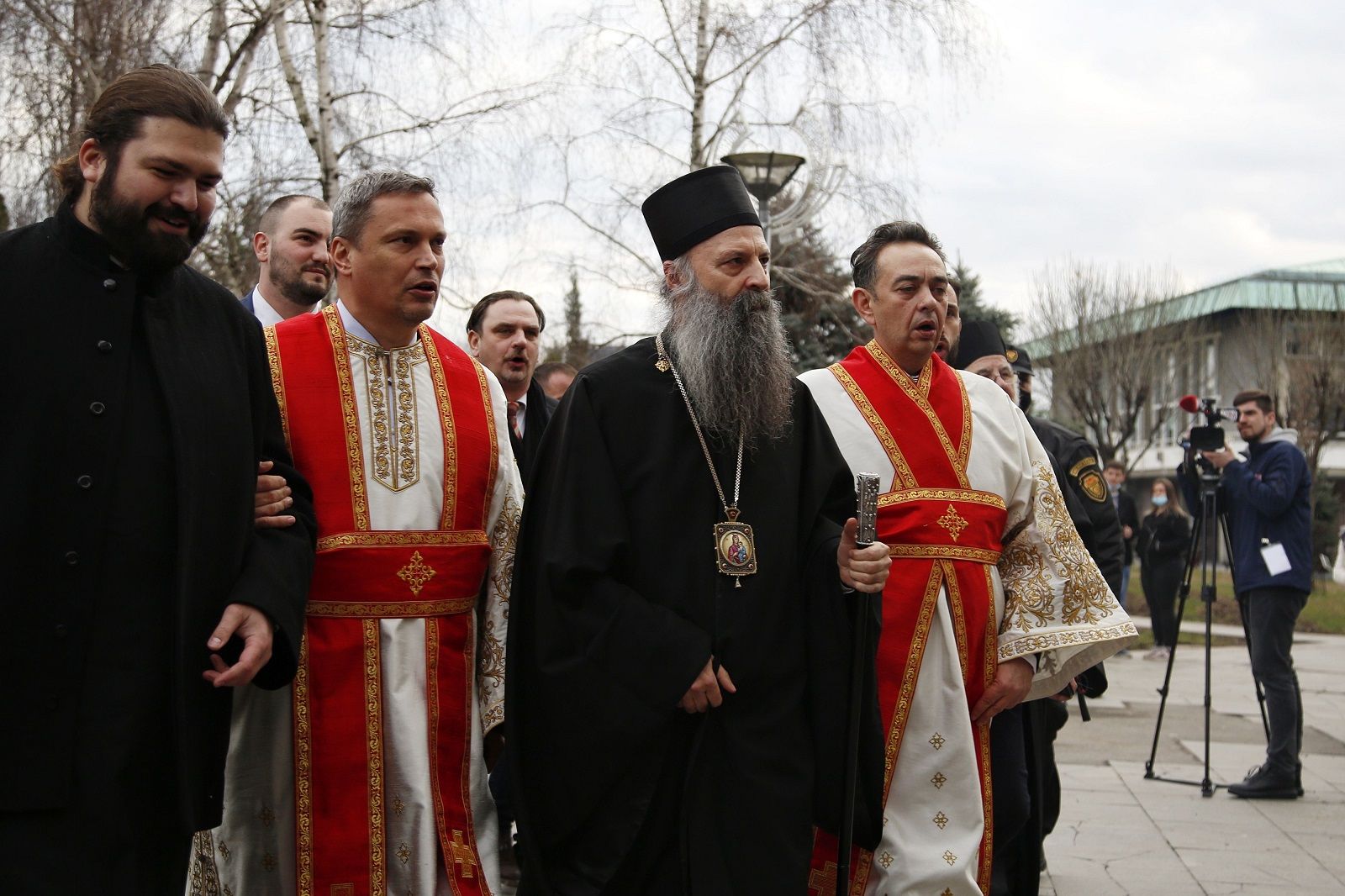
The Holy Assembly of Bishops of the Serbian Orthodox Church elected His Eminence Metropolitan Porfirije of Zagreb-Ljubljana, PhD, as the new Serbian Patriarch, in its convocation in Memorial Cathedral of Saint Sava in Belgrade on 18 February 2021.
Immediately after the election a thanksgiving service was officiated and Many Years was chanted to the Archbishop of Pec, Metropolitan of Belgrade-Karlovci and Serbian Patriarch Porfirije. Bells at Saint Sava Cathedral in the Vracar district of Belgrade rang a few minutes before 4:00 pm indicating that the 46th Patriarch of Serbia was elected.
Newly-elected Archbisop of Pec, Metropolitan of Belgrade-karlovci and Serbian Patriarch Porfirije (Peric) was born on 22 July 1961 in Becej, to father Radivoje and Mother Radojka. He was baptized as Prvoslav. He finished primary school in Curug, and the "Jovan Jovanovic Zmaj" Grammar School in Novi Sad. He was ordained a monk according to the rite of smal schime by his spiritual father, then hieromonk Dr. Irinej (Bulovic), at Decani Monastery on Sunday of St. Thomas in 1985.
He graduated from the Faculty of Orthodox Theology in Belgrade in 1986, when the then Bishop of Raska-Prizren Diocese, future Serbian Patriarch Pavle of blessed memory, ordained him a hierodeacon at the monastery of Holy Trinity in Musutiste.
He attended postgraduate studies in Athens from 1986 until 1990. That year, upon the blessing of Bishop Dr. Irinej of Backa, he joined the monastery of Holy Archangels in Kovilj, where he was ordained as hieromonk and became its abbot.
Many young monks and novices came to the monastery following him. These were the years when the Kovilj Monastery became a spiritual center for many young people: intellectuals, artists, popular actors and rock musicians, especially from Novi Sad and Belgrade. Since then abbot Porfirije has particularly dealt with drug-addicted patients. In 2005, he formed for this purpose a therapeutic community called "The Land of the Living", which is recognized as the most successful drug-addiction therapy project and, under the leadership of Bishop Porfirije, it has more than a hundred residents in camps throughout Serbia today.
During the ordinary meetig of the Holy Assembly of Bishops of th Serbian Orthodox Church in Belgrade on 14 May 1999 he was elected as Bishop o Jegar, Vicar of the Diocese of Backa.
He defended his PhD thesis Possibility of knowability of God in St. Paul's understanding according to the interpretation of Saint John Chrysostom at the Faculty of Theology of the University of Athens in 2004.
He became a lecturer at the Faculty of Orthodox Theology - Department of Pastoral Psychology - succeeding famous psychiatrist, academicain Dr. Vladeta Jerotic. His lectures have been attended not only by students of the Faculty of Orthodox Theology, but other Belgrade faculties as well.
Together with a group of experts: psychologists, doctors, criminologists, sociologists, Bishop Porfirije founded a civic association that deals with the resocialization of victims of destructive religious sects and cults.
Bishop Porfirije has not been just president of the Steering Board for a decade,but a real spiritus movens of the HumanitarianFund "Privrednik", which has provided scholarships for a great number of gifted, but poor pupils and students, regardless of their nationality or religious affiliation.
In 2005, the National Assembly elected him as representative of all Churches and religious communities, to be a member of the Council of the Republic Broadcasting Agency, and in 2008 the RBA elected him its president. As President of the Council of the Repubic Broadcasting Agency, Bishop Porfirije supported the long-term interests of society and citizens, unaffected by political influences.
Since then, church radio stations have been heard in the broadcasting spectrum of Serbia. He has made a key contribution to launching of a series of radio and television shows dealing with religious topics.
In 2010, The Holy Assembly of Bishops entrusted him to establish military chaplaincy in the Serbian Armed Forces. The fruits of his labour in that field include not only the suitable legal regulations, but also the selection of military chaplains, the organization and equipping of churches at barracks and performance of the first religious services.
His expert theological work Bishop Porfirije published in magazines both in Serbia and abroad. He participated in a large number of scientific conferences and symposia across the glob.
Bishop Porfirije, as one of the most prominent contemporary Serbian clergymen and intellectuals, has an extremely wide circle of friends, not only in the Homeland, and he fosters personal friendship and close cooperation with priests and representatives of other Churches and religious communities
He speaks Greek, English, German and uses the Russian language, while his style of communication si always adapted to his nterlocutors.
He was enthroned as the Metropolitan of Zagreb and Ljubljana on 13 July 2014 in the Cathedral Church of the Transfiguration of the Lord in Zagreb. The solemn Hierarchal Liturgy was served by Serbian Patriarch Irinej, accompanied by a large number of archbishops of the Serbian Church and other sister Churches, as well as priests and monks, and pious people.
Source: SPC/Serbian Orthodox Church |
|
|
| 15 February 15th 2021 Happy Statehood Day of the Republic of Serbia |
|
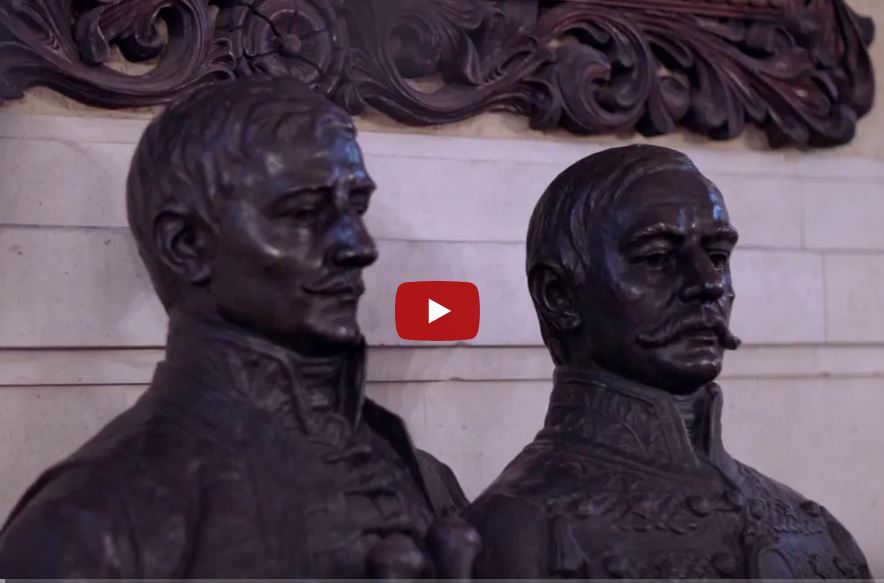
In the Republic of Serbia, February 15 is celebrated as Statehood Day. You can watch the film on its historical background here .
|
|
|
| President Vucic: Serbia is ready for dialogue on Kosovo and Metohija, but will refuse being humiliated |
|
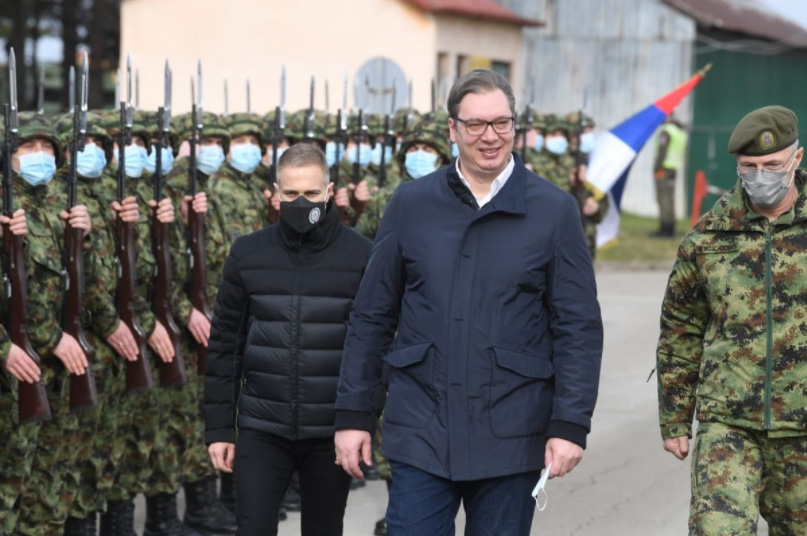
President of the Republic and Supreme Commander of the Serbian Army Aleksandar Vucic attended a demonstration of capabilities of one part of Serbian Army units in the "Rastko Nemanjić" barracks in Pancevo. On this occasion, President Vucic stated that Serbia was ready to continue the EU-facilitated dialogue with Pristina at anypoint, while respecting also the position of the United States as well as the positions of Russia and China.
The President said that he would rather put his "hed on the chopping block" than sign any document with a recognition and reminded that he had already once refused to do so in Washington, where there were two versions of the agreement.
He stated that he immediately had his delegation leave the meeting, that he tolod the U.S. delegation that Serbia would not sign such an agreement, while conveying that Serbia would alway endeavour to hold peaceful talks in order to preserve peace, but that it would not take any humiliation.
The Serbian President thanked the U.S. President Joe Biden for the letter of congratulations on the occasion of the upcoming Statehood Day, in which, in addition to the usual emphasis on commitment to promoting economic cooperation, regional stability and democratic values, he unequivocally called for mutual recognition of Serbia and "Kosovo" as a result.
Mutual recognition between Serbia and "Kosovo" is not part of any act of any world organization, the President pointed out and reiterated that Serbia was ready to continue the EU-facilitgted dialogue with Pristina at any point, while respecting also the position of the United States as well as the positions of Russia and China.
According to the President, the situation is difficult and will only be increasingly difficult.
"As I told you three days ago, I can see it and I expect it, I can see the situation slowly tightening, because the conflicts between them at the global level have been increasing and intensifyng, and then we have to pay the price", Presidet said.
President Vucic said that said that it was up to our state to continue strengthening the country in the economic sense.
The Presidet added that the role of thearmy was very important in the highly complex security and political conditions of the modern world, and that was why Serbia needed to do everything it could to deter any potential aggressor ond attacks on citizens and the country.
"The policy of strengthening the armed forces will continue at a faster pace", the Presidet emphasized, adding that the goal was for the Serbian Army to play a stabilizing role with regard to the political developments in the region.
According to him, it should be clear to everyone that Serbia was not a punching bag and that not everyone could attackk and threaten it like it was the case in the past.
Vucic said that he was pleased with what he saw and that a lot had been done in the prvious period, pointing out that the salaries of military personnel would be significantly increased as of April.
President Vucic also stated that investments in the Serbian Army would continue, whom he told that he expected the Army to continue to be the guardian of our country, its integrity and freedom.
"We expect you to be the guardians of our country, its integrity and freedom, the defenders of our people, the guardians of the homeland, the protectors of the interests of the state of Serbia and to be a deterrent factor for every aggressor and anyone who might consider attacking Serbia", Vucic said.
The military exercise called "Spearhead" demostrated the capabilities of the 72nd Special Operations Brigade, and the event, which the President of Serbia and the Supreme Commander of the Serbian Army assessed as very good, was also attended by Deputy Prime Minister and Minister of Defence Nebojsa Stefanovic and Chief of General Staff of the Serbian Armed Forces, General Milan Mojsilovic.
Photo: Presidency of Serbia/Dimitrije Groll
Belgrade,
7 February 2021 |
|
|
| Meeting with the Head of the Delegation of the European Union to Serbia |
|
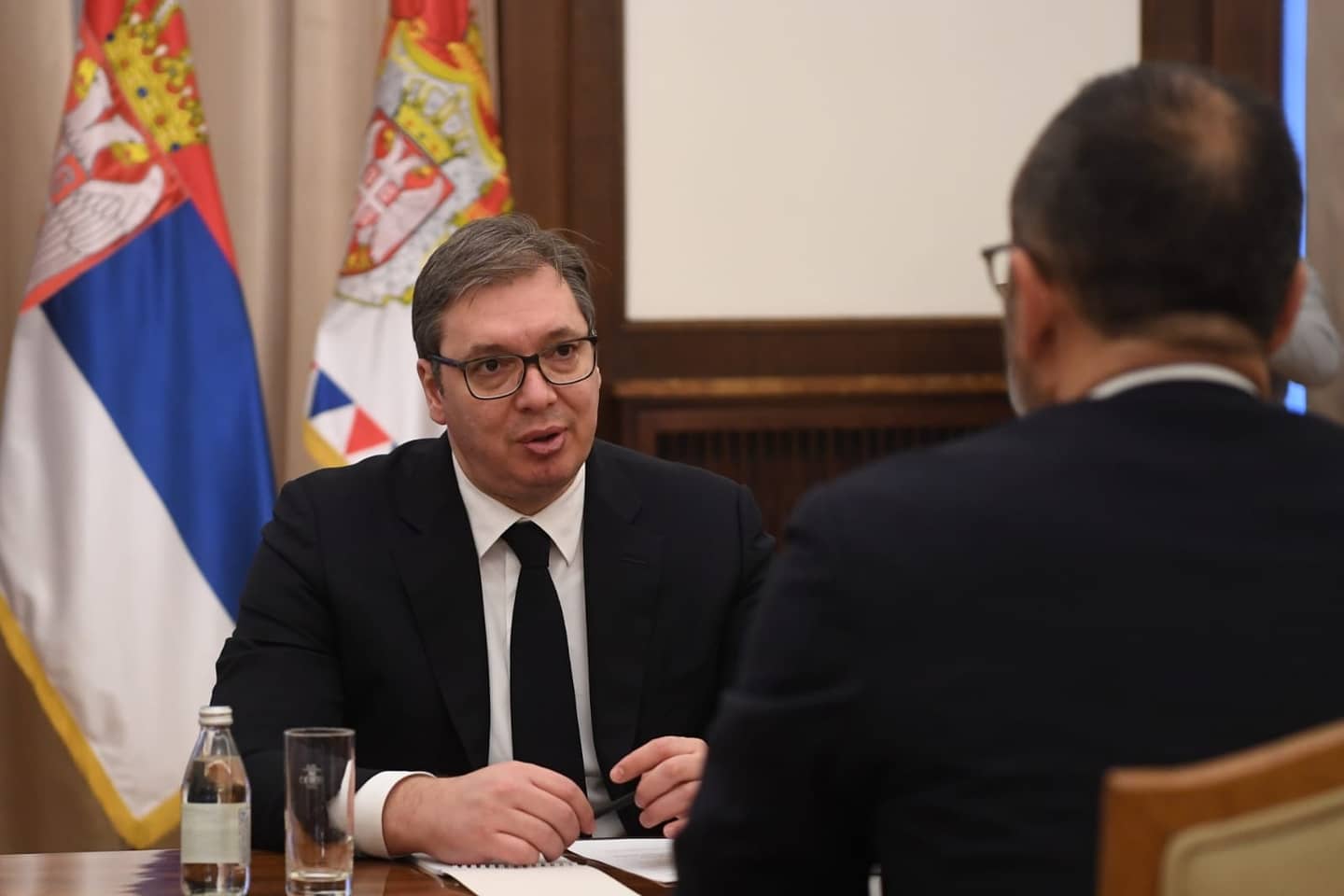
President of the Republic of Serbia Aleksandar Vučić met erlier today with the Head of the Delegation of the European Union to Serbia, Ambassador Sem Fabrizi, to discuss Serbia's European path, continuation fight against the COVID-19 pandemic, implementation of political and economic reforms, with particular emphasis on the rule of law and plans for wew EU investments in our country.
President Vučić thanked the EU for its support to Serbia in structural reforms and economic measures and the EU investments in our country. The President especially expressed hope that the first contingents of vaccines from the COVAX programme promoted by the European Union will arrive soon.
"Serbia was among the first to join this programme, thus showing once again that it is a serious and reliable partner of the European Union. I am convinced that together, with solidarity and mutual understanding, we will mnage to get our of this crisis and continue working to recover the economy," said President Vučić, adding that the EU is the most important foreign trade and investment partner of our country since two-thirds of our trade and investments are related to EU countries.
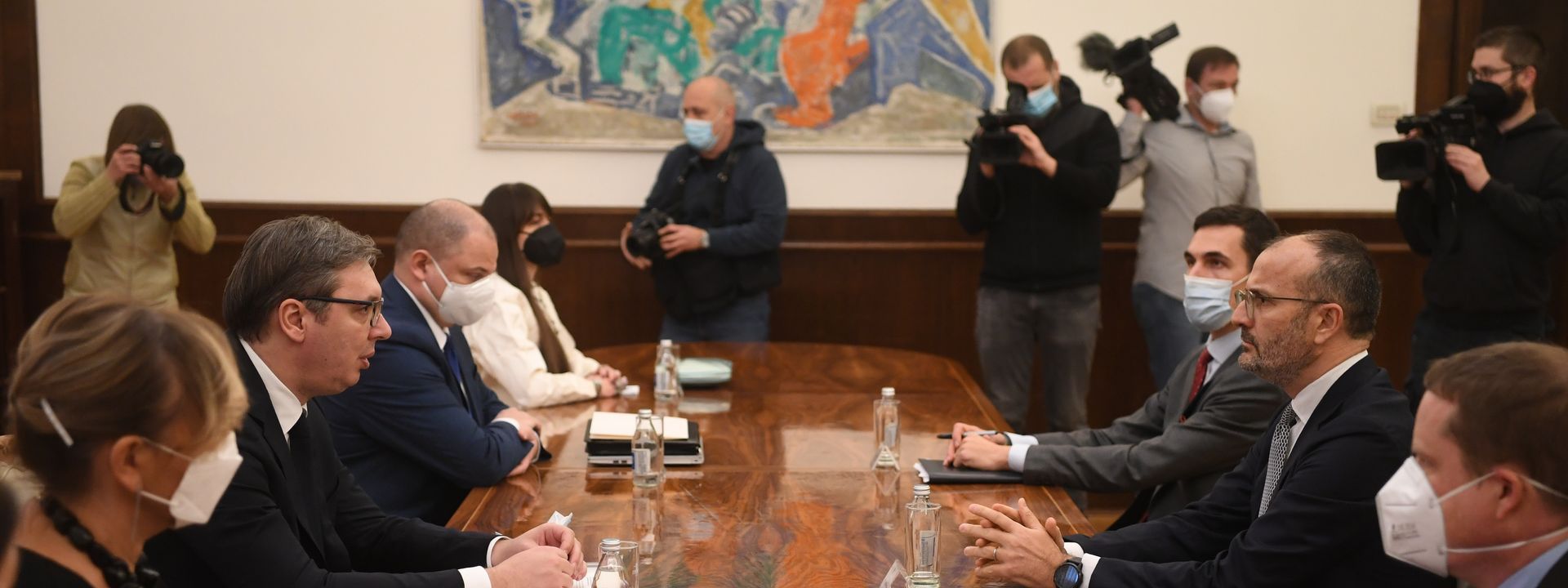
The Head of the EU Delegation, Sem Fabrizi, affirmed that the EU will continue with solidarity to the fullest extent and that it will continuously work on ensuring the distribution of vaccines both in Serbia and in the Western Balkans countries. He expressed satisfaction ith the Government of Serbia's results, especially emphasising that timely and decisive measures taken in the fight against the coronavirus contributed to maintaining the country's economic stability during the pandemic.
"Thanks to the current structural reforms, Serbia, in line with the accession process, has shown resilience to the crisis and the ability to mitigate the effects on the economy with excellent results in the healthcare area", Sem Fabrizi said, stressing that the pandemic did not afect the undoubted commitment of the Western Balkans to the EU process.
Ambassador Fabrizi also introduced President Vučić to the new head of the EIB's Office for the Western Balkans, Alessandro Bragonzi, who pointed out that it was a great honour for him o take over activities for the region at a time when it is facing such a difficult crisis.
The European INvestment Bank invested 873 million euros in the Western Balkans during 2020, which is about 50 per cent more than in the previous year. Most of the assets, i.e. 531 million euros, are in line with the European Union's priorities for increasing connectivity and has been invested in the construction and modernisation of transportation infrastructure in the region.
"Serbia will continue its outstanding cooperation with the EIB,as we are strongly committed to building an economy based on sound and solid foundations, as well as on innovation and all other projects supported by the EIB so far, which have undoubtedly contributed to our good economic results in 2020", said President Vučić and pointed out that further improvement of the health system in Serbia, development of the infrastructure network and implementation of the green and digital agenda remain key pririties of Serbia. The President also expressed hope that with the EIB's support, the planned projects will be successfully completed.
"Following this commitument, Serbia is determined to create an even more favourable business climate with additional packages of subsidies for the investors from the EU who want to invest in our country", said President Vučić.
"The European Union and the European Investment Bank, with the approach of 'Team Europe', support Serbia's strategic goals, including in the field of connectivity, environment and energy and work on priority projects such as reconstruction and construction of an additional building of the Clinical Centre of Serbia, reconstruction of the Clinical Centre Vojvodina, modernisation of railway infrastructure, gas interconnector from Bulgaria, Mir highway and Corridor 10", said Ambassador Fabrizi and expressed the EU's readiness to continue with investments that will encourage further economic growth of Serbia, which are at the heart of the new EU economic and investment plan for the Western Balkans.
He said that Serbia must continue its European parh and that further support of the Union in strengthening, adopting and implementing reforms is critical, for the benefit of the citizens.
"We will continue to work intensively on fulfilling the European agenda, aimed at opening new chapters and faster progress on the path to EU membership", concluded President Vučić.
President Vučić and Ambassador Fabrizi discussed the process of harmonising Serba's legislation with the legislation of the European Union and agreed that more energetic work is needed in the area of the rule of law.
The two interlocutors also discussed judicial reform, the fight against corruption, media freedom and the resumption of inter-party dialogue.
Ambassador Fabrizi and President Vučić confirmed the importance of continuing the EU facilitated dialogue with Priština.
Belgrade,
4th February 2021 |
|
|
| 26 January 2021 Minister Selakovic speaks for Politika: The year of rejuvenation of Serbian diplomacy |
|
.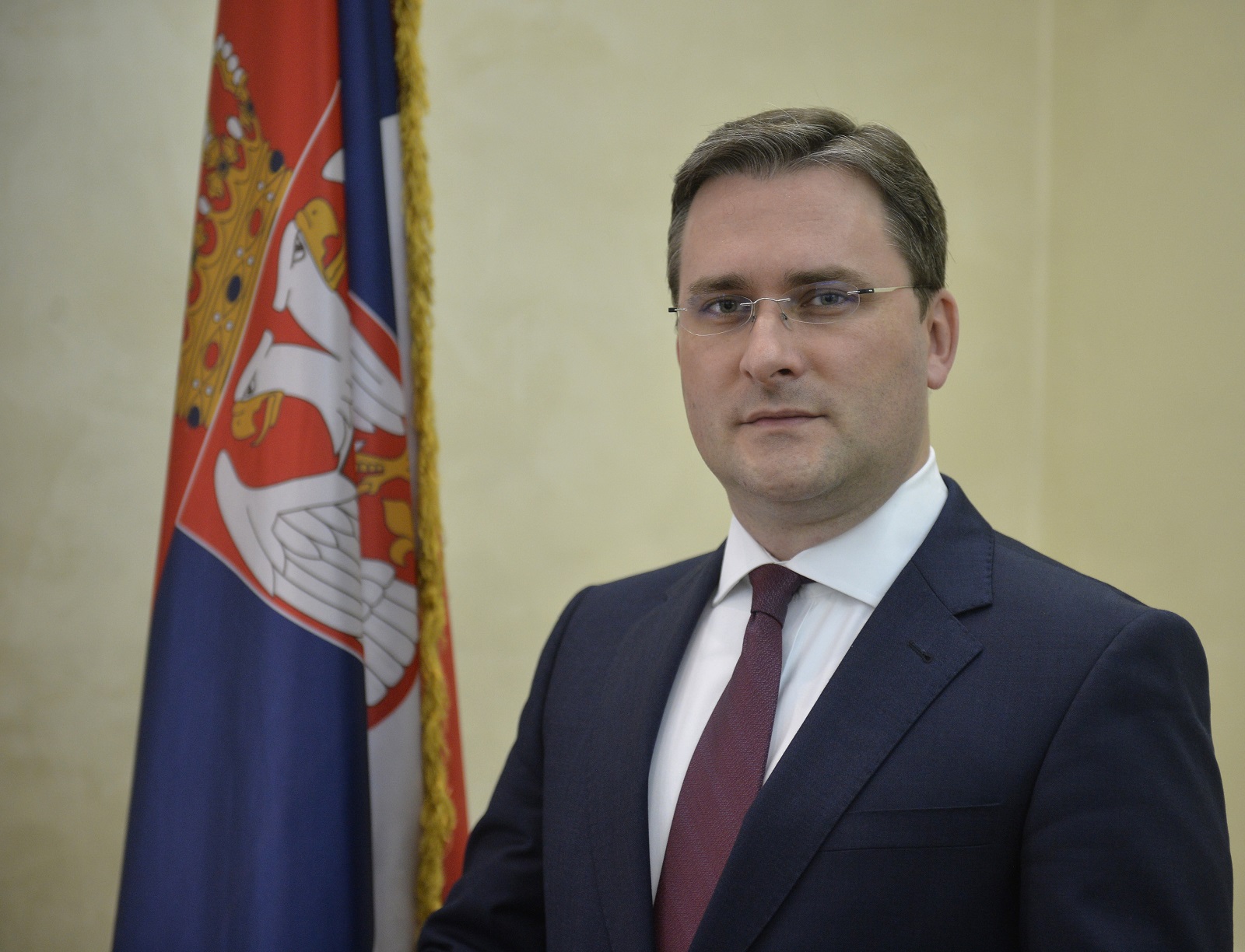
Serbia's foreign policy positions are naturally being adjusted o the new developments at the international level, but our foreigne policy priorities have not changed in a long time. Our top and most importnt interest is to preserve good-neighbourly relations and stability and peace in the region and, in the same context, to find a peaceful and just solution to the problems in Kosovo and Metohija, Serbian Foreign Minister Nikola Selakovic said in an interview with Politika daily.
Another lasting interest of ours is full membership of the European Union, because this isthe type of society wer strive for. At the bilateral level, our goal is to strengthen ties with traditional friend, the Russian Federation and the People's Republic of China, but also to build new partner relations with the United States. One of the most important tasks of our foreign policy is to improve the position and protect the rights and identity of our people in the region, as well as to provide various types of support to Serbs in the diaspor. All these are very important and more often than not complementary goals, Nikola Selakovic pointed out.
What kind of relations do your expect Serbia to have with the newo U.S. administration?
It is too early to speculate aboutthis in public. The new presidential administration in Washington is currentyly preoccupied with internal issues and this will be the case for some time. There are people in the team of President Joseph Biden who have dealt with our region, and it is likely that the Balkans and Serbia will be the focus of the U.S. foreign policy at some point. I will remind you that President Vucic and President Biden not so long ago had very substantive talks in Belgrade, after which our President stated that he had the opportunity to talk to someone extremly well acquainted with the situation in this part of the world and an extraordinarily prepared interlocutor. Taking their personal relationship into account, but also the importance of enhancing the ties between Serbia and the United States will be influenced by the fact that Ambassador Marko Djuric now represents us in Washington, whose presence at President Biden's inauguration ceremony is an important signal and, I believe, a harbinger of positive developments in bilateral relations between our two countries.
How would you describe oru country's relations with Moscow, Brussels and Beijing?
Russia is our traditional friend and that friendship goes beyond merely political ties. These are deep spiritual, cultural and civiliyational bonds, and it is only natural that we have a mutual interest in improving those ties, even though they are at a very high level. We have a relationship with the People's Repubic of China which is, in addition to the sincere iron-clad friendship between our peoples and high political representatives, base on deep trust and mutual support. Full membership of the European Union is Serbia's strategic orientation that all our friends are awere of, but our contry does not forget its friendships, but strengthens and promotes them instead, and approaches all with honesty and no ulterior motives. In this context, we do not seek any preferential treatment, but only the right t freely and independently make decisions about our future and relations with all who respect us.
Could Serbia pursue a different foreign policy than the one it is pursuing at the moment?
It is always possible to have a different policy, just look at the foreign policy of Serbia ten, twenty or thiry years ago, examine the results at that time and your will realye how irretrievably expensive that policy turned out to be. Whether a policy is right, at either foreign or domestic level, is measured through its results and effect on the lives of citiyens and the fate of the entire state.
Our foreign policy priorities are not being defined on a whim, but are instead the result of a improve it. Today, Serba has a better international reputation and credibility than two decades ago, and the main reason for that is that our results have shown how serious and responsible we are as a country. That kind of credibility is not achieved by trickery, but only by hard and well-thought-out work on oneself. And I need to emphasiye on this occasion as well that the main inspiration for such and attitude towards politics, the state and its future comes from none other than President Aleksandar Vucic. As Minister of Doreign Affairs, I have the opportunity on a daily basis to see the level of appreciation and respect President Vucic enjoys beyond the borders of our country.
When can we expect the vacant posts of Serbian ambassadors and consuls across the globe to be filled?
That is one of the main tasks for 2021. This will be a year of reinvigoration and I believe also rejuvenation of Serbian diplomacy. Our country, given its size, has a fairly extensive diplomatic network, which provides it with great opportunities for deepening political and economic relations with countries in all parts of the world. But we need more fresh and energetic staff, people who will be the most honourable representatives of a modern and dynamic Serbia. There are such people in Serbia, and we do need a serious rejuvenation, in order to avoid wide generation gaps in our personnel, and to lay the foundations of a modern career diplomacy.
How would you describe your relationship with Serbian President Aleksandar Vucic?
President Vucic and I are, in addition to having close and friendly relations, by virtue of the work we do and our constitutional competencies, the closest collaborators in the realiyation of Serbia's foreign policy goals. This allows me to talk to him often, and on many occasions learn a lot of new and important things. President Vucic is a man who inspires people around him with his strategic and visionary approach to politica, and I am proud to have had the opportunity to be part of his closest team of associates over the years, and to have had him as a kind of political mentor. In any case, his vision of Serbia as a modern, progressive and prosperous state, which independently and on its own will decides on its destiny, is my wish as well and key motivation for political engagement. For only such Serbia is a country that its own citiyens, as well as Serbs beyond our borders, can confidently rely on, while also being an inspiration to the entire region.
Source: Plitika |
|
|
| President Vucic: Serbia is the first in Europe in terms of growth |
|
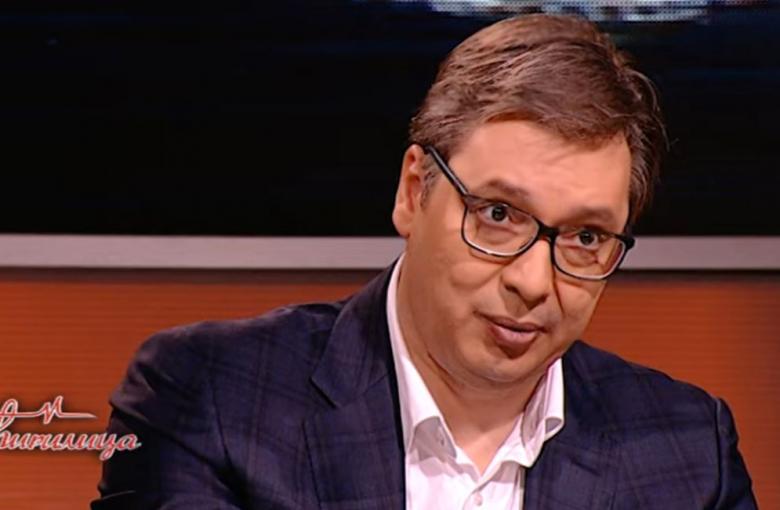
Serbian President Aleksandar Vucic pointed out taht Serbia is the firs in Europe in terms of economic growith, which will be officially confirmed at the end of March, and that this was possible owing to the reform measure taken since 2014 and the rapid openning of the country after the first wave of corona virus.
The President pointed out that Serbia had a growth of 5.2 percent in the first quarter, while the Eurozone was at minus 3,2 percent, in the second quarter Serbia had a growth of minus 6,3 percent, while the Eurozone was at minus 14.7 percent, and in the third quarter, when the Eurozone was at minus 4.3 percent, Serbia's figure was only minus 1.4 percent.
Vucic stated that Montenegro, for example, recorded as much as 26 percent minus in the third quarter.
Furthermore, the President emphasized that hospitals were built and renovated in our country, and that two hospitals were built from the ground up in just for months.
He said that the state made significant efforts to procue respirators, masks, gloves, protective suits, medicines, everything that was needed, and pointed out that work was being done on 10 general hospitals throughout Serbia, adding that all these were major achievements that were anly possible owing to the success of the 2014 reforms, the enactment of the Labor Law, which yielded excellent results, and also through fiscal consolidation measures.
"These are unprecedented results for Serbia. Was Serbia ever before the first in Europe in terms of growth rate? We will get the results on 31 March that will confirm that Serbia is number one in Europe. All that was possible thanks to people who believed in difficult changes ", Vucic said.
According to the President, this year, as many as six highways will be built in Serbia at the same time, and in this regard, ge noted that Bulgaria has announced that the highway from our border to Sofia will be completed by the end of the year, after which it will be possible to use motorway to travel to Istanbul, which is very important to ensure that our country is on a transport route.
President Vucic emphasized that in 2020, the so-called year of corona, our country had a net inflow of foreign direct investment amounting to EUR 2.9 billion net, and three billion gross, which means that many foreign companies such as Toyota Tires, Boysen, ZTF and Brose have invested in Serbia even in this year of crisis.
The President said that Serbia has the highest average wages in the region, amounting to 511 or 512 euros, and that in February, due to the January increase, the average wage will be 535 or 536 euros, and that only in Belgrade in the last seven years the average wage increased by 180 euros or 40 percent.
That President said that Serbia was fourth in the region in terms of salaries before, and that today we are officially the first, and that the difference in relation to other countries will only increase faster. He also pointed out that the employment rate is growing in Serbia as well as that our public debt increased less than in most European countries. This is illustrated by the data that in Italy the public debt surged to 156 percent, in Germany to 87 percent, in France 114 percent, in Croatia to 88 percent, while in Serbia it is at 57 percent.
The Serbian President announced that by Sretenje, 15 February, an additional package of assistance to the economy will be earmarked, and as he explained, it will be a new capital injection for companies, the trade, entrepreneurs, small, medium and large enterprises which, as he said, concerns 1,052,000 people within that system.
Vucic specified that it will most likely be help in the form of two or three payments amounting to half a minimum wage each, and that there will also be sectoral aid for tourism, hotel owners, travel agencies, guides, for bus carriers, through another half minimum wage payment.
The President added that efforts will be made to extend the guarantee schemes as well, which proved to be excellent, amounting to 1.5 billion, and this time, through the same system, two more portions amounting to 500 million each could be provided.
Vucic said that the first agreements with DFC worth 300 to 400 million dollars are expected in seven days.
He also stated that the state will endeavour to help pensioners further, in addition to increasing pensions by 5.9 percent in January, which will be reflected in their first checks in February, and added that pensioners should by March receive symbolic aid in the form of packages with vitamin C, D and zinc, which, as the President said, are small things, but they reflect the state's care and efforts made to protect health.
The President announced that negotiations on the procurement of the Chinese vaccine would be completed in the next seven to eight days, after the first quantities of the Pfizer and Sputnik V vaccines have arrived in Serbia, and pointed out that the Chinese vaccine was of exceptional quality, but probably the most expensive, which is why he wrote to the Chinese President and asked for a discount for our country.
Vucic thanked Americans for deciding to sell the vaccine to our country and noted that no one in the region other than Serbia has received it, except for the small quantity that Albania got.
He pointed out that our state relied on itself and its own capacities, and that our state leadership anticipated that vaccines within the European COVAX plan would arrive late.
The President rejected the claims about bad results of Serbia in the fight against the corona virus and stated that our country has recorded the lowest corona virus mortality rate in the region.
He presented statistical information indicating that Slovenia had 144 deaths per 100,000 inhabitants, North Macedonia 126, Bosnia and Herzegovina 123, Bulgaria 115, Montenegro 115, Hungary 110, Croatia 107, Romania 85, and Serbia 51.
"The mortality rate in the region is as follows: Bulgaria 3.9, Bosnia and Herzegovna 3.7, Hungary 3.11, North Macedonia 3.03, Romania 2.48, Slovenia 2..15, Croatia 1.99, Montenegro 1.4, and Serbia 1.0. This can be seen in the graphs and is no fabrication", the President stressed.
He said that the state will fight for vaccines, and that only Serbia, in the Western Balkans, received significant quantities of vaccines, other than a smaler quantity that Albania received, and added that in one day since the registration for vaccination opened, as many as 63,000 persons have registered.
President Vucic expressed his belief that the year ahead will be better than the previous one as well as that the corona virus will be defeated through vaccination of citizens.
Belgrade,
12 January 2021 |
|
|
| 2 January 2021 Minister Selakovic: New ambassadors will be appointed this year, but the goals remain the same |
|
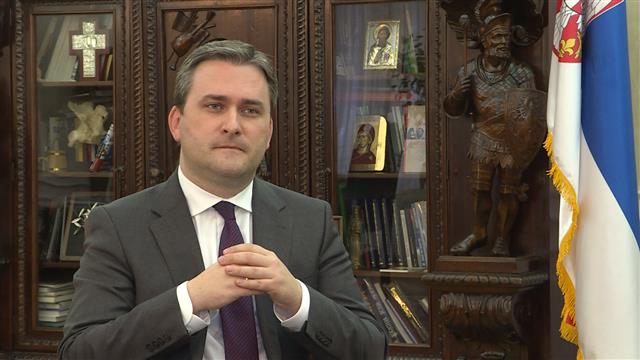
This year, Serbia could finally have Ambassador and Consuls General appointed to about a third of the currently vacant positions in the country's diplomatic and consular missions in the world, and Minister of Foreign Affairs Nikola Selakovic is convinced that most of these positions will be filled, as he points out, by the best possible people.
''In the next year, I am convinced that the majority of these vacancies will be filled'', Selakovic told Tanjug, emphasiying that the work is being done gradually, becaause the state wants to show that is has a quality staff who will represent Serbia's interests in the best possible way.
The Head of Serbian diplomacy reminded that in a number of diplomatic missions, the four-year mandate of Ambassadors and Consuls General has already expired, so that the procedure for appointing new ones will follow, after their recall.
One of the ''vacant'' spots is the post of the Serbian Ambassador to China.
''We are working hard to find the best possible solution for our new Ambassador to China and as we appointed one of the best people in the state system as Ambassador to the United States, who, I am sure, will perform his duties in the best possible way, I am convinced that it will be the same for the Amassador in Beijing'', Selakovic said.
The Minister, who took over the foreign policy sector in the Government a little over two months ago, p;oints out that circumstances in the world, as well as Serbia's position in it, have changed, but that Serbia's foreign policy goals do not change: the country remains strategically committed to European integration and, while pursuing the EU path, it will also strengthen traditional friendships with Russia and China, as well as promote and strengthen new partner relations with the United States.
''Relations in the region, good-neighborly relations, regional cooperation are also important for Serbia, because this fits into the set of requirements on the European path. But, even regardless of the European path, it is always important who you live next to, who you live with, what your neighbors are like and what the relations are like in the neighborhood'', Minister Selakovic said.
He also points out hat the issue of Kosovo and Metohija is of inestimable importance, it being the main national and state issue for Serbia and the Serbian people.
''When I say that circumstances are changing, but not the goals - the EU and European integration was our goal seven years ago as well, but look at what our room for maneuver was then, in terms of economic aspects, and look at it today. Circumstances changed, and then you adjust your actions to these changed circumstances, to the best extent possible'', Minister Selakovic said.
He reminds that foreign policy priorities for 2021 were also outlined by the President of the Republic, and tht maintaining peace and stability in the region is the absolute priority.
''Only in a peaceful and stable region of the Western Balkans and Southeast Europe can Serbia thrive economically, culturally and scientifically - in every respect. Peace and stability in the region are ''sine qua non'' without which there is no development and progress. Serbia has acted, is acting and will act as a factor that stabilizes the entire region and mantains peace in the region, showing that it is the region that benefits everyone the most'', Minister Selakovic said.
Relations in the region have always been complex, and the region, Minister Selakovic noted, is to our great regret, burdened with issues that we cannot have a bearing on, and which concern the past.
Serbia's approach is to seek room to influence what is happening today and what will happen in the future.
In this context, he states that the so-called ''mini-Schengen'' initiative for market unification of the region, which originated fromAleksandar Vucic and was met with a positive response from the Prime Ministers of Albania and North Macedonia, is one of the opportunities to do much more for the region.
''To show how much more we can do if we act together and if we seek our common denominatior, and not what separates and divides us'', Selakovic points out.
When it comes to relations with the United States, Selakovic said that one should not expect the great powers to change their positions the wya we would like, want or imagine, but that it is important that the Ambassador in Washington, Marko Djuric, also emphasized that his task, among other things, will be to make efforts to change the limate in bilateral relations with the United States - the most important country in the world, as our lacing communication with them in the past seriously affected te position of the Serbian people and Serbia.
''I am convinced that Djuric will work seriously on that, together with President Vucic, Prime Minister Brnabic and the Ministry of Foreign Affairs, and contribute to a large extent to changing that climate'', Minister Selakovic said.
He points out that it is extremely important for Serbia to promote its partner relations with the United States to a higher level.
''This is a country with which we cooperate closely in many areas and a country with whic we must strive,and not give up in doing so, to find what we have in commont, our common ground and good examples of our cooperation in the past, and to create space for such cooperation in the future as well'', Minister Selakovic concluded.
Source: Tanjug |
|
|
| 29 Decembar 2020 President Vucic: Serbia to remain on the course of a winning policy of stability |
|
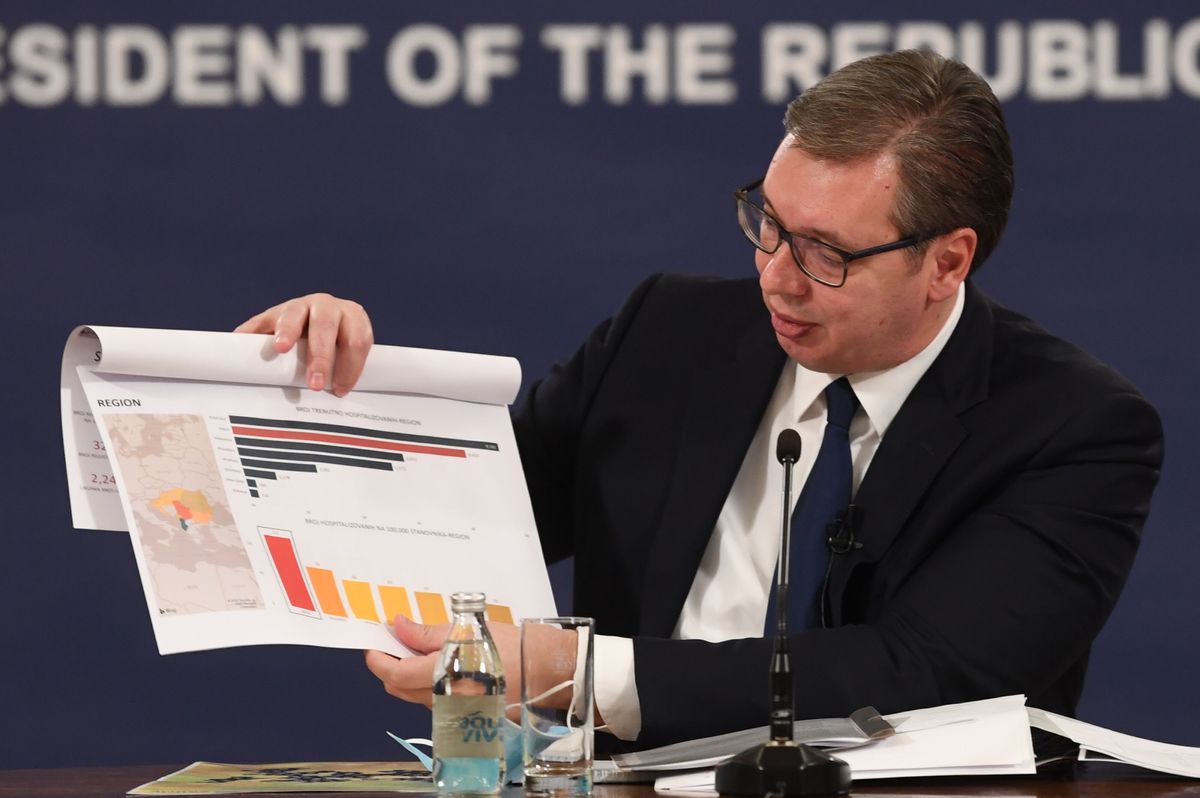
Preservation of peace, taking care of the health and better living standard are key for Serbia in 2021, underlined President of the Republic Aleksandar Vucic, convinced that even though the completion of this ambitious and by no eans easy task will be anything but straightforward, best results can be achieved by working in concert with the Government, while ensuring security and a future of certainty for the citizens.
The President said that Serbia has set for itself great and ambitious goals for the next year, notwithstanding the complex international and regional circumstances, and that it will endeavour to fully preserve peace and stability in teh region and the country, while safeguarding the vital national and state interests.
"Serbia will remain on the course of a winning policy - the policy of stability", President Vucic said and stressed that our country remains on the European integration path and that it will carefully foster its friendship with Russia and China, while building a friendship with the United States as well.
According to the President, Serbia will continue to pursue a winning policy, with the country itself as a top priority, i.e., a policy that will enable Serbia to continue being one of the top three countries in Europe in terms of growth rate in the next two years.
A precondition for that, the President noted, is to crack dow on criminal groups, but also to ensure even bigger investments in the police and army forces.
"Serbia is the country that recorded the highest growith in Europe in 2020", the President pointed out at the annual press conference and added that he expects to conclude a new arrangement with the IMF, as well as that Serbia, by the end of next year or early 2022, will rase its credit rating to an "investment" one, which will ut our country`s rating on par with the most developed EU countries.
As the greatest success in 2020, Vucic noted that Serbia will end the year with the highest growth rate in Europe, which, as he said, is expected to be from minus 0.75 percent to minus one.
"I am proud to be the President of a country that is the European champion in terms of GDP", Vucic pointed out and added that German Chancellor Angela Merkel was also pleased with Serbia`s success.
According to President Vucic, this result will encourage Serbia to accelerate its European path, while continuing friendships with thos who did not turn their backs on Serbia when it was at its darkest hour, namely Russia and China.
The President pointed out that the actvities to attract foreign investors will continue, then that work will be done on investments in agriculture, primarily the food industry, new machinery, and digitaliyation of agriculture.
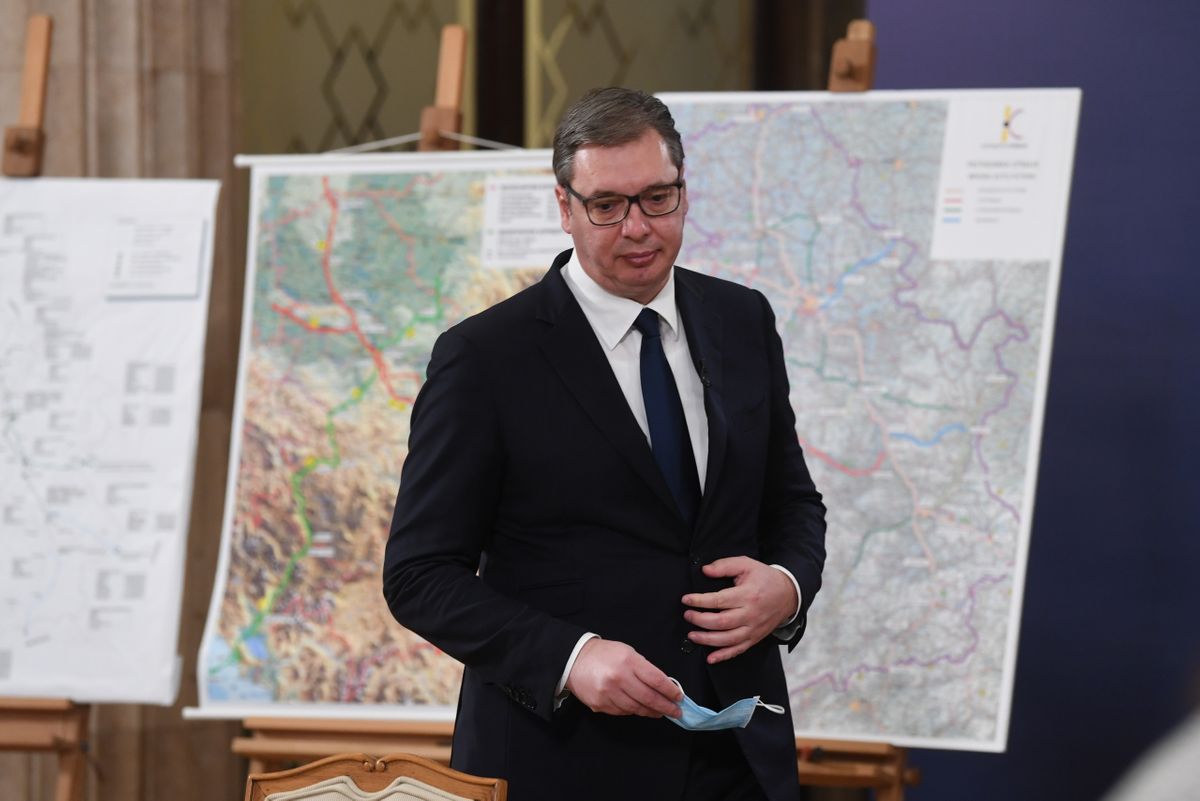
President Vucic also emphasized that the goal is for salaries in teh public sector to average between 560 and 570 euros by the end of the year. Only in Belgrade, the average salary would be around 700 euros.
President Vucic reminded that the salaries of health care workers will increase by five percent from January 1, while the salaries of others in the public sector will increase by 3.5 percent and an additional 1.5 percent as of April 1, while corporal, private first class and non-commissioned officer army ranks will get an increase of an additional 10 percent. He noted that the minimum wage will be increased by 6.6 percent and so will pensions from January 1, by 5.9 percent, with the plan that the average pension amounts to 270 euros by the end of 2021. The President especially pointed out investments in health care, reminding that two new covid hospitals have been opened and that the renovation and construction of health facilities continues throughout Serbia, while stressing that Serba is by far the first in the region in terms of hospitalized persons per 100,000 citizens, which is why it has recorded a low mortality rate, and also that Serbia this year has been among the top three countries in the region according to the number of PCR test performed.
Speaking about tourism, the President said taht, next year, efforts will be made on the development of the Danube basin region, from Apatin to Kladovo, that the Ovcar-Kablar Gorge will be developed, as well as our mountain centers.
Discussing the field of culture and information, President Vucic said that the implementaton of the media strategy and the completion of the reconstruction of the National Theater in Subotica are important for next year, and he announced investments in museums, especially emphasizing the relocation of the History Museum to the train station building. He also stated that the floor heating in the Church of Saint Sava will be completed next year.
He pointed out that the state will continue to take care of our citizens in Kosova and Metohija, that no one can forbid Serbia to help its people, and that Serbia will not give up on helping our people.
As he emphasized, Serbia is ready to send medicines and vaccines to the Albanian population as well, and pointed out that in the upcoming period our country will purse a policy of peace in the region and will endeavour to cooperatie with Zagreb, Sarajevo, Podgorica and others. |
|
|
| Serbian Prime Minister the first PM in Europe to receive a Covid-19 vaccine |
|
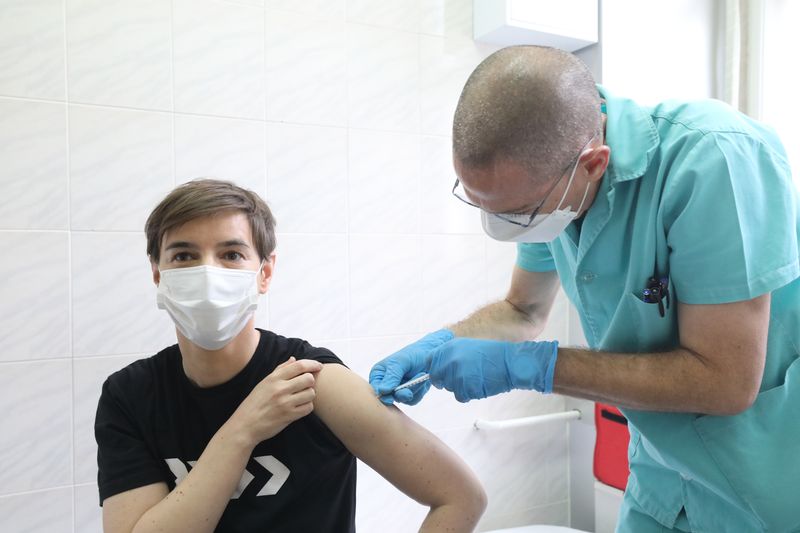
Prime Minister of the Republic of Serbia Ana Brnabic received today the first vaccine against the coronavirus made by Pfizer company, at the Torlak Institute of Virology, Vaccines and Sera.
Babic, who is the first European Prime Minister to receive the vaccine, pointed out that this day may be the first since 6 March that we have a reason for a smile on our faces as it marks the beginning of the end of the coronavirus pandemic in Serbia, but also in Europe and the world.
As Prime Minister and as someone who leads the COVID-19 Crisis Response Team, I felt obliged to be the first to receive the vaccine, to show that we beleve in it, as well as in our institutions - the Medicines and Medical Devices gency of Serbia and experts who worked round the clock to test the vaccine, she said.
Underlining that it was an honour to do this for her country and be the first to pave the way for all citizens, the Prime MInister said that she agreed with President of the Republic Aleksandar Vucic that the two of them receive different vaccines, so he will most likely receive the next one that arrives, most probably the one produced by China.
At the moment we have the Pfizer-BioNTech consortium vaccine, and the vaccines from the Chinese Sinopharm are expected in the near future, as well as certain quantities of the Russian vaccine Sputnik V.
She expressed her belief that at the end of the first quarter or the beginning of the second quarter of next year we will have the vaccine of the company AstraZeneca, and after that the vaccine manufacured by Moderna.
As we promised, all vaccines licensed in their countries and approved by relevant international agencies will be available to our citiyens, and of course they will be tested by all of our agencies and institutes as well, ,the Prime Minister pointed out.
She said that prior to the vaccination of health care workers, Minister of Health Zlatibor Loncar will also receive a vaccine shot as we endeavour to serve as an example and show how confident we are in the vaccines and institutions.
Brnabic pointed out that Serbia, not counting Great Britain, is the first country in Europe to receive the Pfizer-BioNTech vaccine, and th third to start a mass immuniyation and campaign for giving the vaccine - after Great Britain and Switzerland.
We achieved something very important and we will not stop even for a moment until the immunization of the population is completed, the Prime Minister said.
She specified that our country will receive another 16.000 doses of Pfizer-BioTech vaccine in January, as well as that together with other vaccines we will have a total of one million doses in January, and a total of approximately two million doses during the first quarter of next year.
There is a dynamic on wihich Pfizer delivers vaccines and it varies depending on the productio, and this is the case with deliveries to both Serbia and all other countries worldwide. We expected to receive 10,000 doses from Pfizer-BioNTech in December, however 4,807 doses arrived, the Prime Minister explaned.
Serbia demonstrated that it is able to fight and succeed if we all work as a team, Brnabic said and called on all not to see the beginning of vaccination as the end of the fight already, but to continue to apply all measures instead.
This is to be certain and to be able to help our health care workers, and once the immunity is acquered we will be able to slowly start taking off the mask in 2021, but until then we should not see this as a victory but as the beginning of the end, the Prime Minister concluded.
After the Prime Minister, vaccine shots were also administered to the Minister of Labour, Emloyment, Veteran and Social Affairs and a member of the COVID-19 Crisis Response Team Darija Kisic Tepavcevic and to Predrag Kon who is also on the COVID-19 Crisis Response Team.
Furthermore, vaccine shots were also given to Head of the MMA Department for the Prevention and Control of Nosocomial Infections prof. Dr. Vesna Suljagic and academician Predrag Pesko, professor of Belgrade and Heidelberg universities and full member of the Serbian Academy of Sciences and Arts.
The first quantities of the vaccine arrived in Serbia on 22 December, and today they will be administered to patrons of nurisng homes in Belgrade and Novi Sad.
Serbia is the first country in the region to receive a shipment of Pfizer-BTech vaccine.
In addition to procuring the vaccine among the first countries in the world, even before EU countries, Serbia is one of the rare countries that managed to build and open two covid hospitals in record time. The hospitals with 930 beds in Batajnica and 500 beds in Krusevac are a major contribution to the expansion of capacities and strengthening the health care system in the fight against coronavirus and, as President Vucic said, represent a monument of the future, that will talk about the accomplishments the state made in a short time.
Also, we recall that investments in health infrastrucure have been large in Serbia, and since 2016, 80 health centers and clinics have been renovated, and works are underway on six large health centers. This way more than EUR 200 million was invested in the reconstruction, construction and equipping of hospitals and more than 300 million in the renovation of clinics and specialized hospitals, and many have alredy been completed, such as the University Children's Hospital Tirsova, and KBC Zemun and KBC "Dragisa Misovic" hospital.
The absolute priority of the Serbian Government is the successful completion of health infrastructure projects that are underway, but great attention is also paid to health workers, whose salaries have, by 2020, been increased by 56,8% for specialist doctors, and 66,9% for nurses, while significant funding is invested in the education of health professionals, as well as in equipment and working conditions.
Like other countries, Serbia has faced great challenges this year, most notably health challenges, and all factors in the state were focused on preventing the spread of the virus and safeguarding the lives and health of citizens. Serbia has faced these challenges better than many wealthier and more developed countries in Europe and the world.
Belgrade,
24 December 2020 |
|
|
| Selakovic with the Ambassadors of the Visegrad Group contries |
|
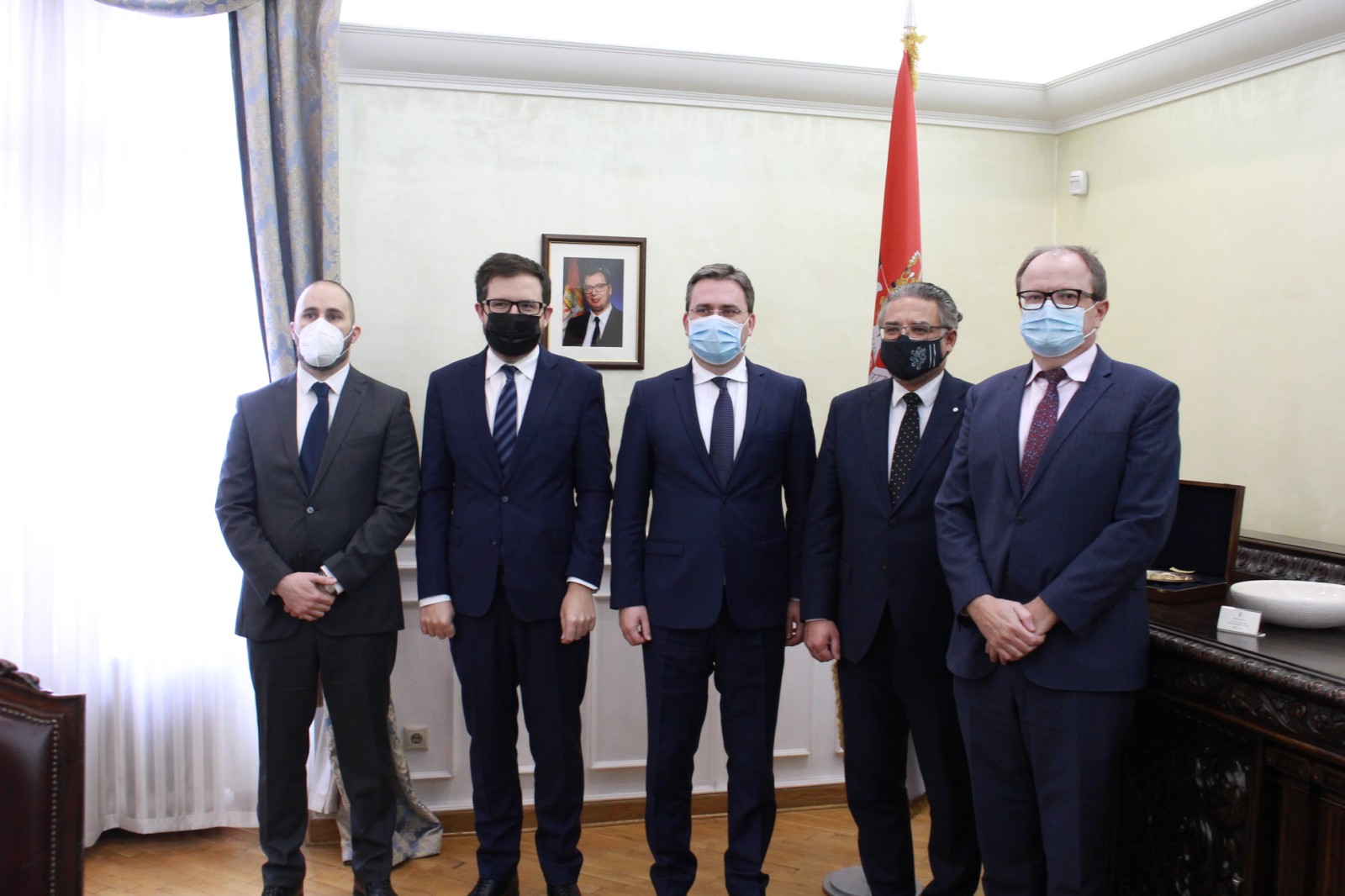
Minister of Foreign Affairs of the Republic of Serbia Nikola Selakovic today meet with the Ambassador and representatives of the Visegrad Group (V4) coutries which consists of the Czech Republic, Hungary, Poland and Slovakia.
The Miniser sad that Serbia was a constructive partner to the member states of the Visegrad Group, that meetings like today's one were very important for encouraging further activities and added that the Visegrad Group was an example of successful European integration, regional cooperation and the fight for common goals.
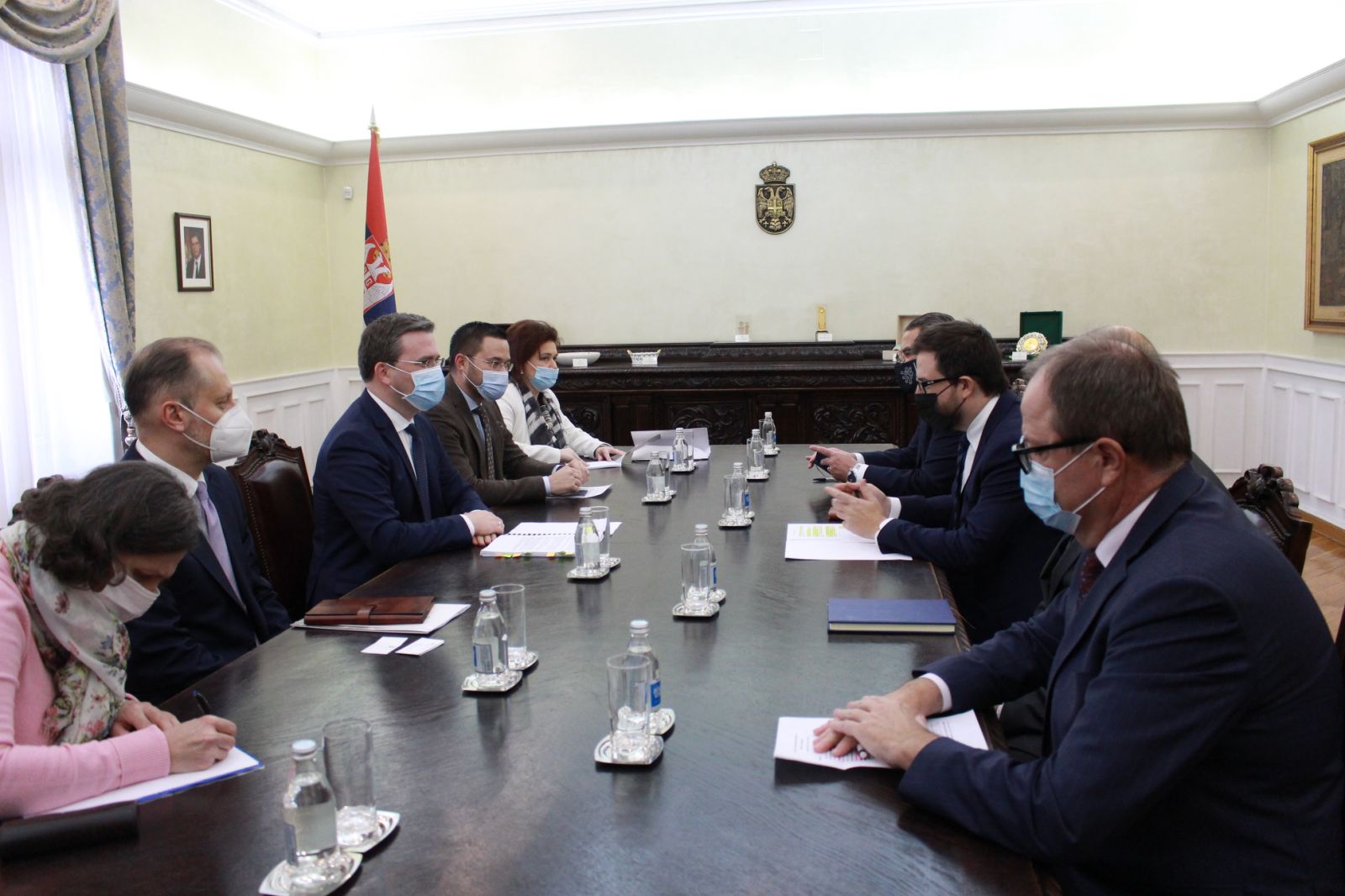
We are grateful for the strong support of the Visegrad Group member states to our EU accession path, Selakovic said emphasiying that full membership in the EU remains one of Serbia's key foreign policy priorities and that the new government's focus is on the rule of law and further implementation of comprehensive reforms.
The Minister sad that the experience of the Visegrad Group in regional association is invaluable for Serbia as it can be applied in the region of the Western Balkans within the "mini-Schengen" initiative and be useful to all member states.
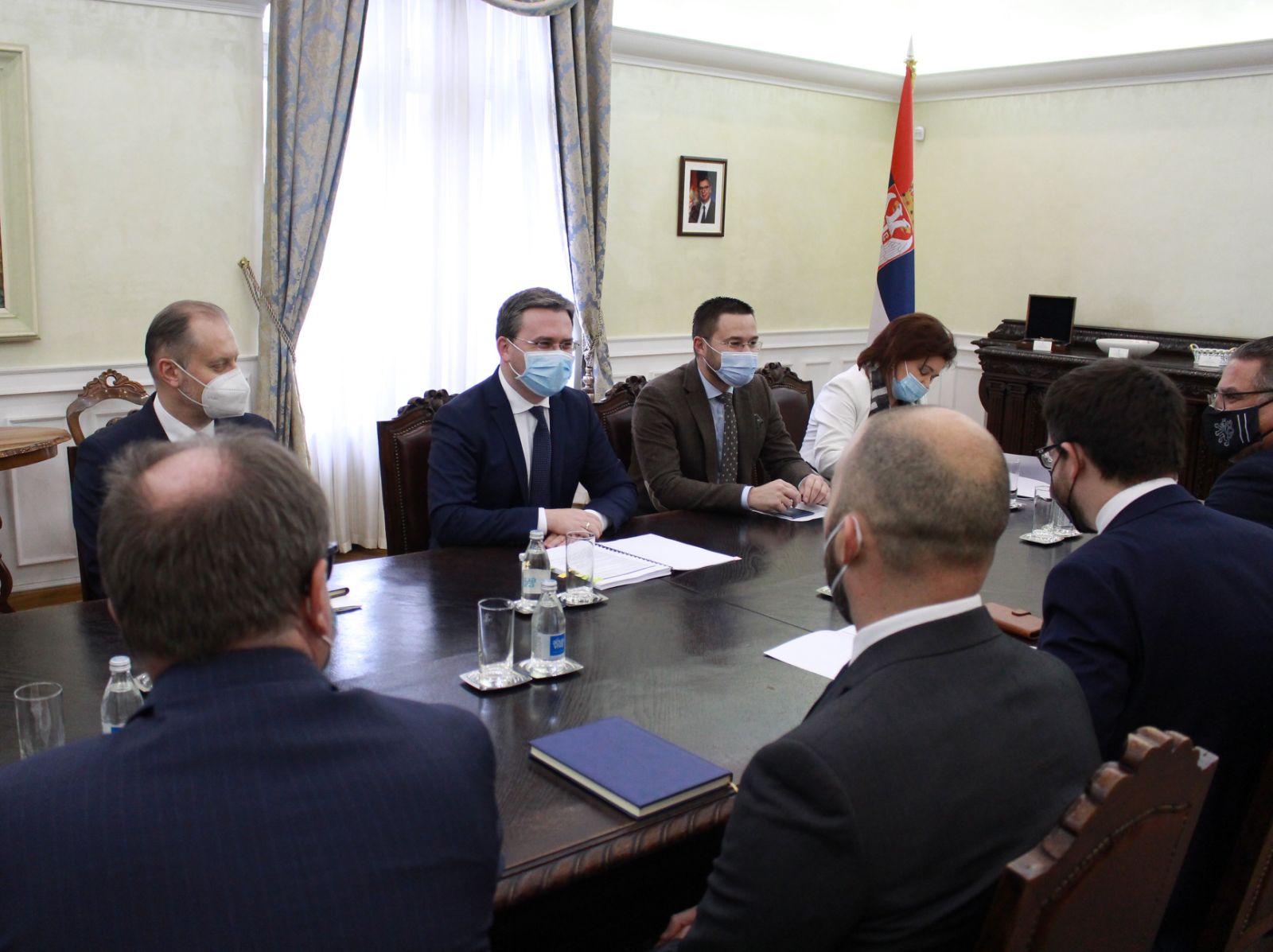
We are grateful to the Visegrad Group for the initiative to establish the Western Balkans Fond which is actively working to promote cooperation between the civil sectors as well as to improve the quality of life of the region's population, the Minister said.
The Head of Serbian diplomacy stated with satisfaction that bilateral relations with the countries of the Visegrad Group were very good and that Serbia was interested in further intensifying the political dialogue at the highest level with all member states.
Minister Selakovic pointed out that the realiyation of bilateral visits at the highest level would make a firm basis for further strengthening of our relations and that it would create new perspectives of mutual cooperation, especially in the field of economy and investments.
Belgrade,
22 December 2020 |
|
|
| Minister Selakovic: Full EU membership remains a priority of the new Government |
|
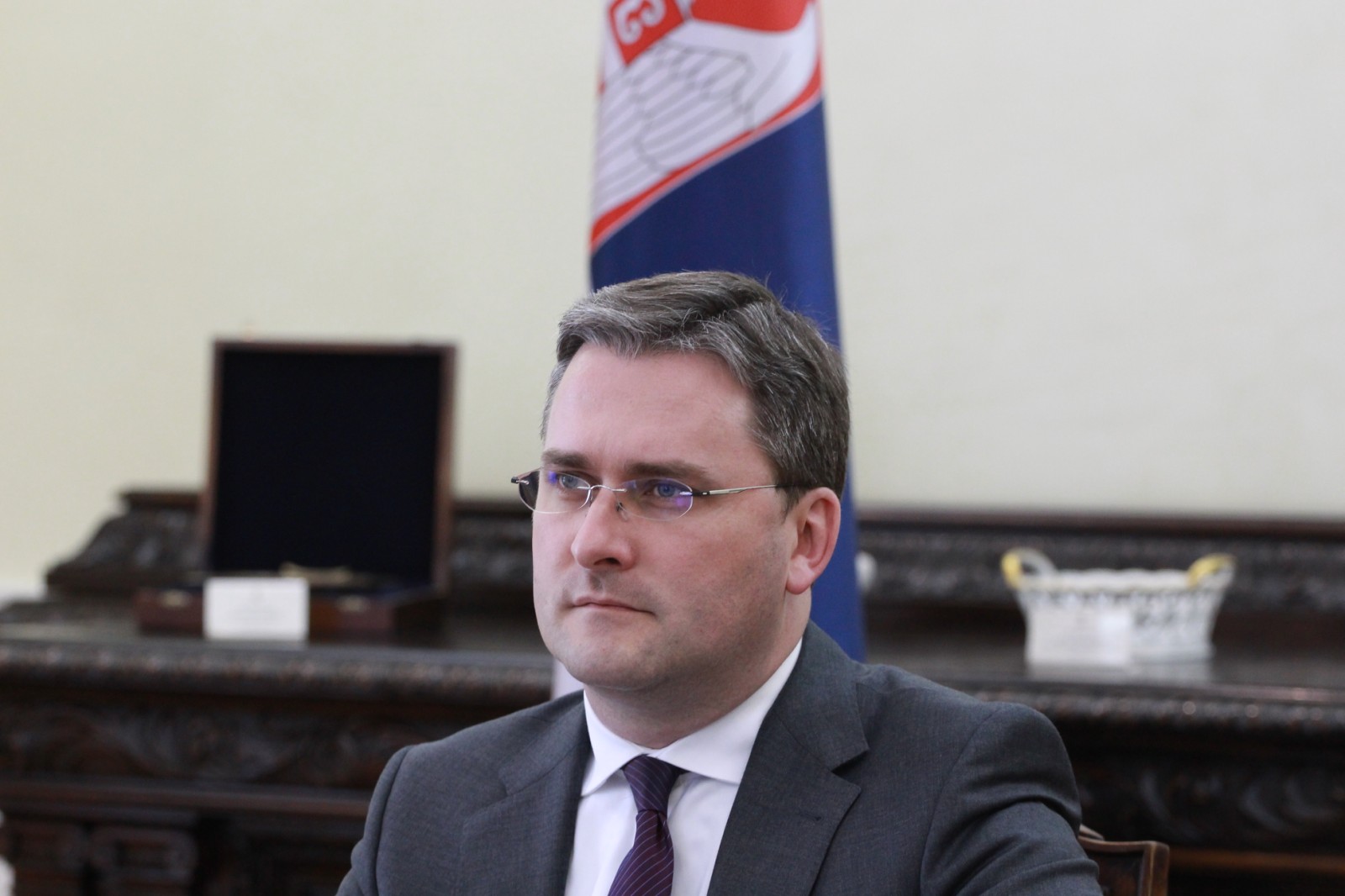
Minister of Foreign Affairs of the Republic of Serbia Nikola Selakovic had talks today via video link with Head of EU Delegation in Serbia Sem Fabrizi and Ambassadors of the EU Member States.
On this occasion, the Serbian Foreign Minister emphasized that full membership of the EU remained one of the key foreign policy priorities of the Serbian Government, and that the European integration process was a strategic goal also aimed at promoting the quality of the society.
Minister Selakovic pointed out that Serbia was ready for an acceleration of the accession process' dynamic which is why it accepted the new methodology in the first place, and that it is now hoping that it will, in the period ahead, receive clearer guidelines on its implementation in the negotiating process.
The Minister said that Serbia has taken a number of important steps forward in the reform process, wihich were not fully reflected in the European Commission's Annual Progress Report.
The Minister reminded that our country opened 18 out of 35 negotiating chapters with the EU since 2014, provisionally closing two, and that it is at this point ready to open five new chapters.
Discussing the talks between Belgrade and Pristina, Minister Selakovic noted that the only right path towards a sustainable agreement was through dialogue and compromise.
He explained that it was necessary that topics of the talks include the issues being ignored by Pristina for years, despite having committed to them under the Brussels Agreement, such as the establishment of the Community of Serb Municipalities.
The Minister added that Serbia is deeply devoted to regional cooperation and that, as an important country of the region aiming to contribute to overall stability, our side has through its steps, among others, significantly contributed to decreasing the tensions with Montenegro.
Miniser Selakovic also said that Serbia was very grateful to the EU and its Member States for the financial assistance, paricularly amid the coronavirus pandemic.
Belgrade, 16 Decembar 2020 |
|
|
| Brnabic and Borrell: Plitical and economic aspects of negotiations |
|
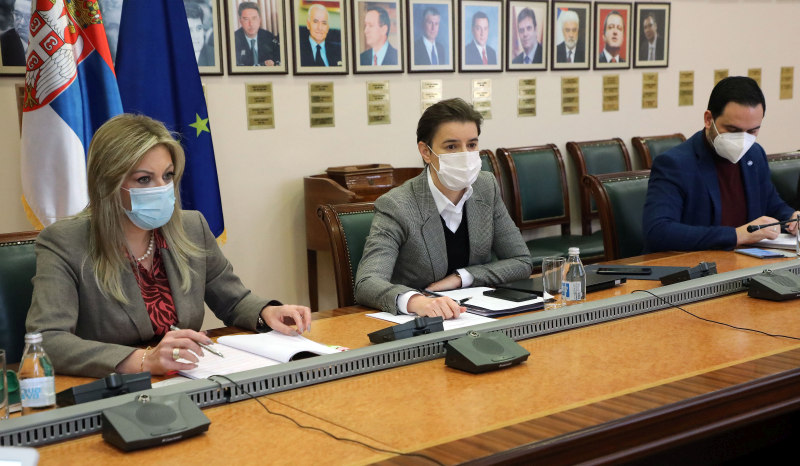
The Serbian government stated that at a meeting of the Stabilisation and Association Council between Serbia and the EU held today, the overall progress achieved in Serbia's accession negotiations so far was commended, as well as the adoption of an improved enlargement methodology that should accelerate Serbia's EU accession process.
The participants in the meeting exchanged opinions on the current political and socio-economic situation in Serbia, and above all on the further dynamics of negotiations on EU accession, cooperation within the Common Foreign and Security Policy, as well as regional cooperation in the Western Balkans.
Accordingly, they welcomed the fact that the new government has placed European integration, preserving public health and economic growth, as well as normalising relations with Pristina at the top of its priority list.
At the meeting held via video link due to the pandemic, the Serbian delegation was led by Prime Minister Ana Brnabic and Minister for European Integration Jadranka Joksimovic.
The EU delegation was headed by High Representative of the EU for Foreign Affairs and Security Policy Josep Borrell and European Comlmissioner for Enlargement Negotiations Oliver Varhelyi.
Borrell especially expressed gratitude for the participation of Prime Minister Brnabic, which is not the usual format, but which unequivocally shows how much importance the Serbian government attaches to the Stabilisation and Association Agreement and Serbia's European path.
The internlocutors discussed current relations between Serbia and the European Union, primarily the process of Serbia's accession to the EU, as wel as political and economic criteria, harmonisation of domestic legislation with the EU acquis, as well as the implementation of the EU pre-accession assistance.
The EU representatives reiterated the EU's commitment to Serbia's European future and called for proactive and strategic communication between Serbia and the EU.
During the meeting, they also talked about the way in which Serbia is facing the consequences of the COVID-19 pandemic, both in terms of resolving the health crisis and in overcoming the consequences for the economy in general and the implementation of reforms.
The participants agreed that good neghbourly relations and regional cooperation are key elements of the enlargement rocess, and to that end welcomed the continued dialogue between Belgrade and Pristina ande Serbia's consistent commitment to the process.
The EU representatives welcomed Serbia's significant contribution to miltary missions and operations, as well as Serbia's participation in EU battle groups, stressing the importance of further deepening cooperation on foreign policy issuse.
The participant in the meeting also supported the Common Regional Market, launched by Western Balkan leaders at a summit in Sofia on 10 November, and recalled that the Western Balkans Economic and Investment Plan, adopted by the European Commission on 6 October 2020, provides a comprehensive framework to support economic convegrence of Serbia and the EU region.
Belgrade, 17 December 2020 |
|
|
| J. Joksimović and Routh on Serbia's negotiation and new methodology |
|
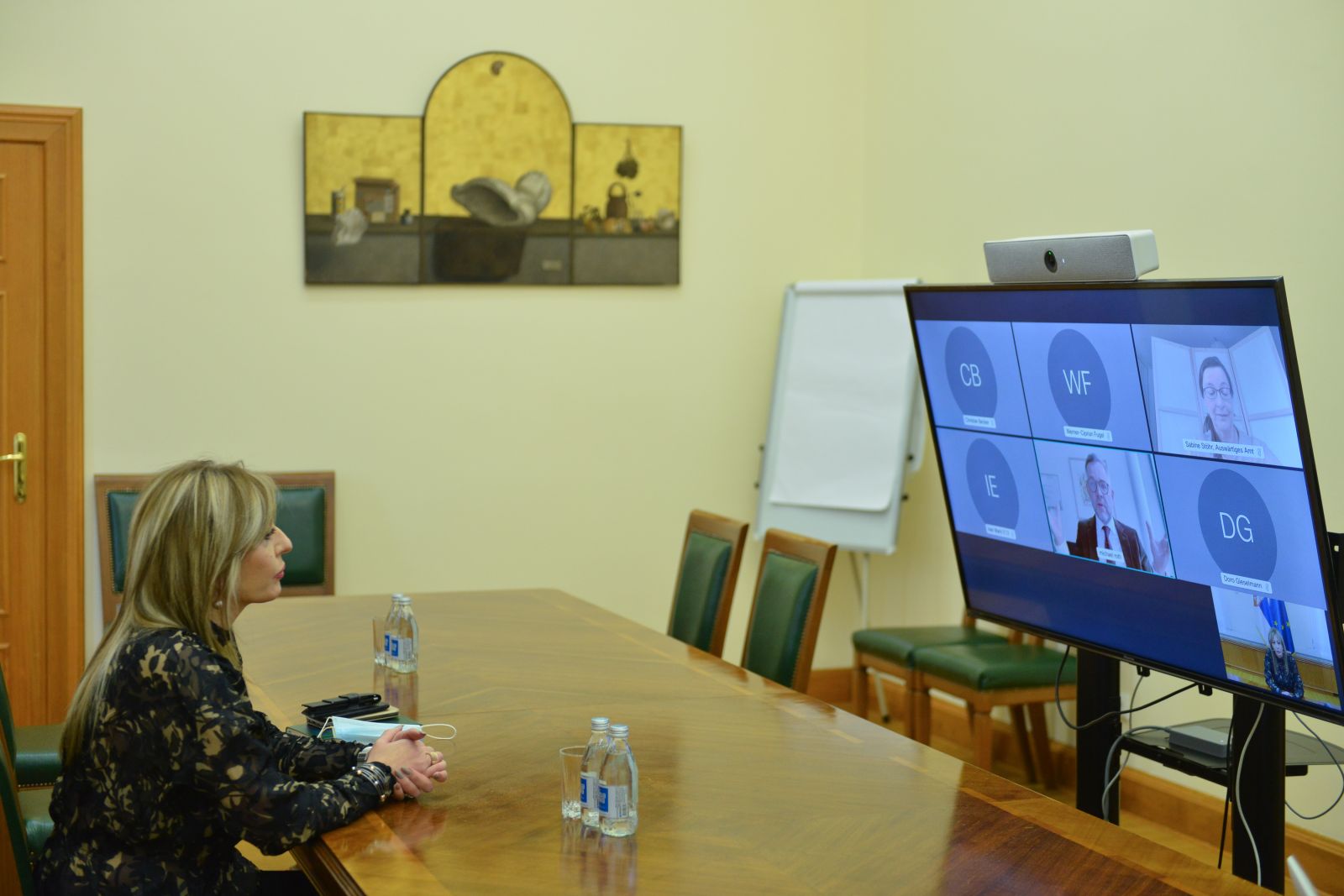
Minister of European Integration Jadranka Joksimović has held a video meeting today with Michael Roth, the Minister of State for Europe at the German federal Foreign Office. They have discussed the current epidemiological situation in the two countries and the EU, as well as Serbia's European integration process.
Joksimović and Roth have also talked about the issues related to the EU's internal situation, particulary regarding the new seven-year budget, the place and the future of the enlargement policy and the Western Balkans, notably about all aspects of Serbia's accession process, challenges and expectations from the new methodology, which should bring a faster negotiation process that would be better monitored and directed under stronger political steering.
Joksimović has particularly informed Roth about the fact that the Government of Serbia prepared a concrete implementation plan for the first negotiation cluster on teh rule of law, which comprises five rule-of-law chapters that have already been opened, adding that the realisation of the plan has already begun.
''This serious implementation plan includes a repeated initiative sent to the National Assembly for the adoption of constitutional amendments, the adoption of the Action Plan for the implementation of the Media Strategy, as well as the Working Group on monitoring the implementation of the Action Plan and the Woring Group on journalist safety and protection'', said Joksimović, according to the press realise publisshed by the Ministry of European Integration.
She bas also stressed that GRECO recommendations for the fight against corruption have been published in a transparent way, and that further actions will be taken in line with them.
She has further presented all other important segments of Serbia's reform policy in all six clusters, incuding Green Agenda, digitalisation, Economic and Investment Plan for the WB, and stable and sound macroeconomic indicatiors, stressing that, therefore, this year. Serbia has again undeniably demonstrated that it deeply and substantively participates in key EU policies and that it is a credible European country.
Joksimović has emphasised that Serbia understands that the EU and member states will need some more time to define the application of the new methodology to Serbia's negotiation process, and that it is therefore important to maintain a constant and open dialogue so as to direct the process in line with the new methodology.
She has expressed regret that conclusions on enlargement have not been adopted this year and that, consequently, the political Intergovernmental Conference with Serbia has not been held during the German presidency.
On the other hand, the Minister has expressed belief that the upcoming Stabilisation and Association Conuncil will offer an opportunity to discuss all political and economic aspects of Serbia's process at the highest level.
Roth has thanked Minster Joksimović for the information and issues she shared,as well as for Serbia's proactive approach regarding reforms and active acceptance of the new methodology.
He has underlined that Germany supports Serbia and the enlargemant policy, pariculary wlcoming all significant stes that the new Serbian Government has alredy taken, especially regarding cluster 1 - rule of law, where he stressed that they are an important and positive signal for Serbia's European parth.
He has agreed with Minister Joksimović about the need to urgently define the application of the new methodology to countries that are already in the accession process, wher clusters of European policies and Serbia's participation therein become an instrument for measuring progress in teh accession process.
He has conveyed that Germany will advocate the holding of the political Intergovernmental Conference with Serbia in the firs half of 2021.
The interlocutors have paticulary discussed the Economic and investment Plan for the Western Balkans, agreeing that it represents another proof that the European Union gives stratigic inportance to a stable and sustainable development of the region, particulary in difficult circumstances of curbing the effects of the COVID-19 pandemic.
Joksimović has thanked Minister Roth for Germany's long-term and concrete assistance to Serbia's European integration, not only at the political level, but also through providing development assistance for financing reform projects, and sucessful strategic investments that have created a significant number of new jobs.
The interlocutors have also agreed that it is extremely iportant that, through the COVAX Facility, Serbia has ensured that its access to vaccines procured by the EU will be almost simultaneous with the EU member stats' access.
Source: Tanjug |
|
|
| STATEMENT BY THE MINISTRY OF FOREIGN AFFAIRS |
|

On the occasion of 10 December, the international Human Right Day, the Ministry of Foreign Affairs of the Republic of Serbia reaffirms its commitment to the principles and values of the Universal Declaration of Human Rights, adopted on this day in 1948.
The principles enshrined in the Universal Declaration of Human Rights have been the foundation for the development of international law in this field, and of the international system for the promotion and protection of humant rights, as a unique achievement of modern civiliyation. It is incumbent upon us today to saferuard and strengthen the international system ensuring respect for human rights, to develop human rights standards, control the implementation of commitments, and also to continue cooperatiog with international and regional institutions on the protection of human rights.
Serbia is fully committed to te universal values of human rights and implementing in practice the international legal instruments relating to human rights. Our continued cooperation with the Human Rights Council mechanisms in the framework of the United Nations, with the Council of Europe and the mechanisms of the OSCE human dimension, represents an important setgment of activities carried out by all state authorities, thus demonstrating our consistent commitment to the implementation of international human rights standards.
The international Human Rights Day is an opportunity to point our once again that Serb and other non-Albanian population is being deprived of its righs in Kosovo and Metohija and to call again on the international community to ensure the resp[ect for the guaranteed international human right norms and contribute to creating conditions for the return of internally dispalaced persons and giving them back their usurped property. |
|
|
| SERBIA AS A FAVOURABLE DESTINATION FOR INVESTMENT AND DEVELOPMENT OF NEW TECHNOLOGIES |
|
At the following links you can find useful information on the republic of Serbia as a favourable destination for business, as vell as investing in research and development of new technologies:
1. SEBIA - Emerging tech developing hub
- https://innovations.serbiacreates.rs/ ,
2. Guide to measures to support the developmet of innovative economy - https://inovacije.srbijastvara.rs/ . |
|
|
| DIGITAL CONTENTS - SERBIAN CULTURAL INSTITUTIONS 2020 |
|
In order to safer overcome the social situation due to COVID-19 epidemic, and to facilitate access to cultural contents to the citizens of Serbia, as vell as to user from other countries, the Ministry of Culture and Media of the Republic of Serbia offered a large scale of programs of National Cultural Institutions available in digital format (virtual tour, digital audio and video materials, photos, texts, 3D scanned object, etc.) in diferent languages.
The official Site of the Ministry of Culture of Serbia:
http://www.kultura.gov.rs/cyr
http://www.kultura.gov.rs/en
SERBIAN FILMS (disponible on-line/feature-length films)
1. Next to me (Pored mene, 2015), Stevan Filipovic, (drama, 110minutes):
http://www.fcs.rs/en/films/film-database/?page=film&id=1314
Link: https://www.youtube.com/watch?v=hpKAFB9QUZc
2. Skinning (Šišanje, 2010), Stevan Filipovic, (drama, 98 minutes):
http://www.fcs.rs/en/films/film-database/?page=film&id=169
Link: https://www.youtube.com/watch?v=tsH61RftCEI
3.Sheitans Warrior (Šejtanov ratnik, 2006), Stevan Filipovic, (fantastic comedy, 94 minutes):
http://www.fcs.rs/en/films/film-database/?page=film&id=152
Link: https://www.youtube.com/watch?v=IgxT0TmisxE |
|
|
| Candidacy of the Republic of Serbia for the UNESCO Executive Board |
|
The Republic of Serbia is a candidate for reelection in the UNESCO Executive Board for the period 2019-2023. The brochure about the candidacy can be opened using this link. |
|
|
| Public international two-phase open competition for the design of a conceptual solution for the Z. Djinjic memorial at the Students square in Belgrade |
|
We would like to inform you that the Belgrade City Administration, Secretariat for Culture, has announced a "Public international two-phase open competition for the design of a conceptual solution for the Zoran Djindjic memorial at the Students square in Belgrade". The full text of notice can be found here.
The full text of PUBLIC INTERNATIONAL TWO-PHASE OPEN COMPETITION FOR THE DESING OF A CONCEPUAL SOLUTION FOR THE ZORAN ĐINĐIĆ MEMORIOAL AT THE STUDENTS SQUARE IN BELGRADE can be found here. |
|
|
| Agreement between the Government of the Republic of Serbia and the Government of the People's Republic of China on the mutual abolition of visa requirements for holders of ordinary passports |
|
We inform that the Agrement between the Government of the Republic of Serbia and the Government of the People`s Republic of China on the mutual abolition of visa requirements for holders of ordinary passports, singed in Riga on 5 November 2016, shall enter into force on 15 January 2017.
Starting from that date, the citizens of both countries, holders of ordinary passports are eliglibe for entry, transit and stay on the territory of the other Party withouth a visa, up to 30 days from the date of entry. |
|
|
| INVITATION TO TENDER FOR THE PROVISION OF REAL ESTATE SALES SERVICES - THE SALE OF DIPLOMATIC REAL ESTATE |
|
INVITATION TO TENDER FOR THE PROVISION OF REAL ESTATE SALES SERVICES - THE SALE OF DIPLOMATIC REAL ESTATE IN NEW YORK (UNITED STATES OF AMERICA), TOKIYO (JAPAN), BONN (GERMANY), AND BERNE (SWITZERLAND)
Invitation to tender pdf.
Invitation to tender doc.
Tender bond garantee pdf.
Tender bond garantee doc.
Tender performance bong pdf.
Tender performance bond doc.
Tender information sheet pdf.
Tender information sheet doc. |
|
|
| Political consultations between Ministries of Foreign Affairs of Serbia and Poland on EU integration and bilateral cooperation |
|
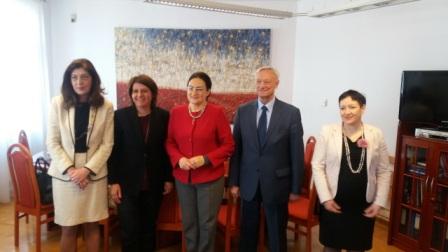
Political consultations between Ministries of Foreign Affairs of the Republic of Serbia and the Republic of Poland concerning European integration and bilateral cooperation were held in Warsaw, on 20 April 2016.
The Serbian delegation was headed by Assistant Minister of Foreign Affairs for the EU Ambassador Marina Jovicevic, and the Polish delegation was headed by the State Undersecretary in the Ministry of Foreign Affairs, Katarzyna Kacperczyk. During the talks, the Polish side confirmed its support of Serbia s EU integration, expressing readiness to extend its assistance along that path.
It was noted that the bilateral realtions between Serbia and Poland were good, without any outstanding issues, while efforts were made to further intensify this cooperation, as well as mutual contacts. Bilateral cooperation in other areas was also discussed, focusing on economic cooperation which has been marking an upward trend over the last three years.
In addition to the meeting in the Polish Ministry of Foreign Affairs, Assistant Minister Marina Jovicevic and her delegation also had a meeeting with Ms. Izabela Kloc, Chair of the EU Affairs Committee, Sejm of the Republic of Poland, where issues related to European integration and bilateral parliamentary cooperation were dealt with. |
|
|
| The Truth - Four pearls of world heritage: the Monastery of Decani, Patriarchae of Pec, Gracanica and Bogorodica Ljeviska Church are still inscribed on the UNESCO List of the world heritage in danger. The ones requesting UNESCO membership today are the ones who exposed it to danger. Not even today can we hear the words of condemnation of such crimes, or detect readiness to find and punisch the perpetrators. |
|
Four pearls of world heritage: the Monastery of Dečani, Patriarchate of Peć, Gračanica and Bogorodica Ljeviška Church are still inscribed on the UNESCO List of the world heritage in danger. The ones requesting UNESCO membership today are the ones who exposed it to danger. Not even today can we hear the words of condemnation of such crimes, or detect readiness to find and punish the perpetrators. - watch here |
|
|
| Why "Kosovo" is ineligible for membership in UNESCO? |
|
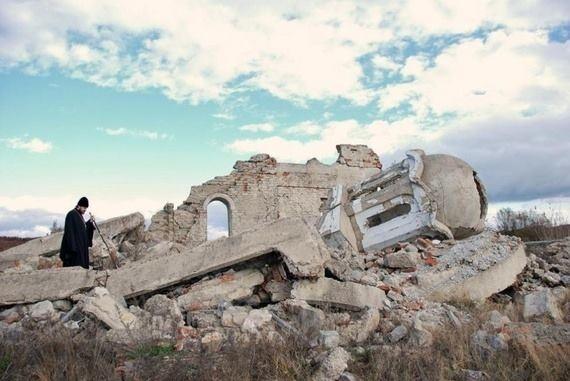
- Because the request for its membership is a serious breach of the international law, the Constitution of UNESCO, The legally binding UN Security Council resolution 1244 (1999) and the Charter of th UN whose Aticle 25 says that ''The Members of the UN agree to accept and carry out the decisions of the Security Council in accordance with the present Charter''.
- Because according to the UN Security Concil resolution 1244, which reaffirms the sovereignty and territorial integrity of the Federal Republic of Yugoslavia (now Serbia), Kosovo and Metohija is an integral part of the Republic of Serbia, under the administration of the UN. Since Kosovo cannot be considered a State, it does not fulfill the basic requirement for membership set out by the UNESCO Constitution.
- Because unilateral attempts such as this one seriously harm and disrupt the dialogue between Belgrade and Pristina, under the auspices of the European Union in which mutually acceptable solutions for many complex issues have been devised so far. The issue of the Serbian cultural heritage and the property of the Serbia Orthodox Church has not yet been discussed within the dialogue where it belongs.
- Because this is an unacceptable politicization of UNESCO which should not overtake the competences of the UN. Security Council as the highest authority for the preservation of the international peace and security. UNESCO should not serve as an instrument for the affirmation of an illegal and unilaterally declared independence of a part of the territory of one UN member state. The primary goal of UNESCO is to promote universal values of humanity through education, science and culture not to make political decisions with regard to the statehood.
- Because this would be a dangerous precedent, harmful for many states. This would open the door for other entities to follow the same path thus threatening territorial integrity and sovereignty of other member states.
- Because this issue is polarizing the membership of UNESCO.
- Because, besides not being a state, Pristina does not have moral credibility for membership. Anyone aspiring to UNESCO membership must prove not only in words but as well in deeds its commitment to the goals of the UNESCO Constitution, which certainly is incompatible with deliberate, systematic, vandal demolition of Serbian cultural and historic monuments with the aim to remove the traces of centuries-long existence of Serbs in this area as well as the impunity of the perpetrators of such barbaric acts unworthy of the 21st century. These acts are comparable only to the acts of destruction of cultural heritage by terrorist groups in the Middle East and elsewhere that the world is witnessing and UNESCO is strongly condemning.
- Because four Serban ortodox monasteries are inscribed on th UNESCO List of World Heritage in danger although the armed conflict in Kosovo is over for many years now. In danger from whom?
- Because the inclusion of this item in the provisional agenda of the 197th session of the UNESCO Executive board raises serious concerns about the compliance with procedure and the respect of the established UNESCO rules. Just to mention that even publishing of the document on the unacceptability of Kosovo's application for UNESCO membership from the standpoint of the international law, prepared by Serbian Delegation to UNESCO, as an official document, as we requested, was refused. And the only intention was the voice of Serbia also to be heard.
- Because we all would have to live with the negative consequences of such an irresponsible decision from the lesioning of the interational law up to the fate of the Serbian cultural heritage in the province of Kosovo and Metohija which not only belongs to the Serbian people but also represents a part of the historical and civilizational heritage of modern Europe and the world.
|
|
|
| NOTICE ABOUT RELAXATION OF THE VISA REGIME FOR THIRD COUNTRY NATIONALS WHO REQUIRE A VISA TO ENTER THE REPUBLIC OF SERBIA |
|
Foreign nationals, holders of all types of travel documents other than emergency travel documents and travel documents issued in accordance with international conventions, starting from 08 November 2014. can enter, transit and stay without visa in the Republic of Serbia, if they have valid Schengen visa, the UK visa and visa from other EU countries, visa of the United States or have residence permit in the Schengen zone, country members of the European Union or the United States, up to 90 days within 6 months period, or until the expiration of the visa, or residence permit in the above mentioned states. |
|
|
| Transfer of funds to the account of the Ministry of Finance of the Republic of Serbia |
|
Embassy of the Republic of Serbia in Poland is pleased to announce that on June 9th, 2014 performed the first transfer of funds in the amount of 40.300,00 Euros for eliminating the consequences of floods, which were collected through a special account of the Embassy.
Also, June 3rd, 2014 a truck full of humanitarian assistance was collected and organized by our Embassy has been delivered in Serbia.
With sincere gratitude to all who have participated in this humanitarian action, The Embassy of the Republic of Serbia in Poland calls on all people of good will to continue joint engagement to continue the action because Serbia has suffered damage of extremely large scale and help in eliminating the consequences of floods is still necessary. |
|
|
| Current flood equipment and devices requirements |
|
The Sector for Emergency Management of the Republic of Serbia informed that rescue teams as well as teams with large-capacity pumps are no longer necessary. However, the following equipment and devices are still needed:
- All-terrain vehicles
- Dryers
- Aggregates
- Mud submersible pumps
- Large-capacity pumps (over 100 l/h)
- Back-mounted engine-driven disinfectant sprinklers
- Protective clothing for disinfection personnel
- Water-resistant footwear (fisherman boots)
- 40 pumps of 50-116.6 m3/min (3000-7000 m3/h) flow-rate, lift height (effort) H=80m |
|
|
| Donations by sending sms messages |
|
Donations by sending sms messages to 1003 can only be done using telephone numbers of the mobile operators in Serbia. |
|
|
| A Book of Condolence |
|
Due to the catastrophic floods in Serbia which caused loss of human lives, three days of National Mourning have been declared in the Republic of Serbia. A Book of Condolence will be opened at the Embassy of the Republic of Serbia in Warsaw, on the following days:
- May 22, 10 a.m. to 3 p.m. (Thursday)
- May 23, 10 a.m. to 3 p.m. (Friday) |
|
|
| Payment Instructions for Humanitarian Aid for the Flood Victims in the Republic of Serbia |
|
Serbian Embassy in Warsaw
Al.Róż 5
00-556 Warsaw
Bank accounts of the Embassy:
- In (PLN) - 86 1910 1048 2255 2721 2198 0002;
aim: Help Serbia - Floods
- In (EUR) - 16 1910 1048 2255 2721 2198 0001;
aim: Help Serbia - Floods (SWIFT: DEUTPLPX).
Deutsche Bank Polska S.A.
Krasińskiego 10
01-615 Warsaw |
|
|
| Customs procedures for imports of Humanitarian Aid in the Republic of Serbia |
|
Customs Administration of the Republic of Serbia ordered all customs offices in the Republic of Serbia to process shipments of humanitarian aid entering the customs territory of the Republic of Serbia and their reporting for referral to the destination, considered a priority, in accordance to all required customs procedures and processes.
If the driver who brings the goods into the customs territory is without the customs representative, the customs officer present will inform him of the possibility of an oral declaration, in which case the obligation of the customs officer is that he forms and processes the transit declaration in ISCS for that shipment, delivers the appropriate documents to the driver and sends him to the final destinations customs authority.
Also, in order to ensure proper control, and if the driver does not provide appropriate instrument securing the customs debt that may arise in the process of transit of goods the involved officer will be sure to make copies of the transit declaration and supporting documentation which remains in the border customs office, attaching a copy of the travel document or other appropriate documents of the driver.
Regarding the approval process of the required customs procedure with the shipment in the destination customs offices, will also be given priority. Regulations on customs approved treatment of goods provided that the declaring oral declarations for release for free circulation may, among other things, file for non-commercial goods of minor economic importance, if approved by the customs authority. Regulation prescribes that, the temporary importation procedure may be declared orally along with other goods, if the customs authority approves it.
Customs Administration, with respect to the specific notice of the arrival of certain humanitarian shipments, organized the necessary manpower. |
|
|
| Payment of humanitarian assistance through PayPal |
|
We are notifying that on 18.05.2014. we have activated a PayPal account through which it is possible to pay for humanitarian aid for flood victims in the Republic of Serbia from 193 countries and regions.
Donations through PayPal can be paid to: floodrelief@gov.rs
|
|
|
| Urgent necessities required by the Red Cross of the Republic of Serbia |
|
The Red Cross of the Republic of Serbia informs that at this time is in the need of the following:
- mattresses
- bedding
- bunk-beds
- diapers for babies and adults
- socks
- underwear
- children's clothing
- torches (flashlights)
- Batteries for flashlights
- Hygiene products (soap, toilet paper, paper towels, sanitary napkins, toothbrushes, toothpaste....)
- Asepsol tags 5P
- Rubber boots
For those who wish to help, the collection center for the collected assistence is in the premises of the Embassy of the Republic of Serbia in Warsaw (Aleja Roz 5, 00-556 Warsaw). |
|
|
| Help in talking care of population and recovery of consequences of floods in the Republic of Serbia |
|
On the occasion of unprecedented natural disasters that struck the Republic of Serbia, in order to floods and taking care of vulnerable population, the Government of the Republic of Serbia opened the following bank accounts they can pay cash resources for help:
Dinar bank account - Removal of extraordinary circumstances of floods, 840-3546721-89;
Foreign currency bank account - 01-504619-100193230-000000-0000 - Ministry of Finance-Treasury, Belgrade-account for the payment of funds for elimination of consequences of floods, IBAN code: RS35908504619019323080, with instructions for payment in EUR and USD:
PAYMENT INSTRUCTION - E U R
SWIFT MESSAGE FIN 103
FIELD 32A: VALUE DATE-CURRENCY-AMOUNT
FIELD 50K: ORDERING CUSTOMER
FIELD 56A: DEUTDEFF
/INTERMEDIARY/
FIELD 57A: /DE20500700100935930800
/ACC.WITH BANK/ NBSRRSBG
FIELD 59: /RS35908504619019323080
(BENEFICIARY) MINISTARSTVO FINANSIJA, UPRAVA ZA TREZOR
FIELD 70: DETAILS OF PAYMENT
PAYMENT INSTRUCTION - U S D
SWIFT MESSAGE FIN 103
FIELD 32A: VALUE DATE-CURRENCY-AMOUNT
FIELD 50K: ORDERING CUSTOMER
FIELD 56A: BKTRUS33
/INTERMEDIARY/
FIELD 57A: /04415465
/ACC.WITH BANK/ NBSRRSBG
FILED 59: /RS35908504619019323080
(BENEFICIARY) MINISTARSTVO FINANSIJA, UPRAVA ZA TREZOR
FIELD 70: DETAILS OF PAYMENT |
|
|
|
|
|